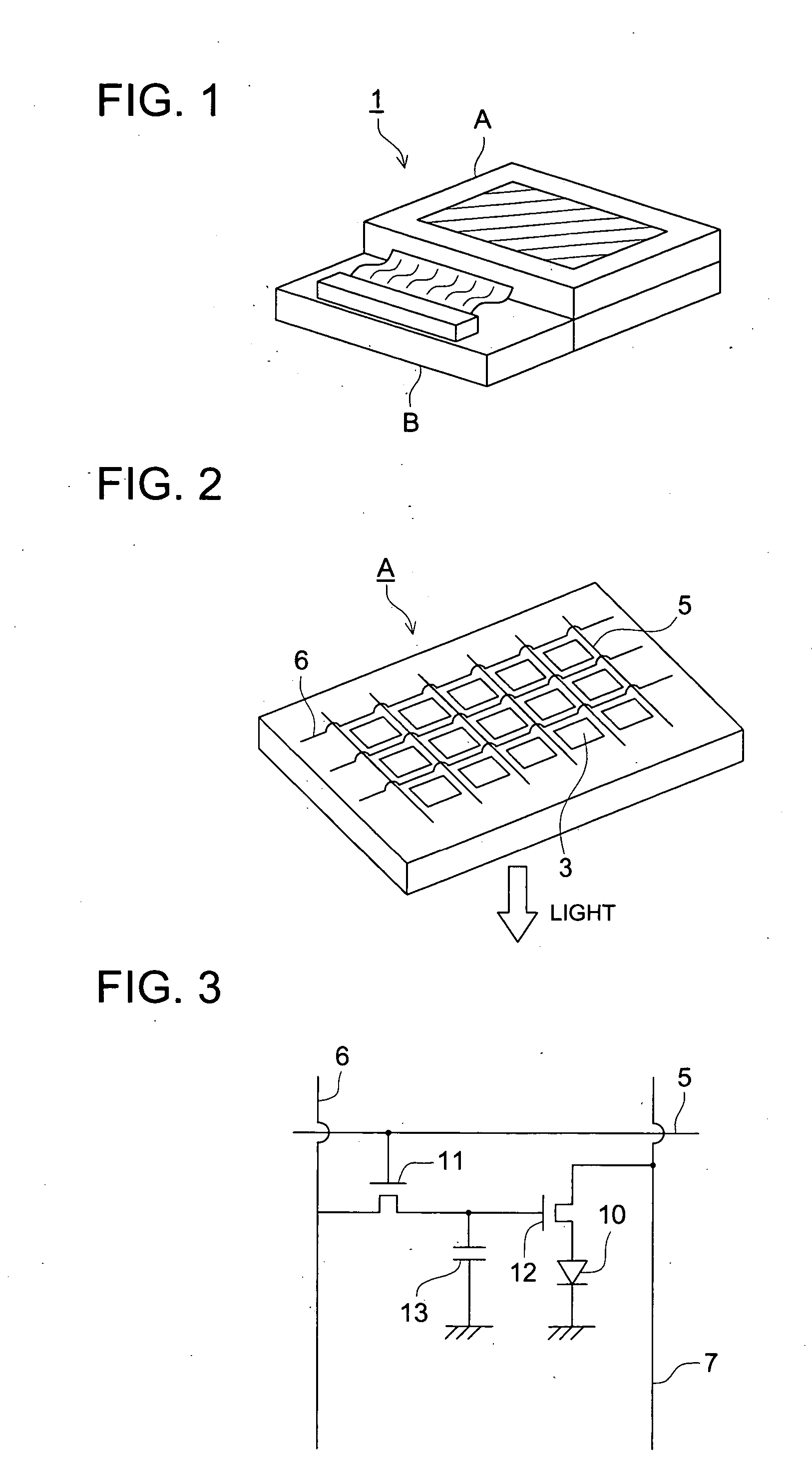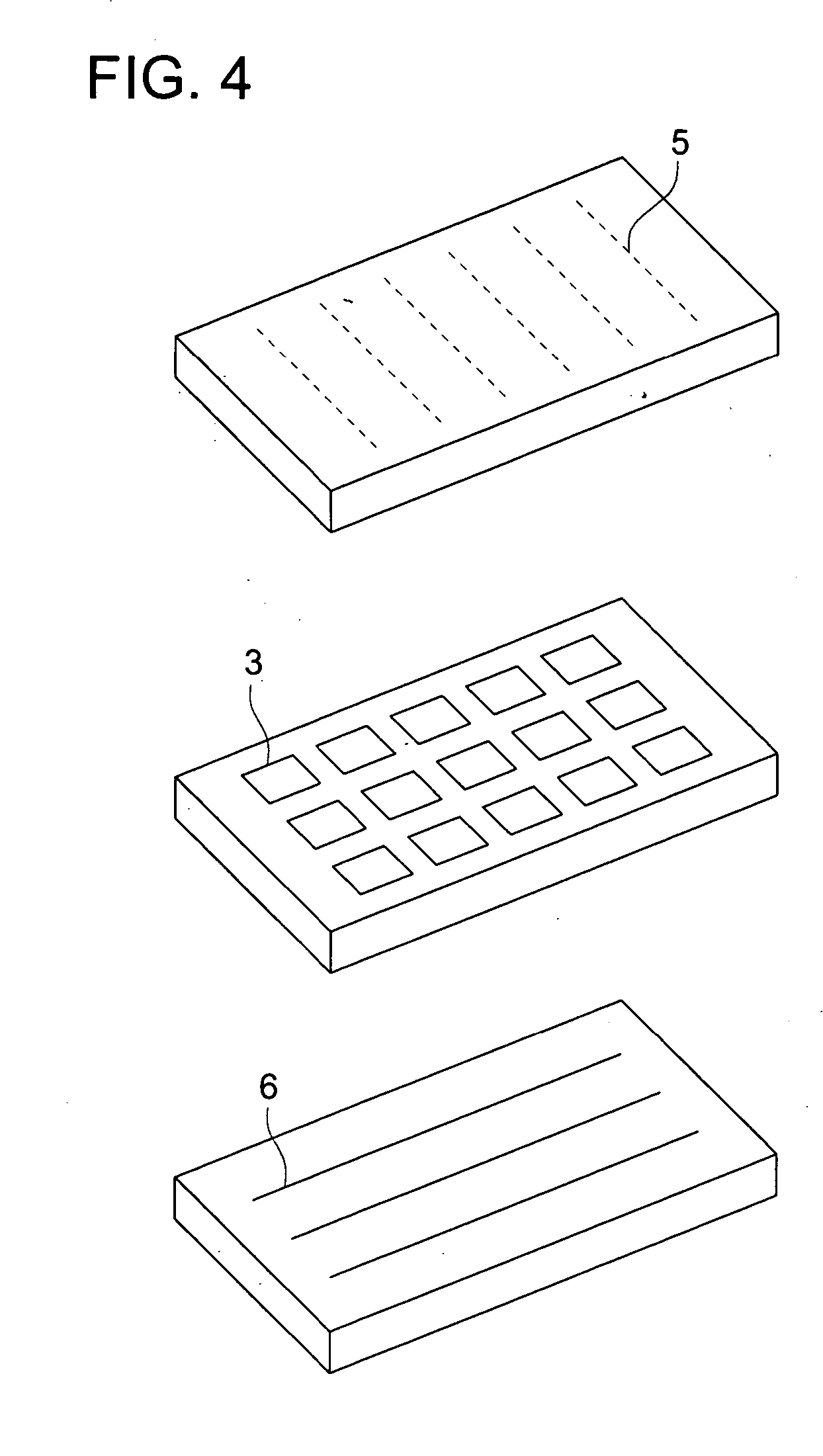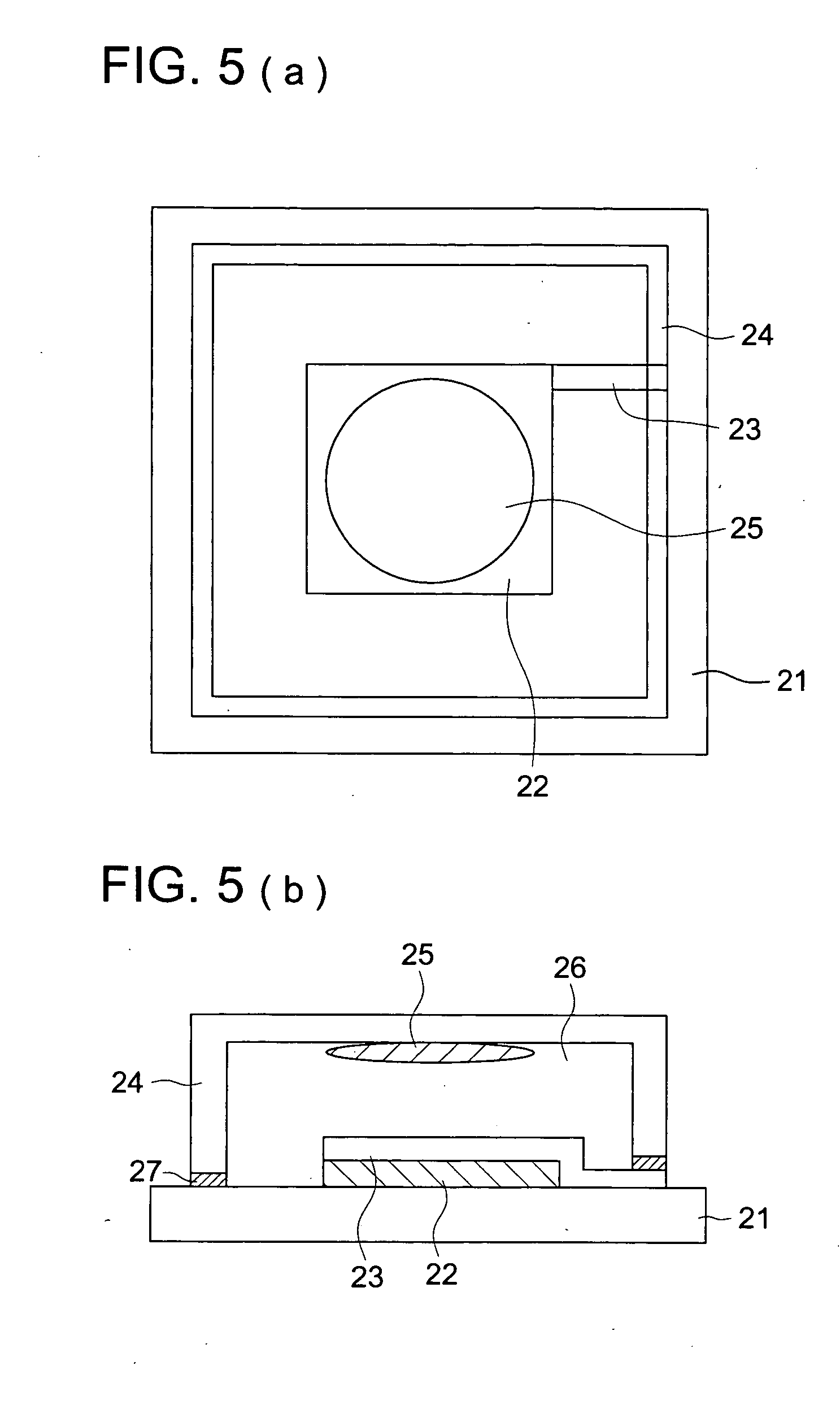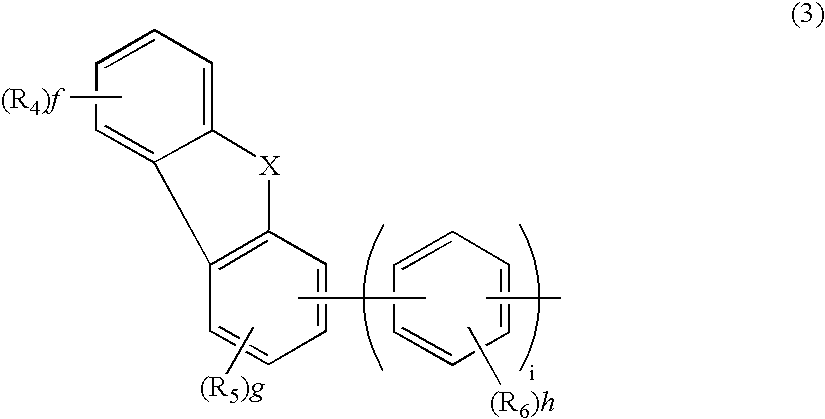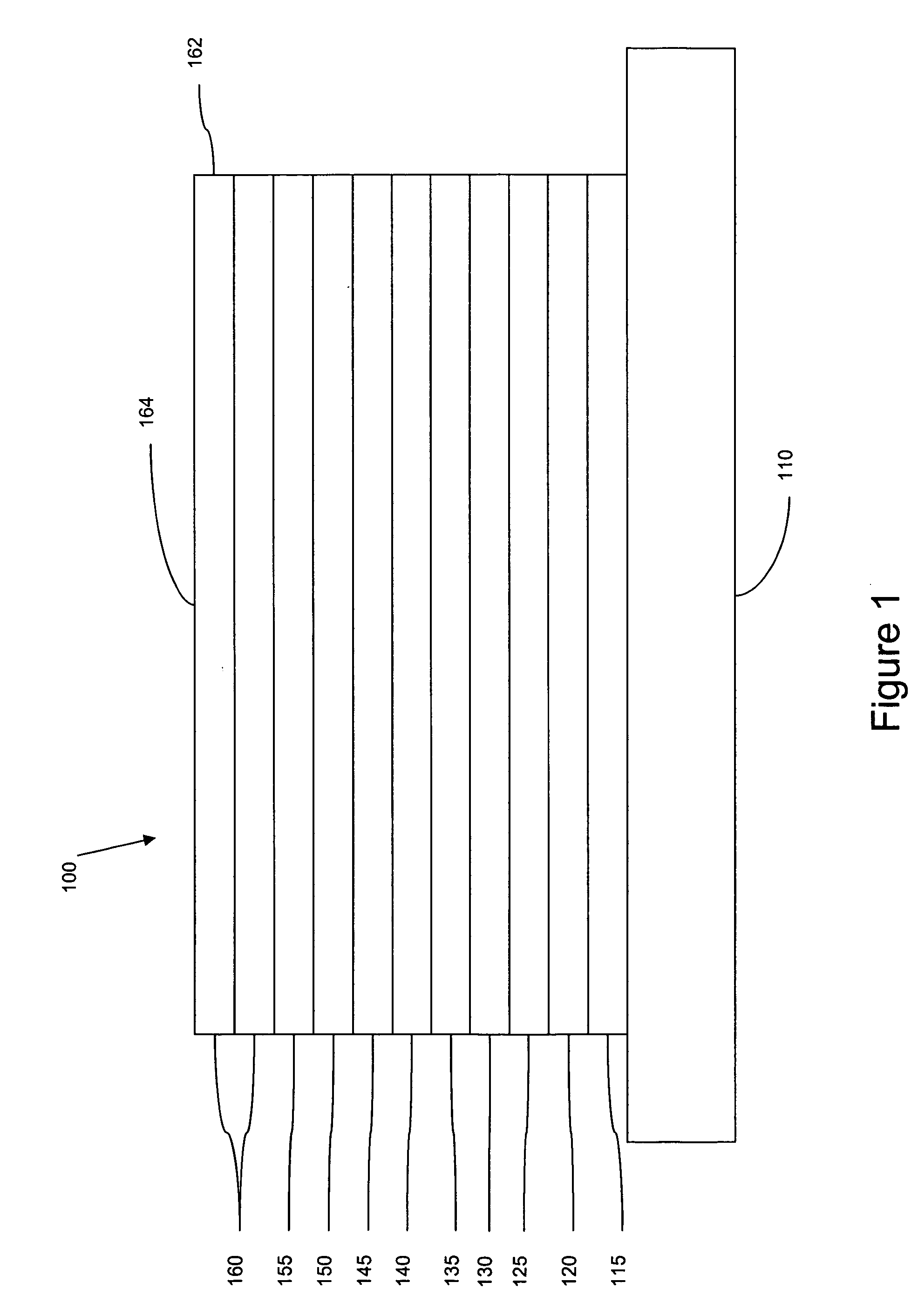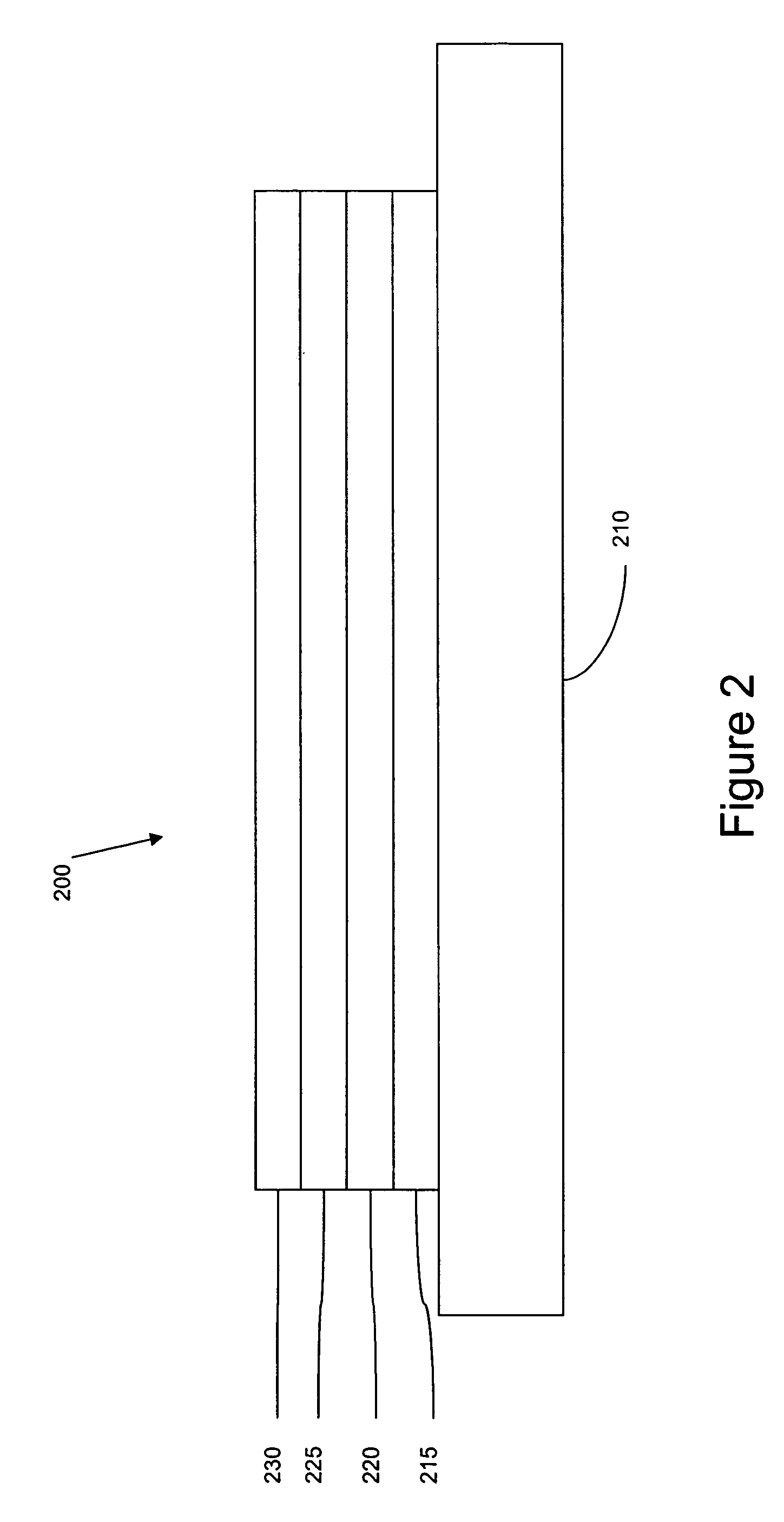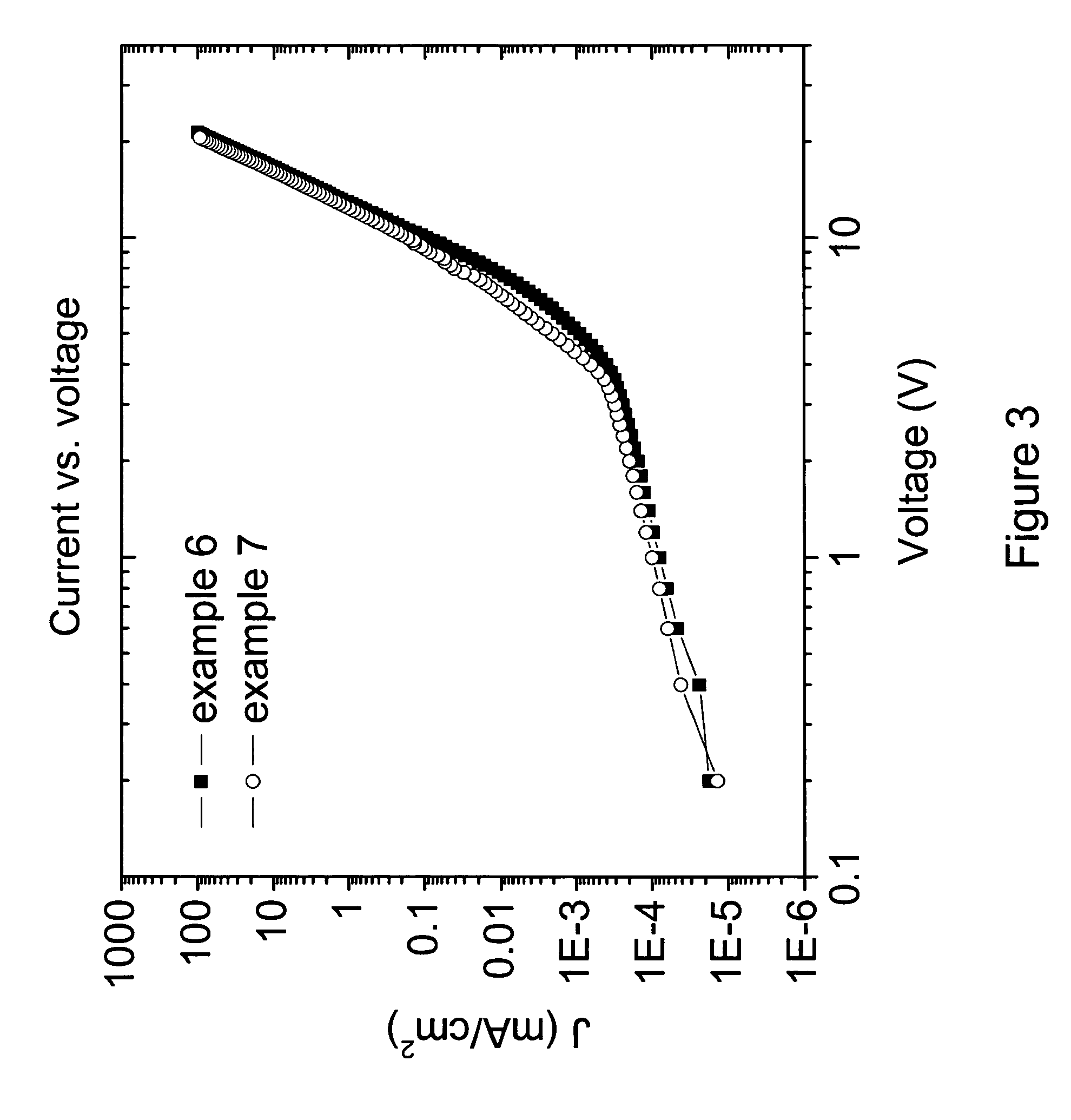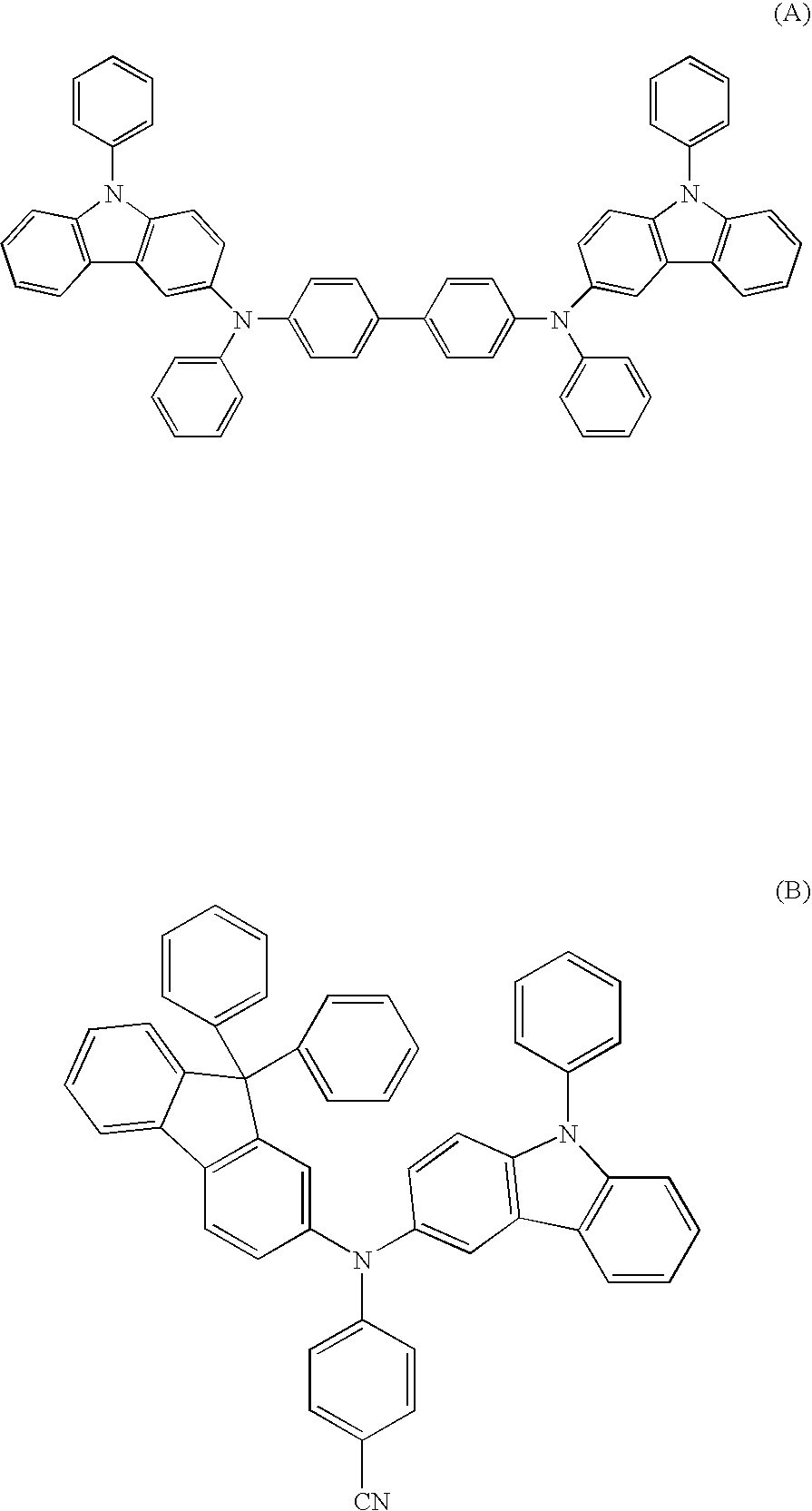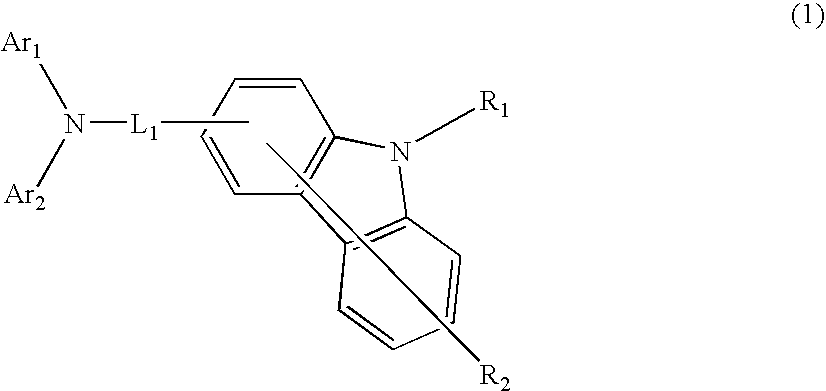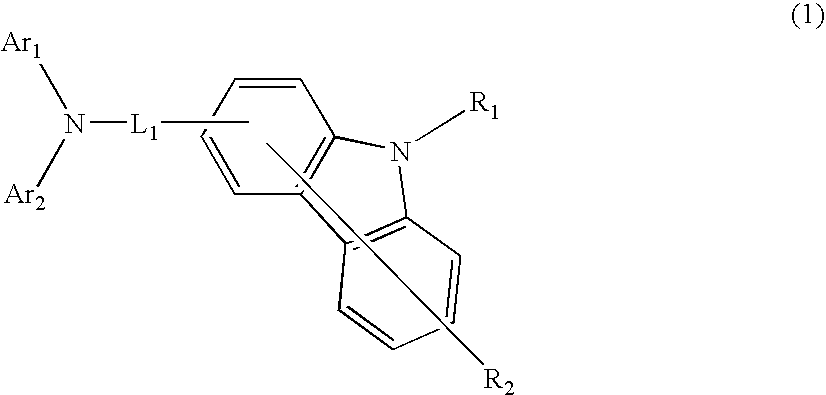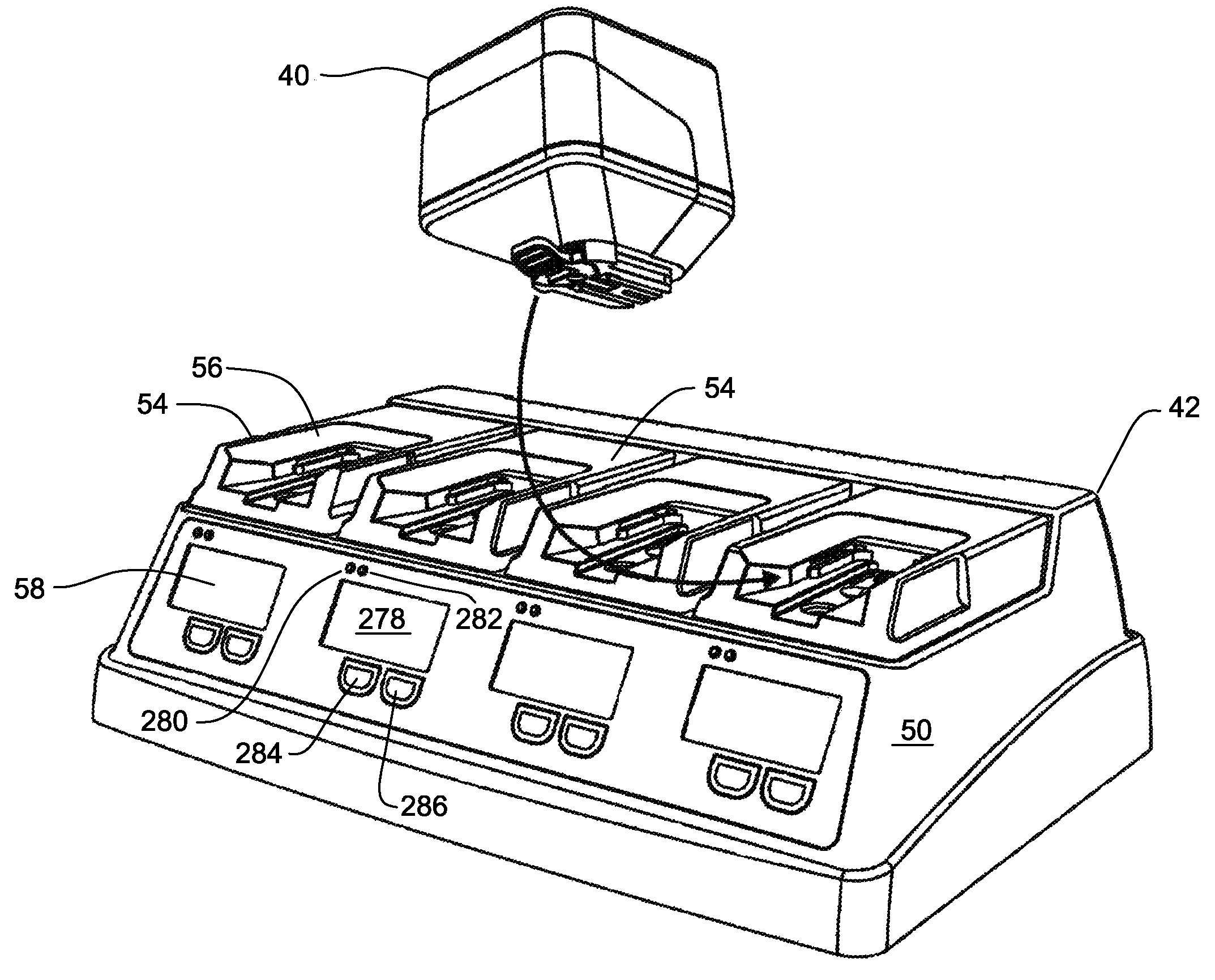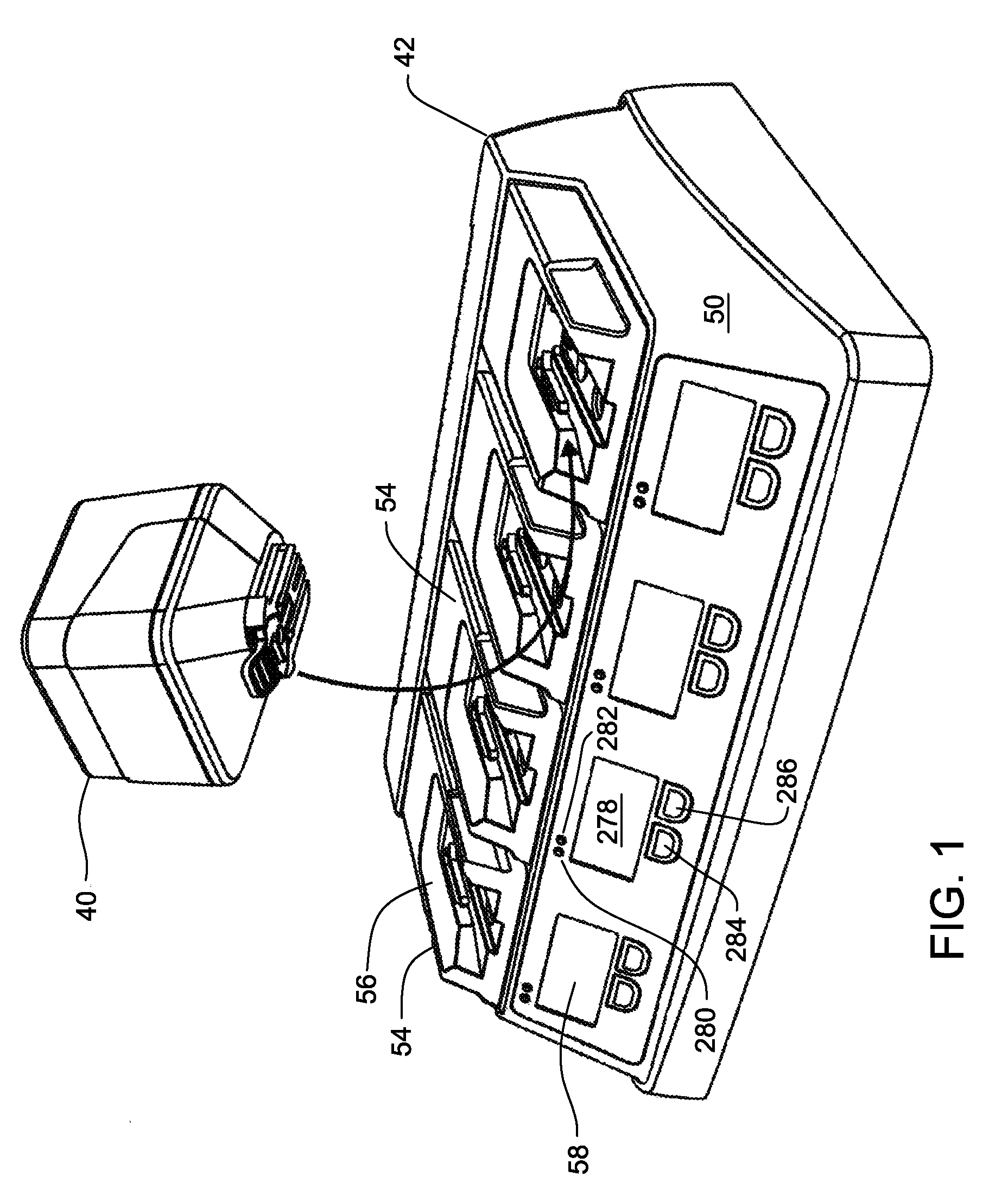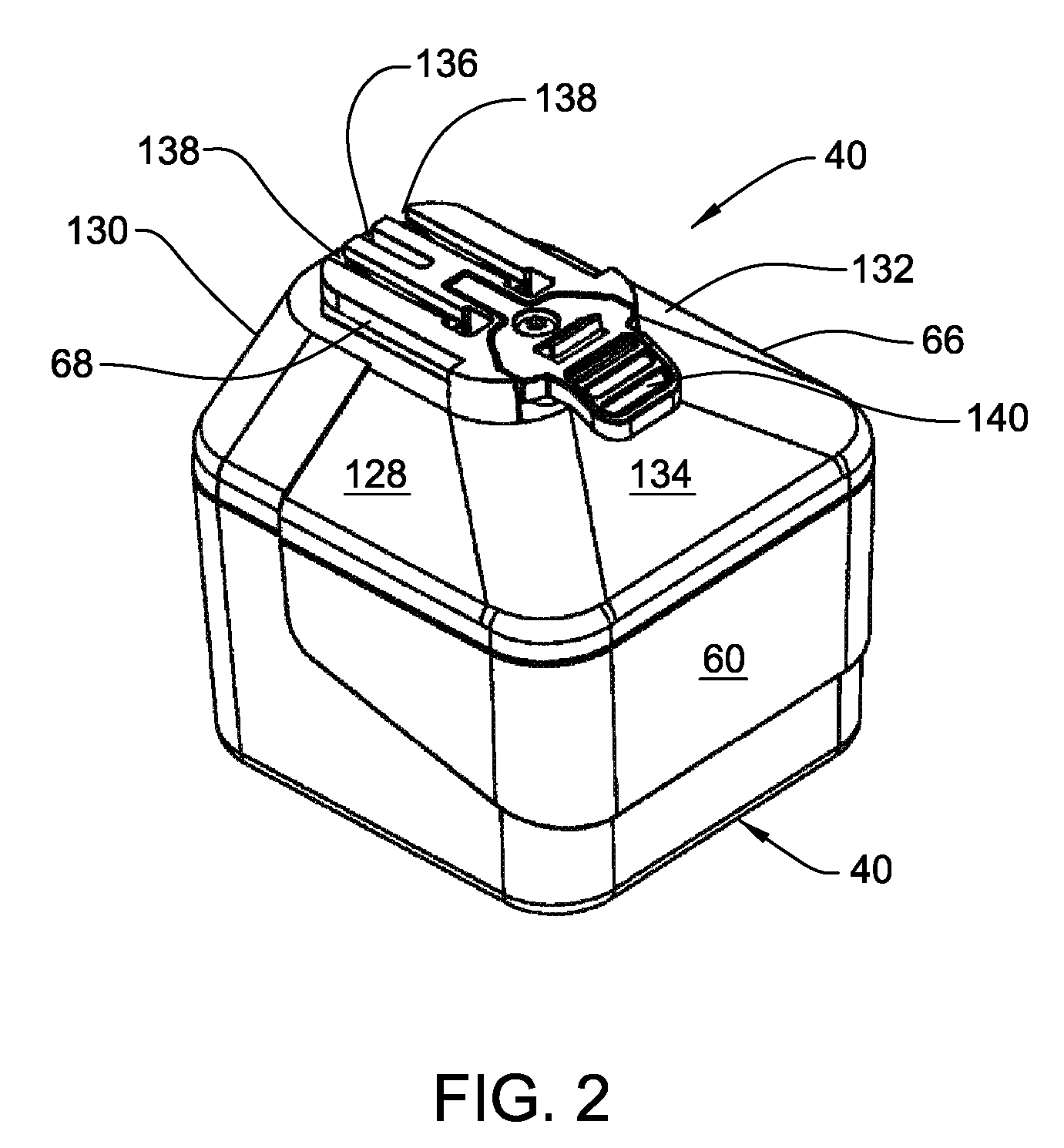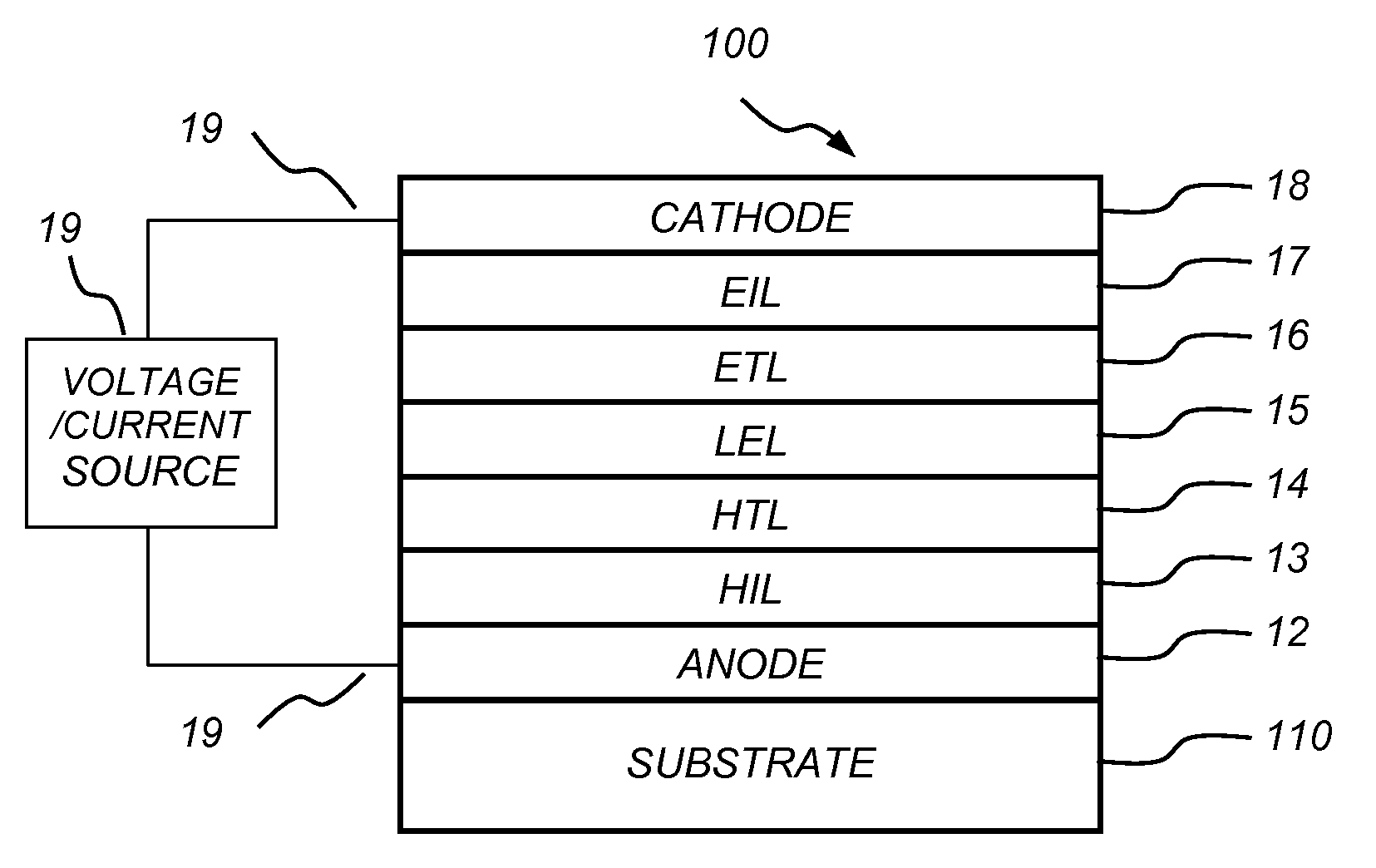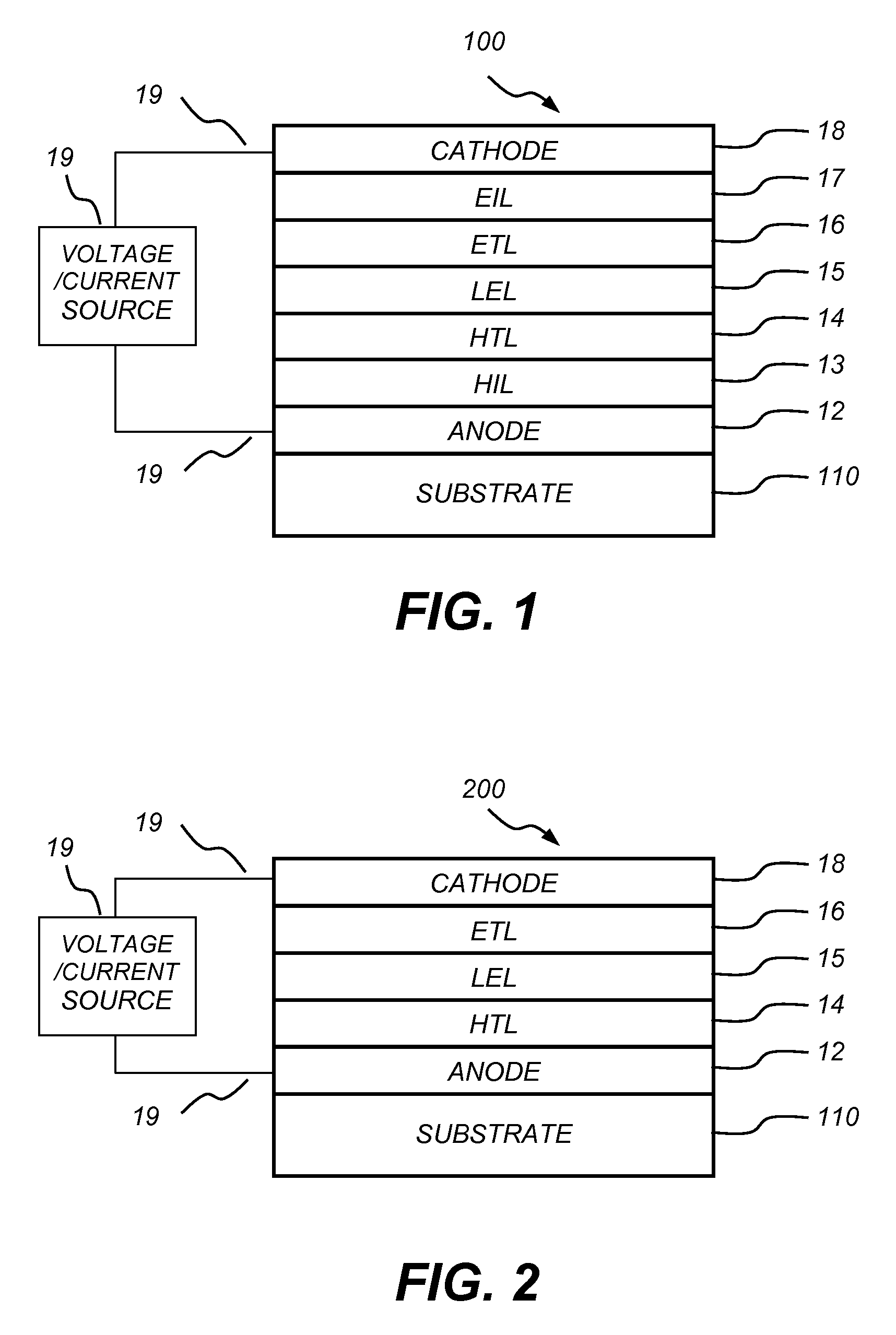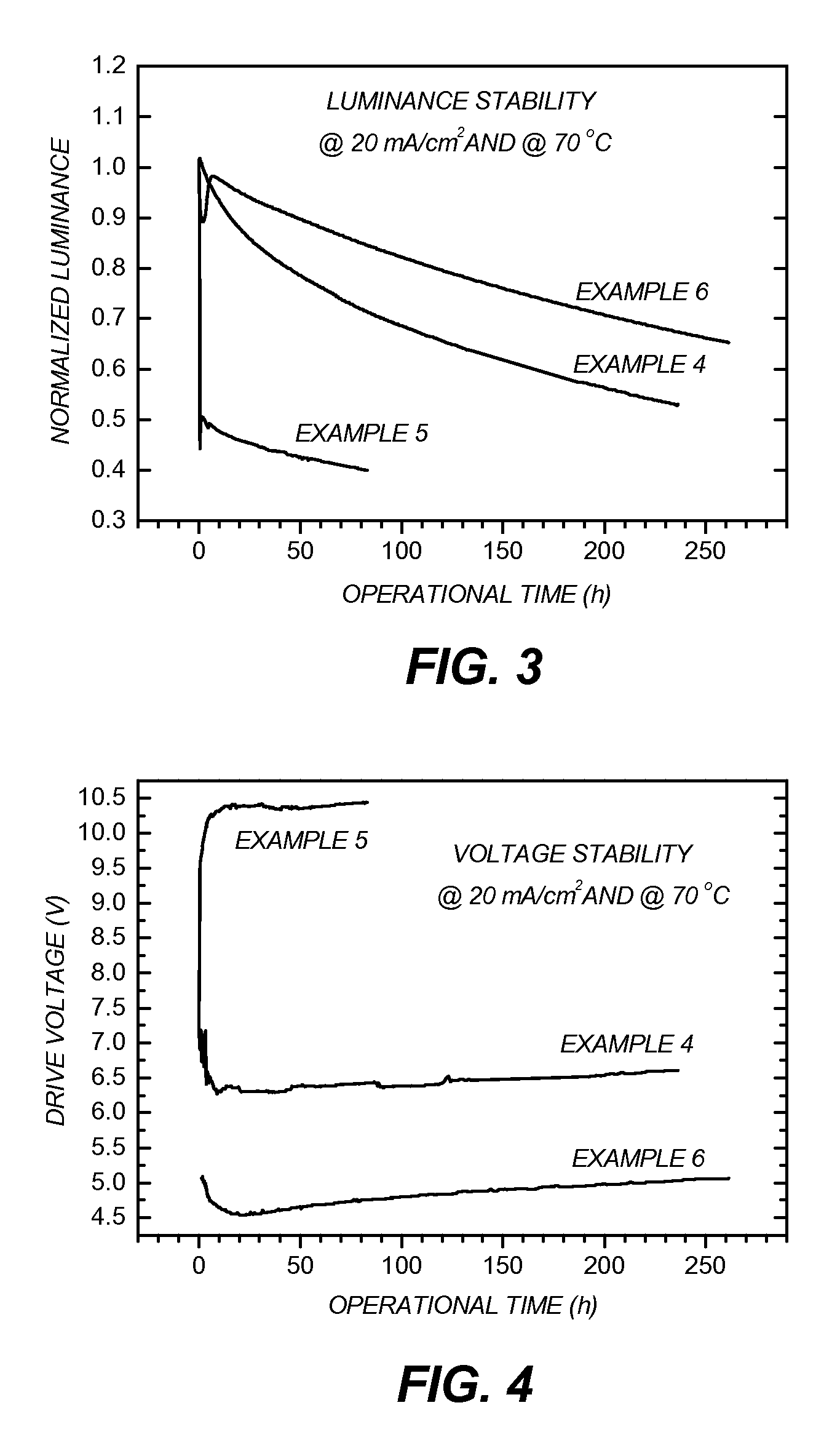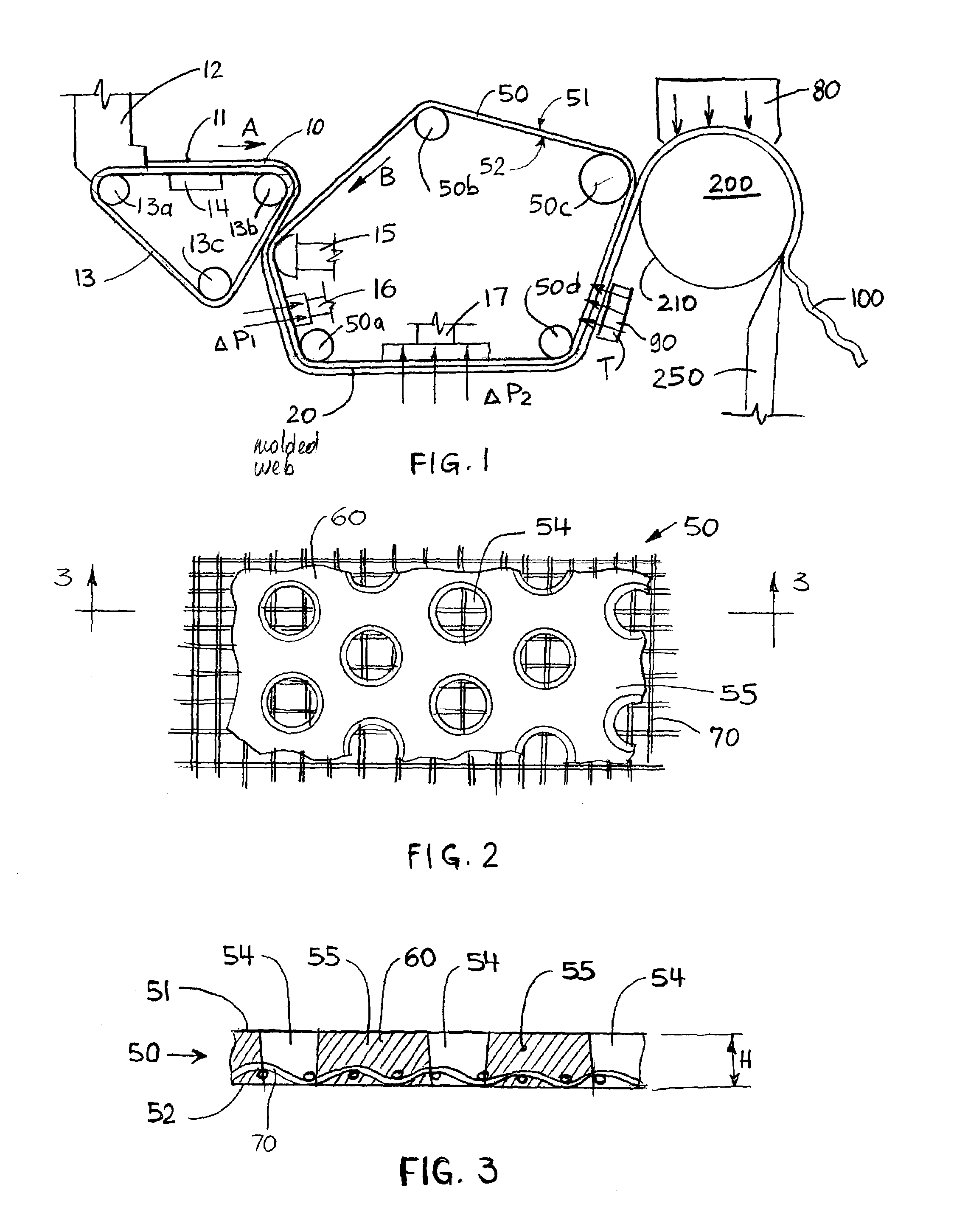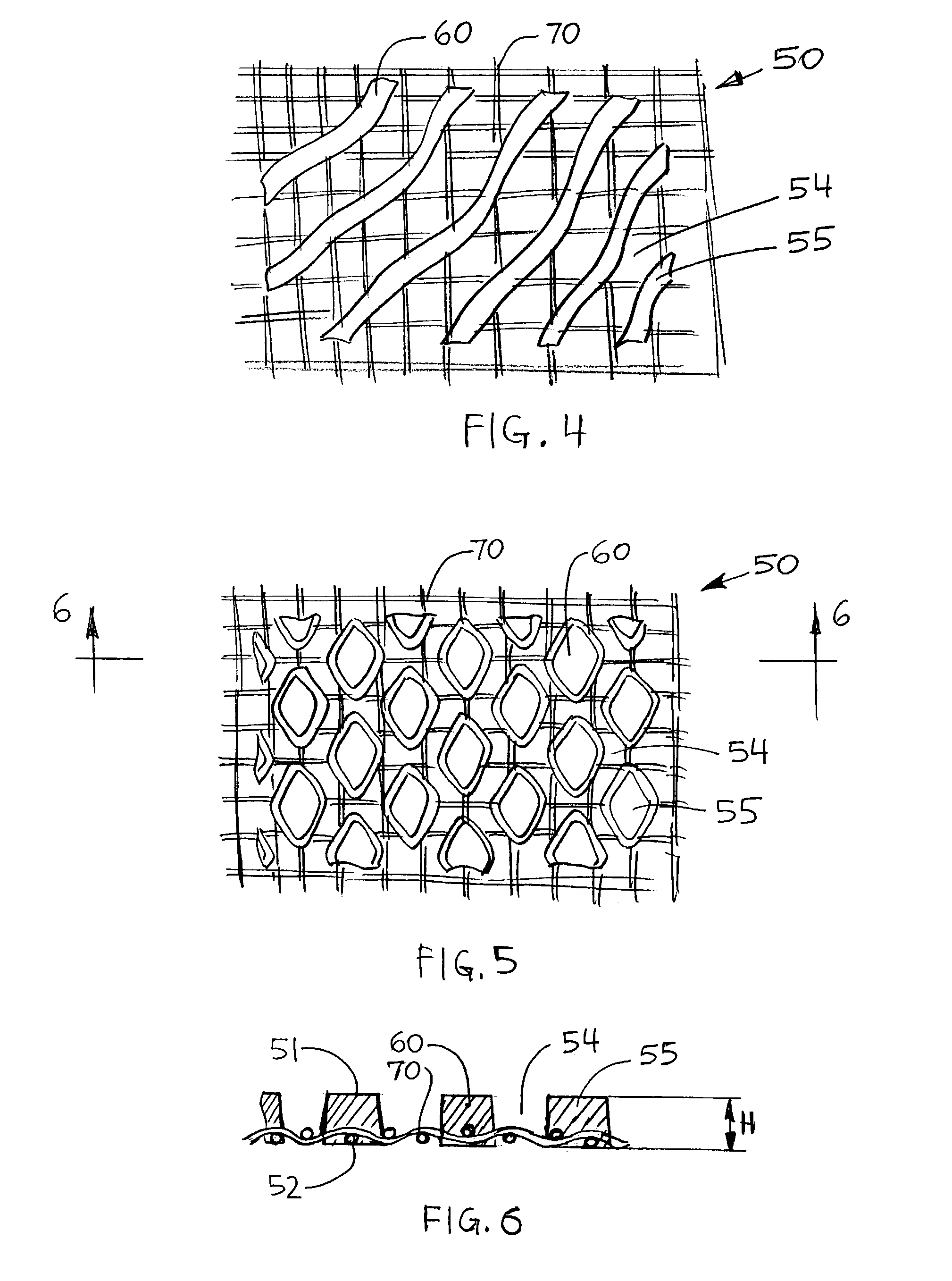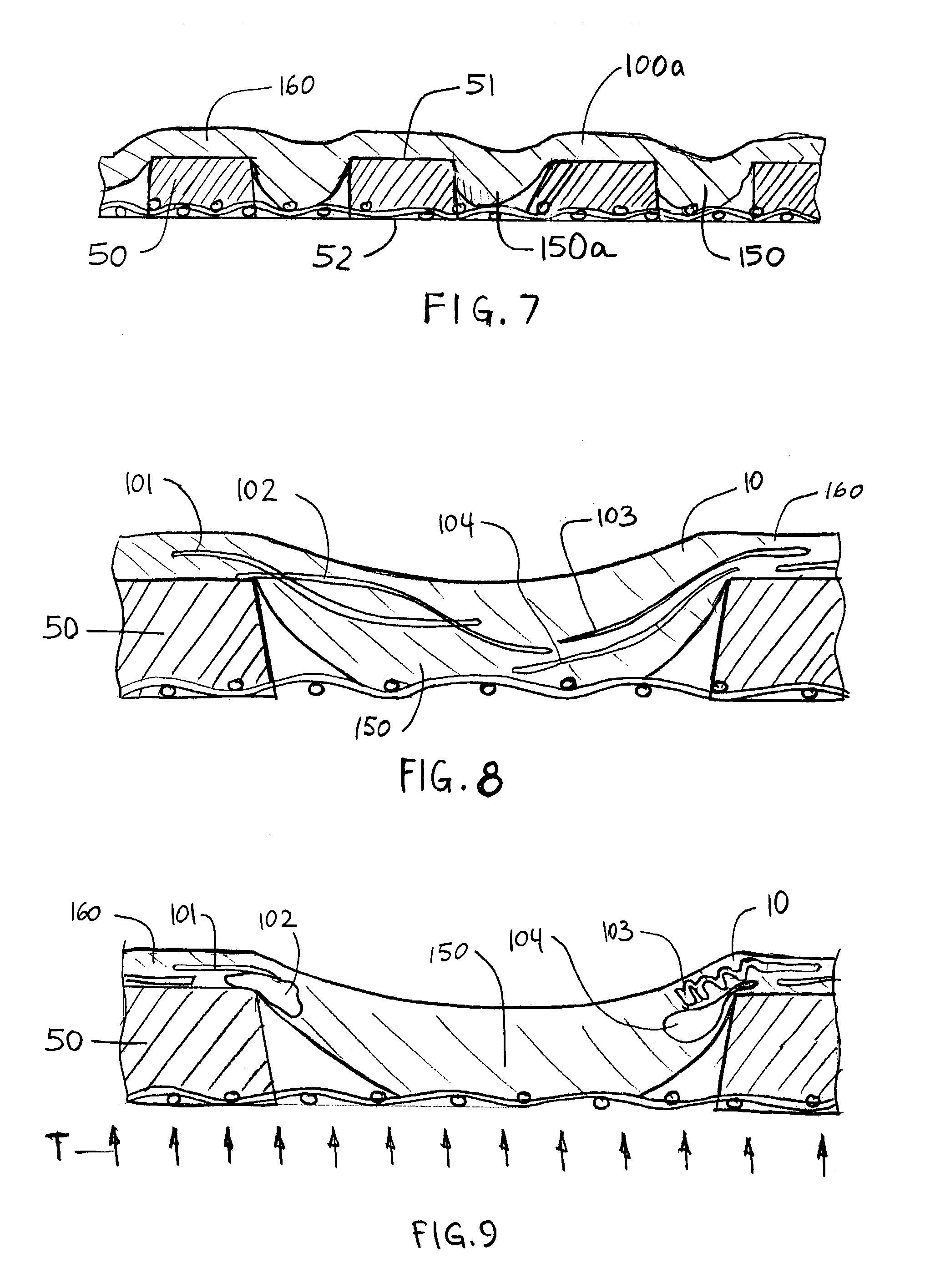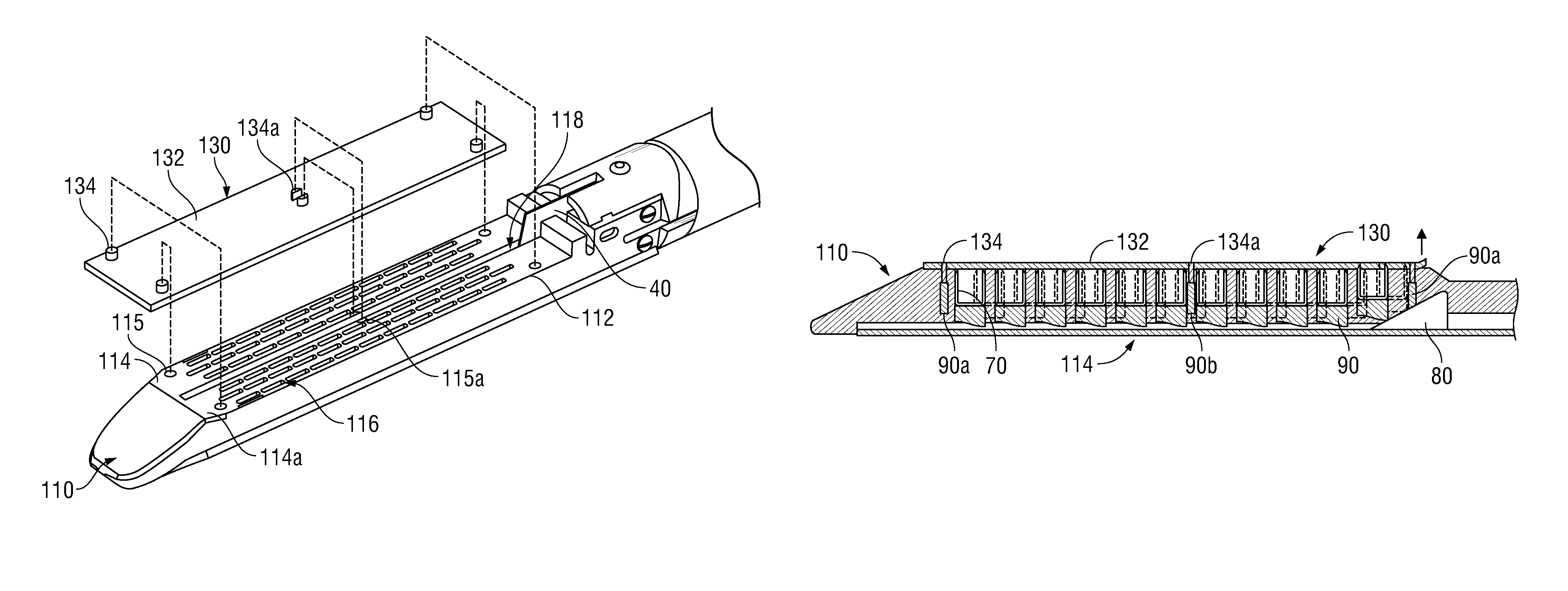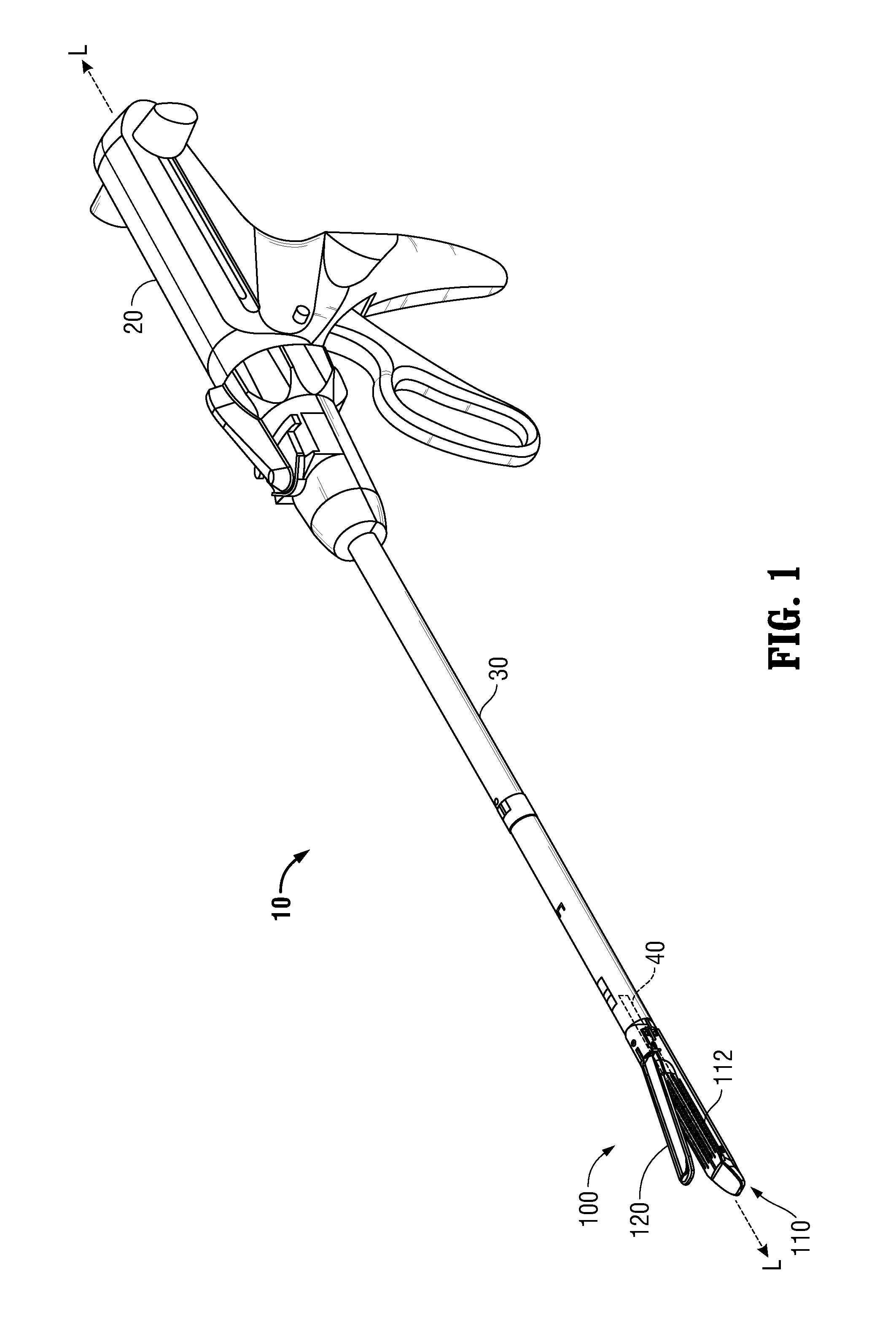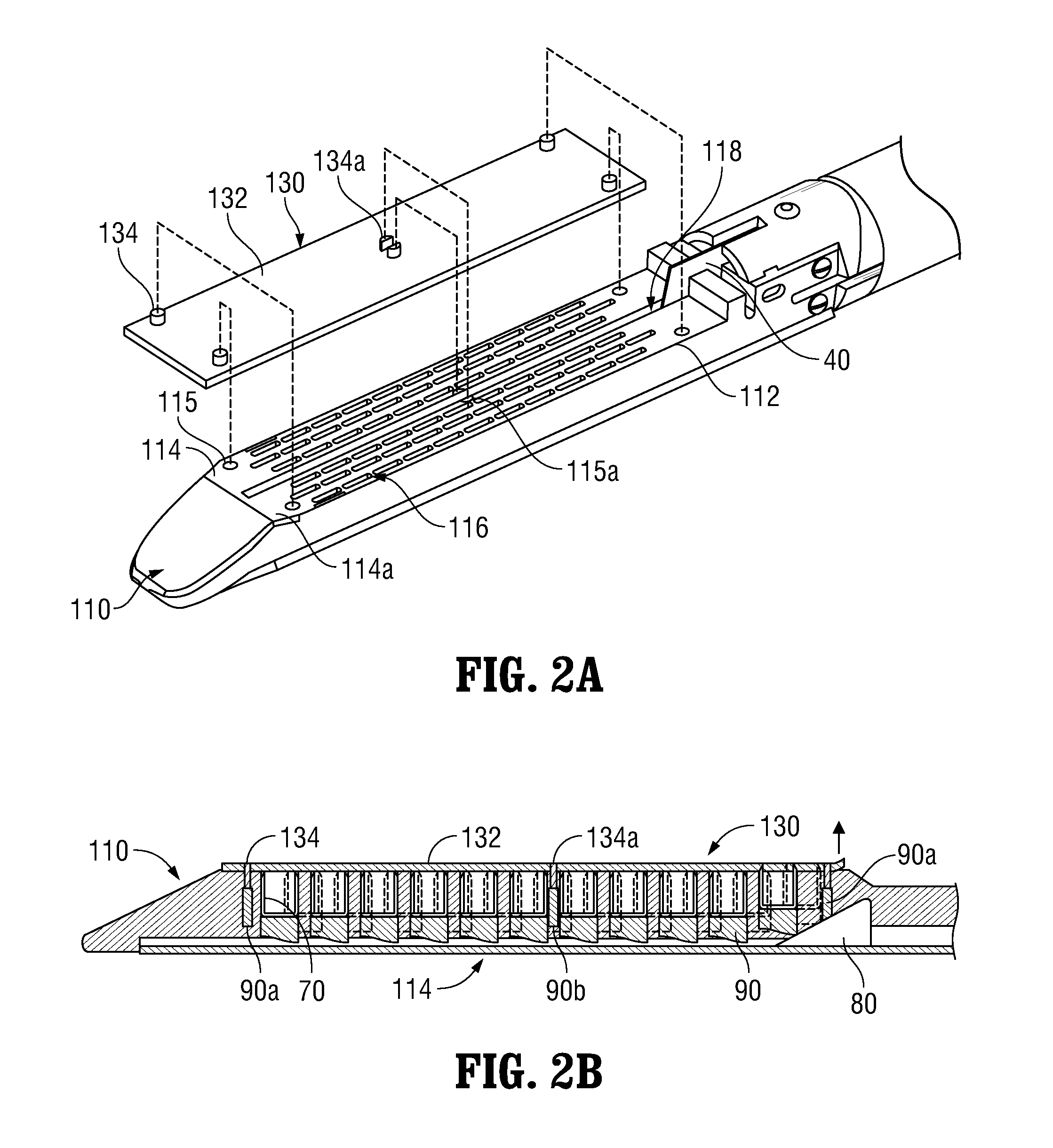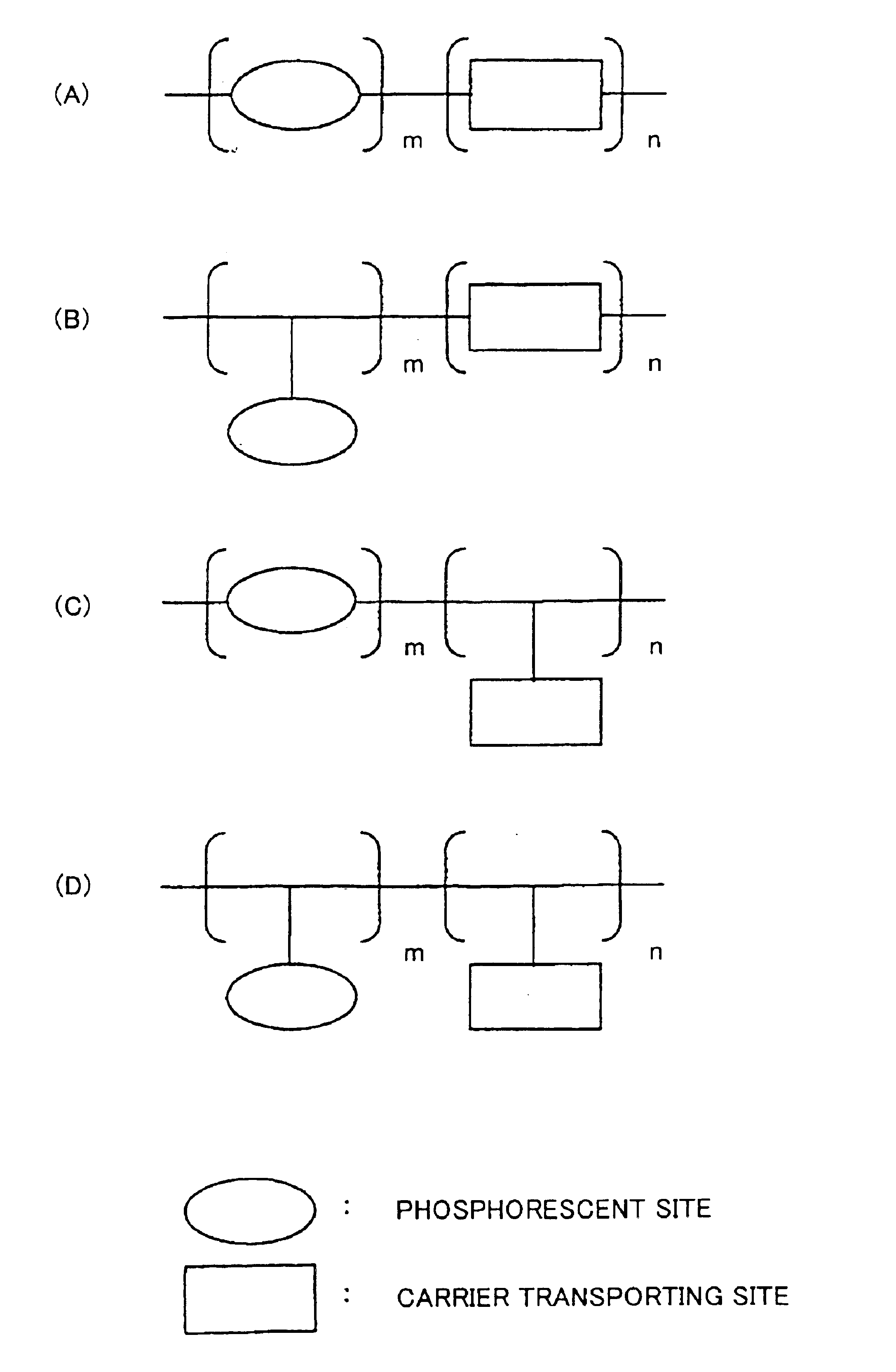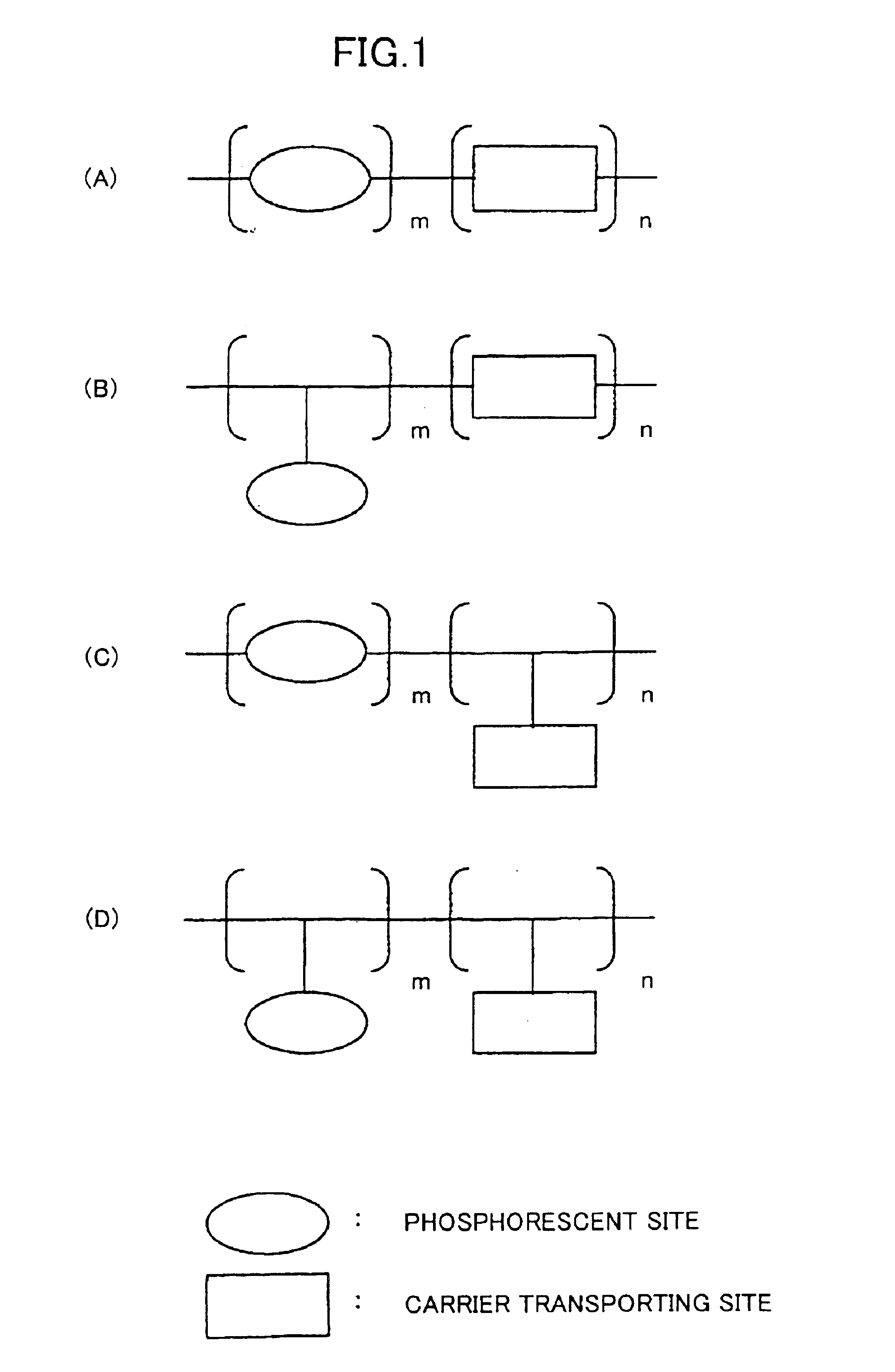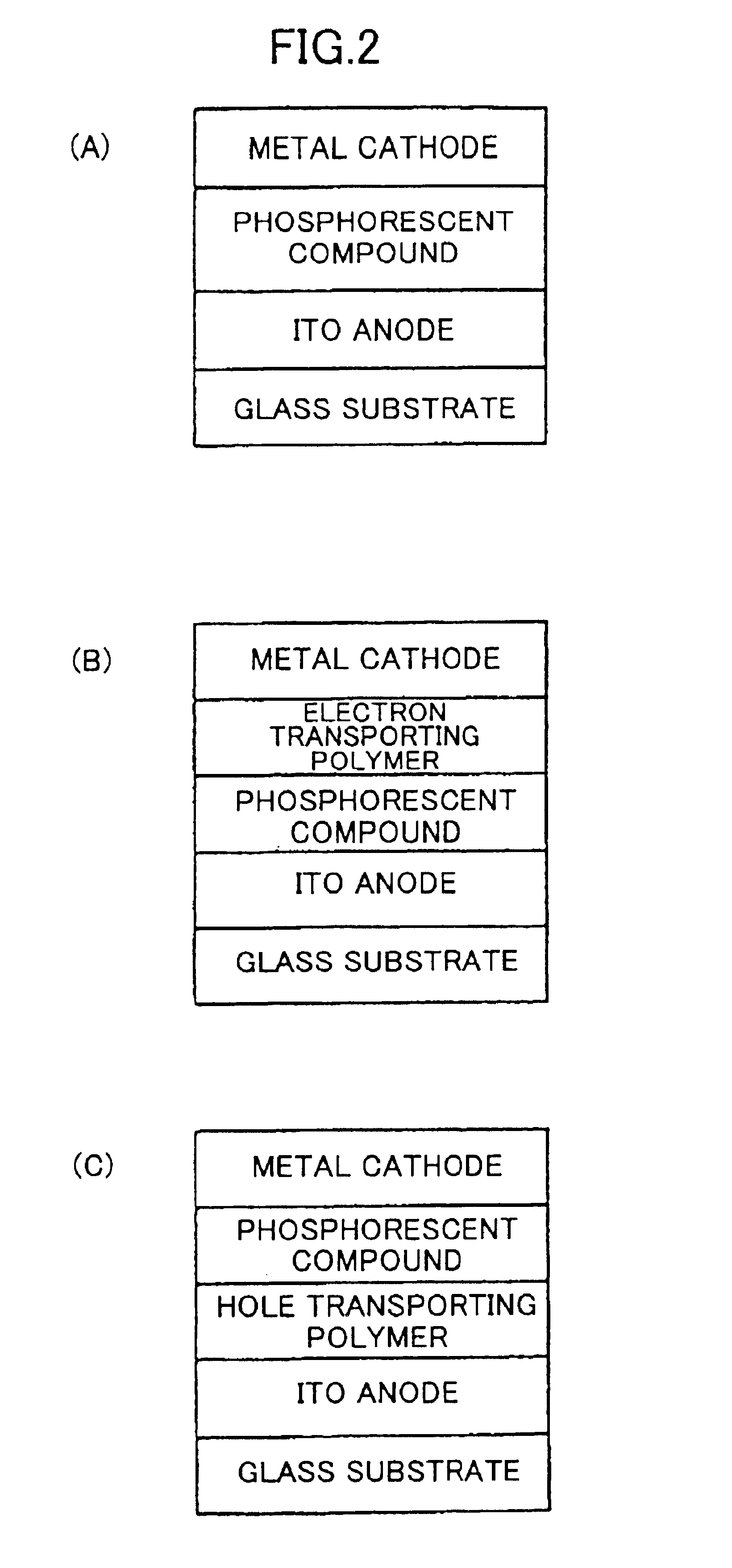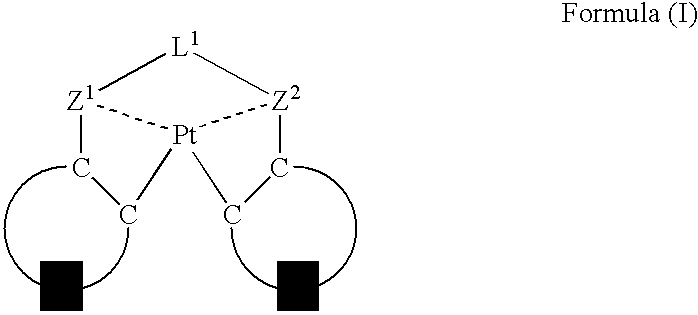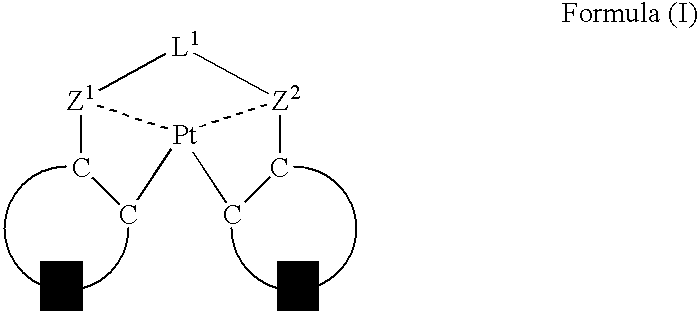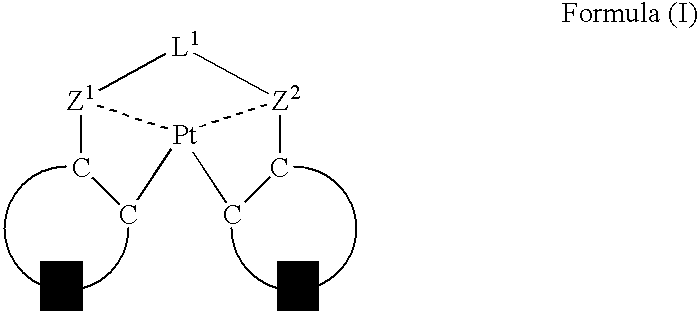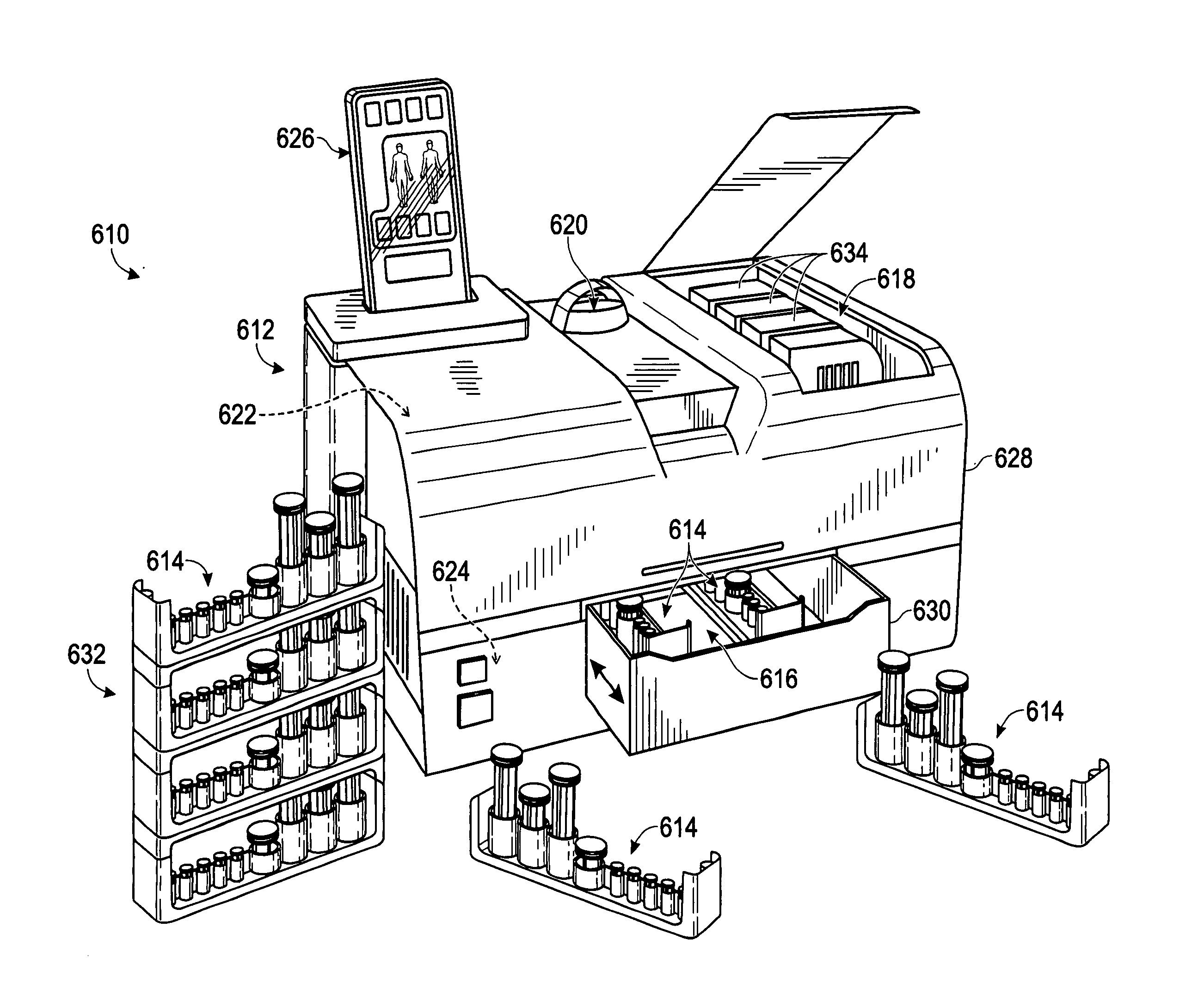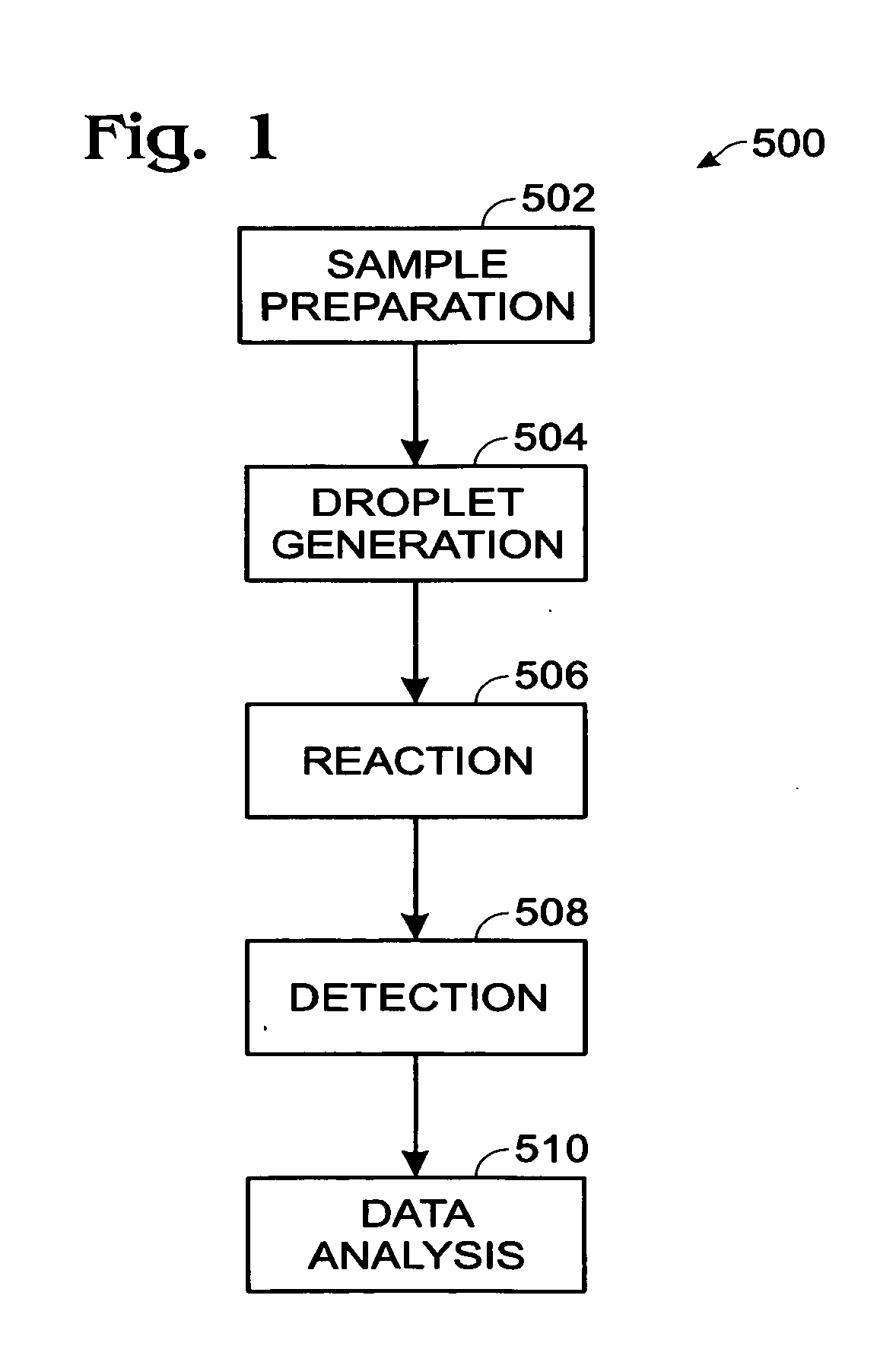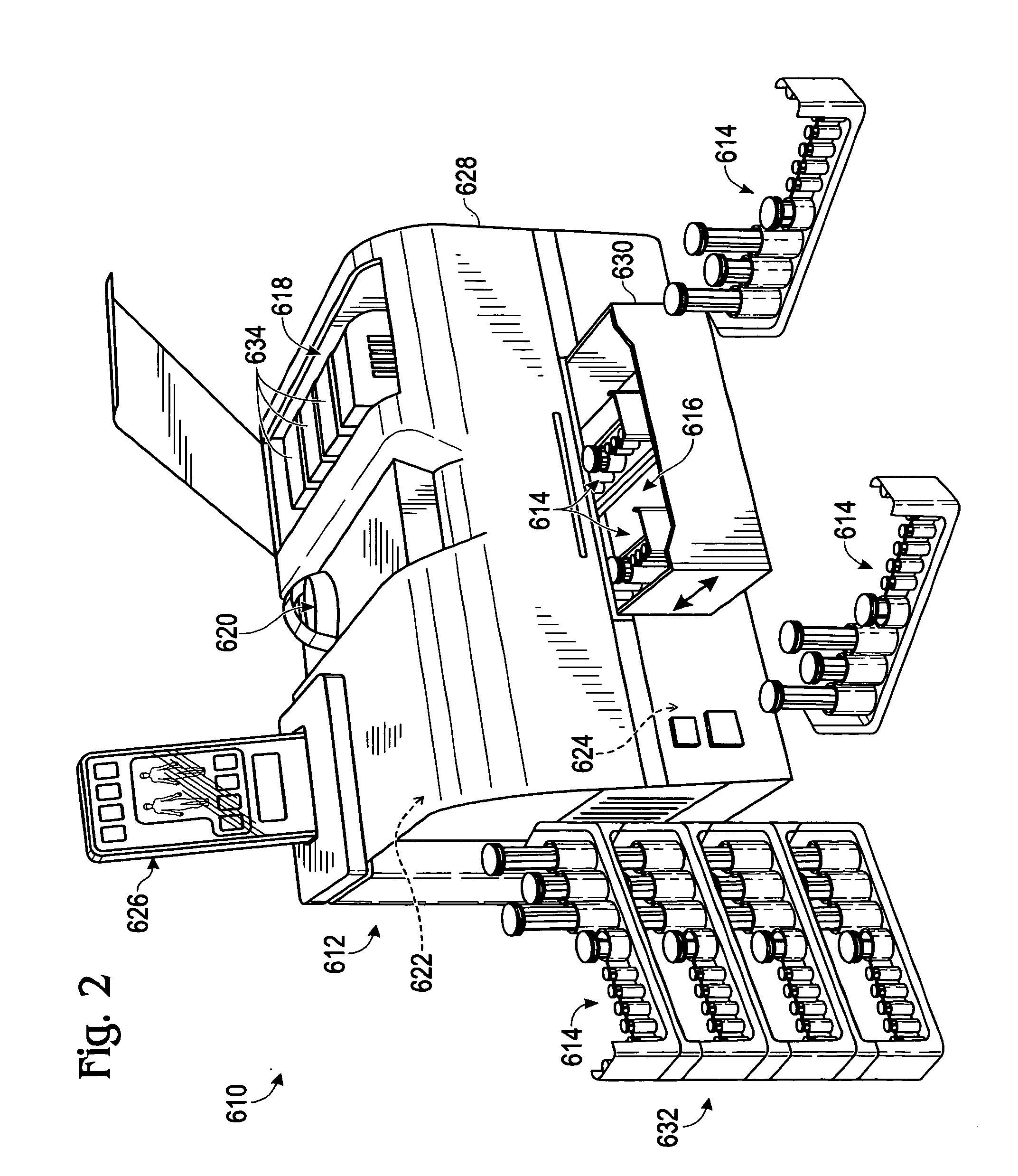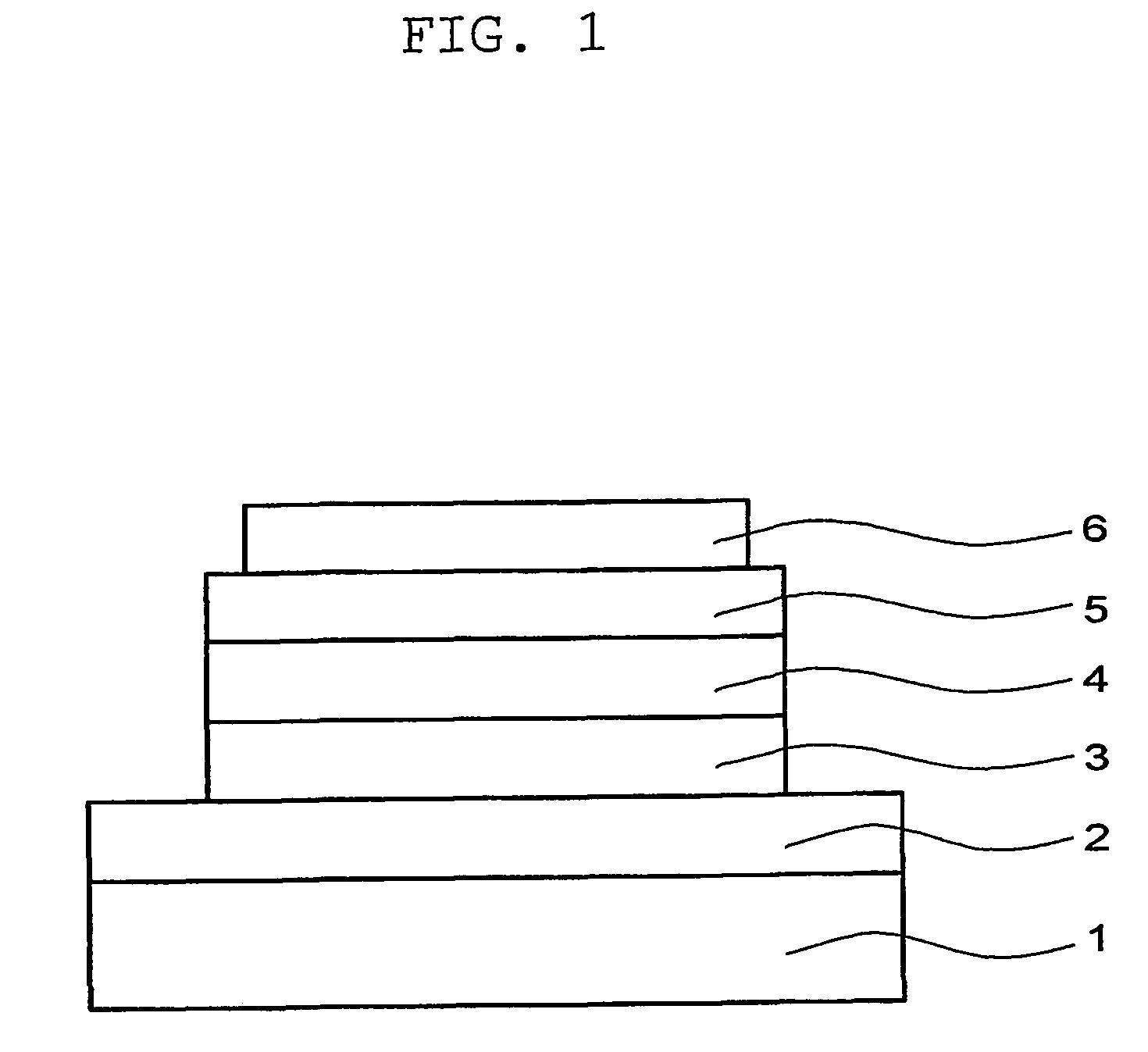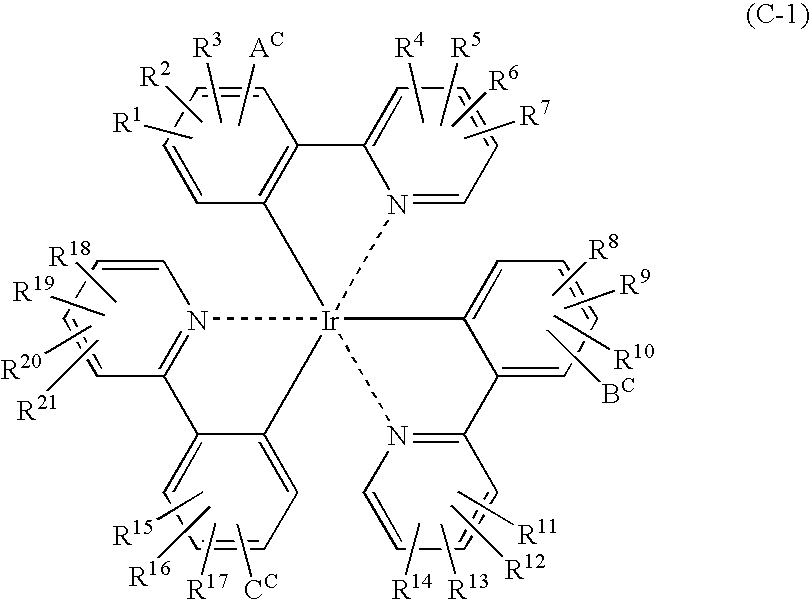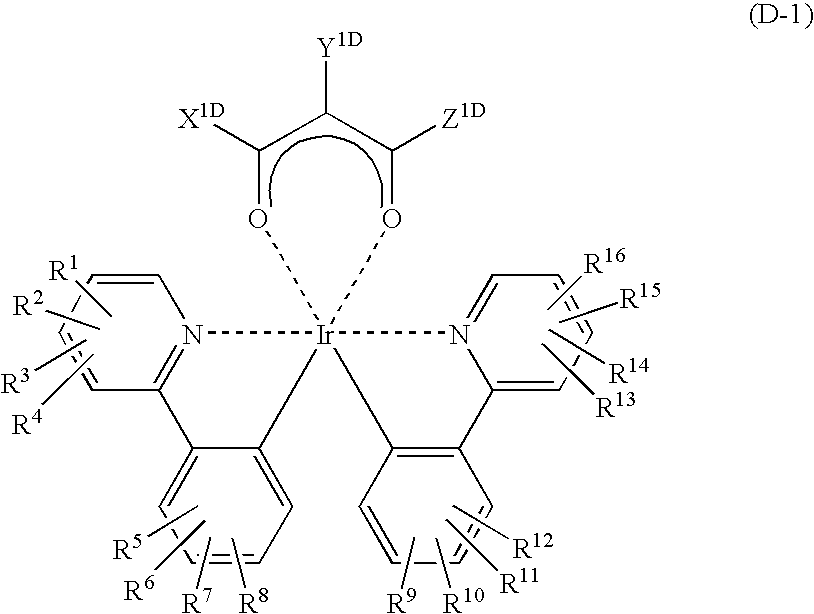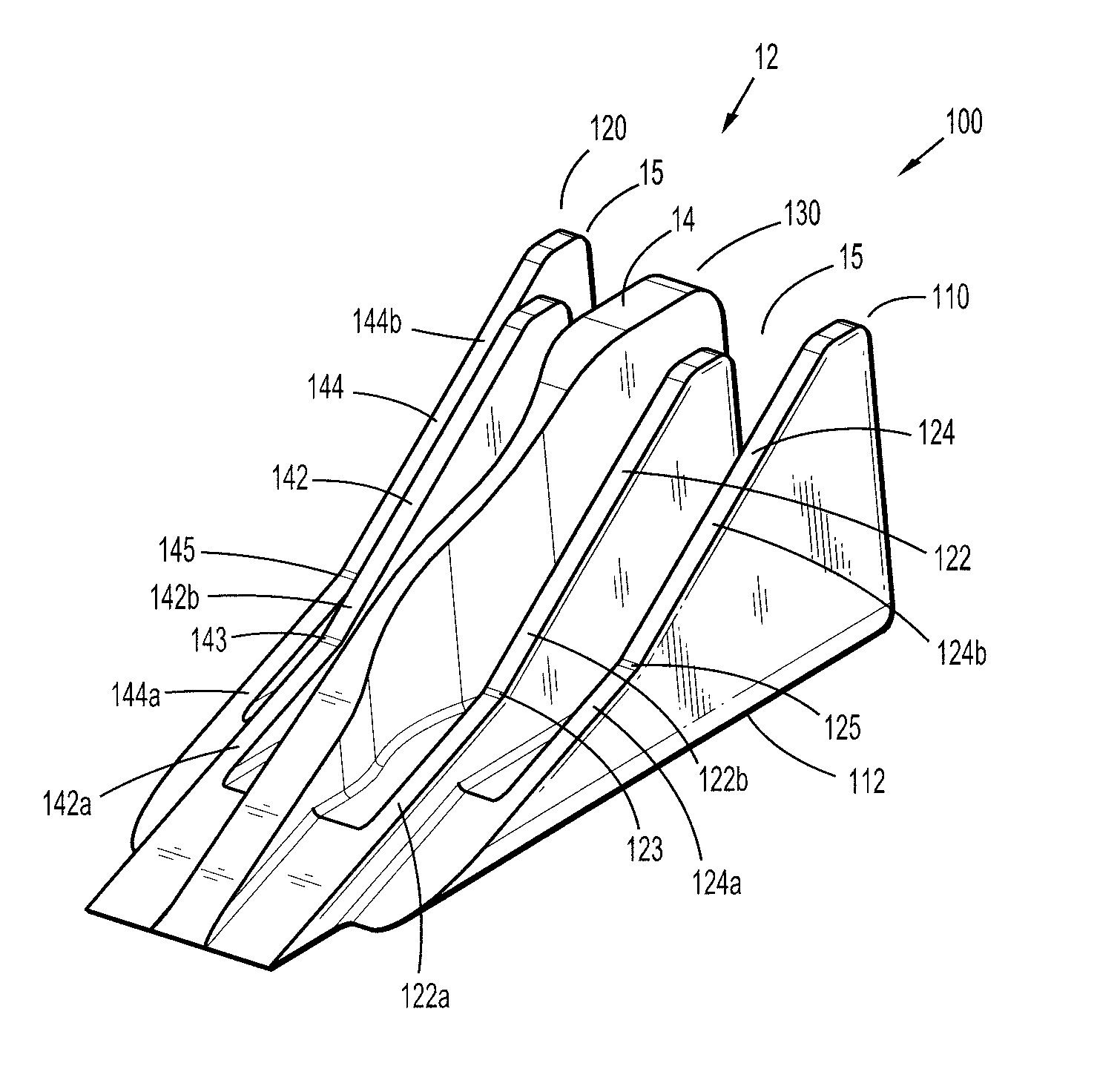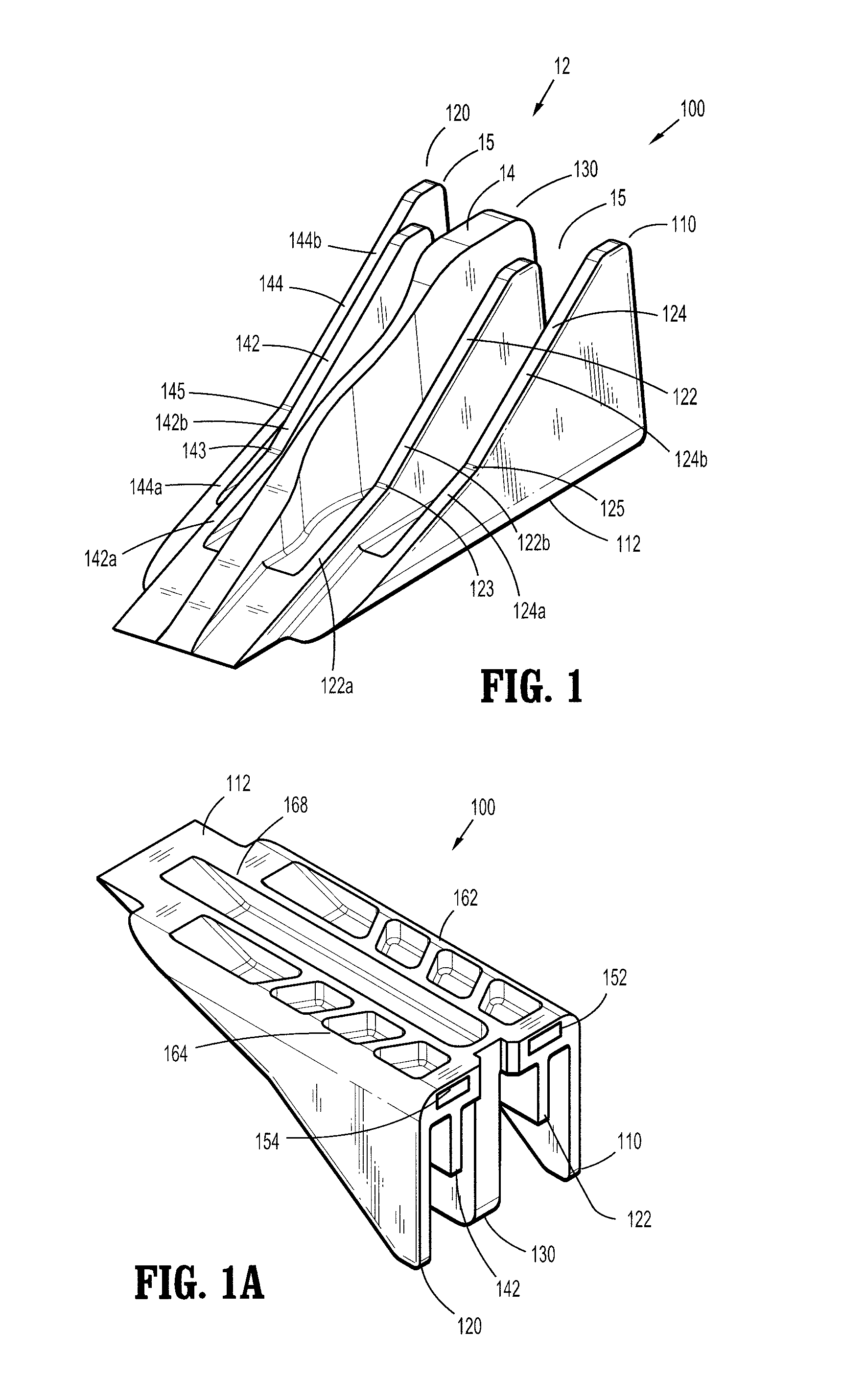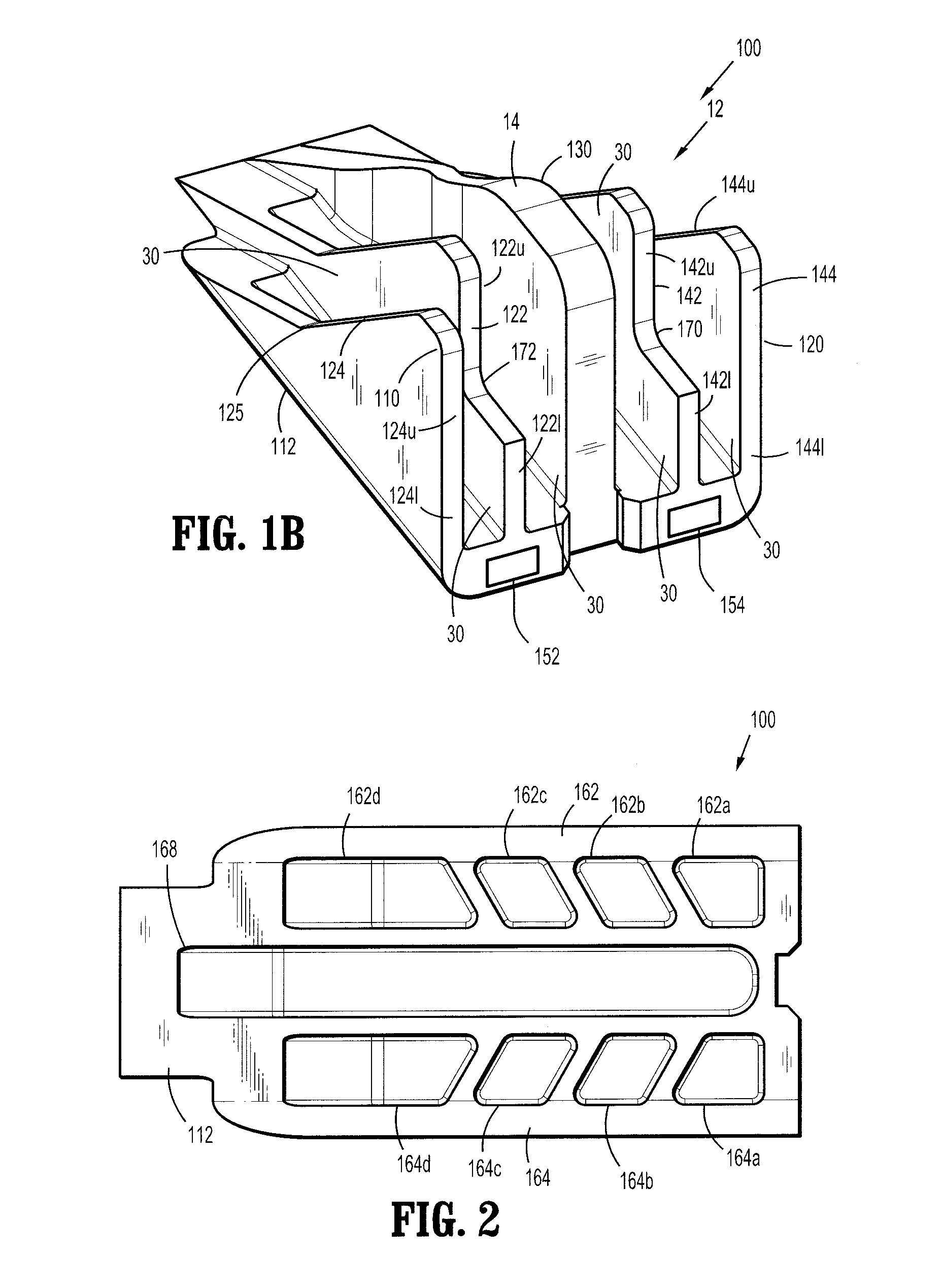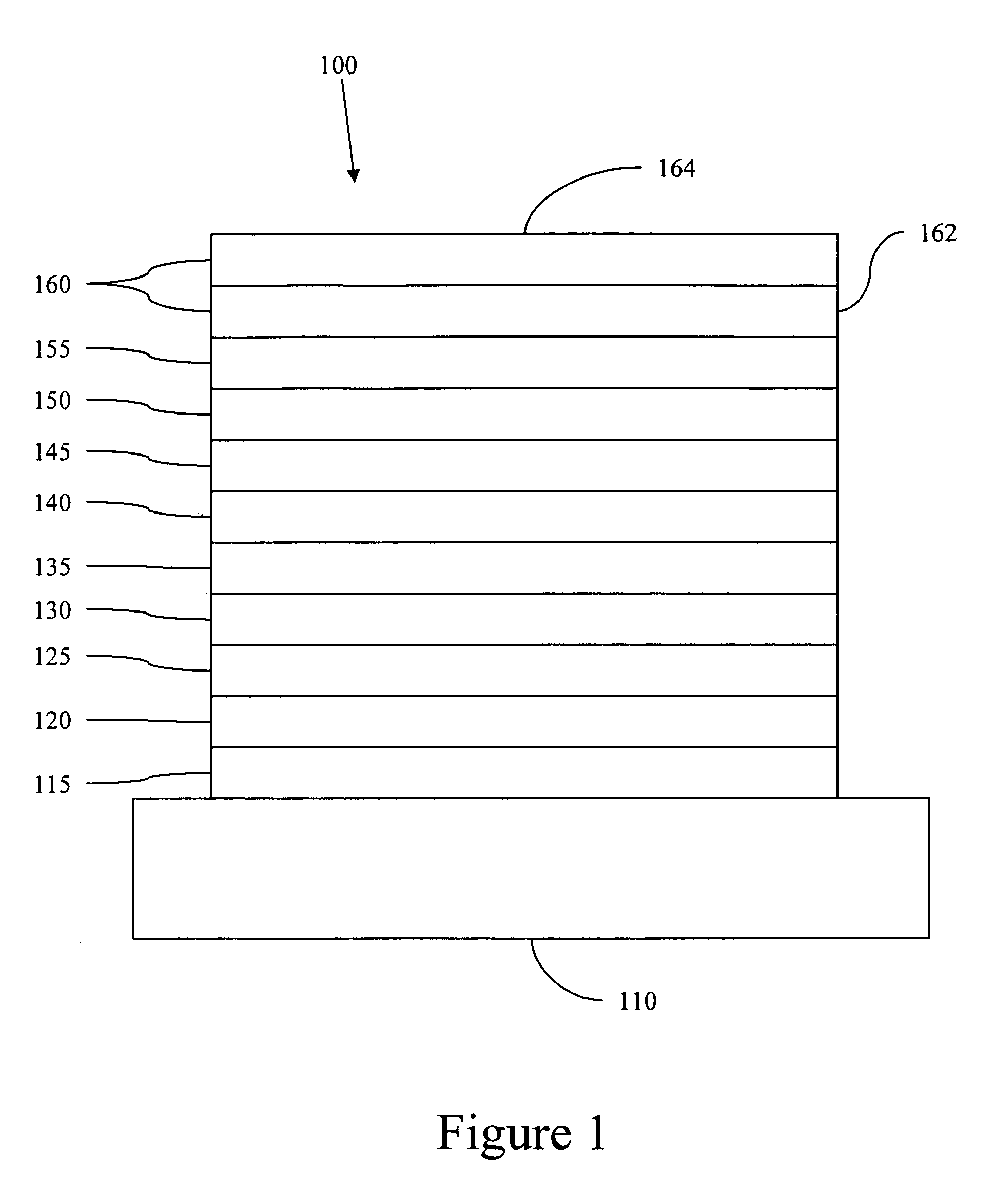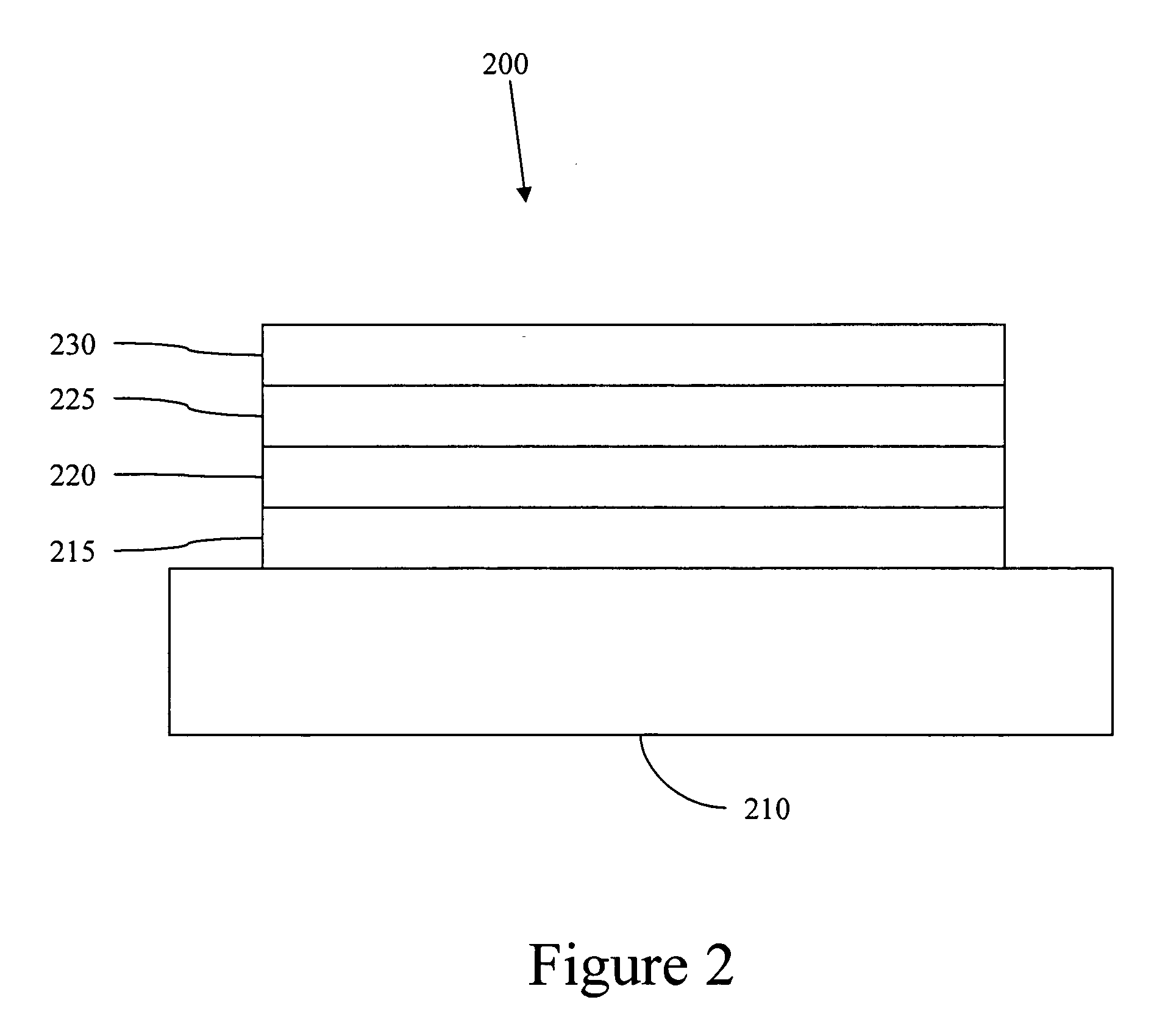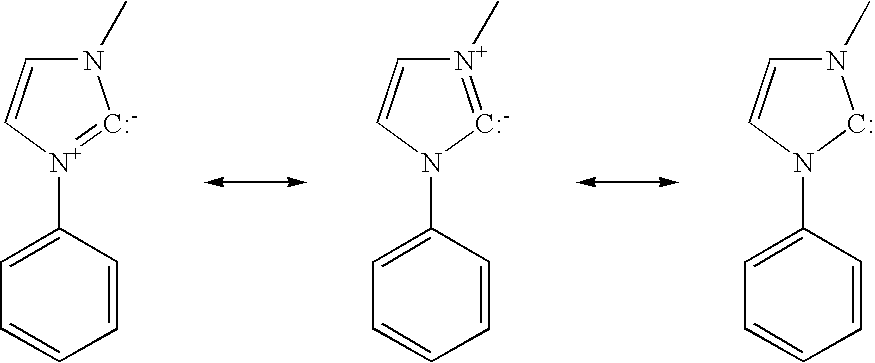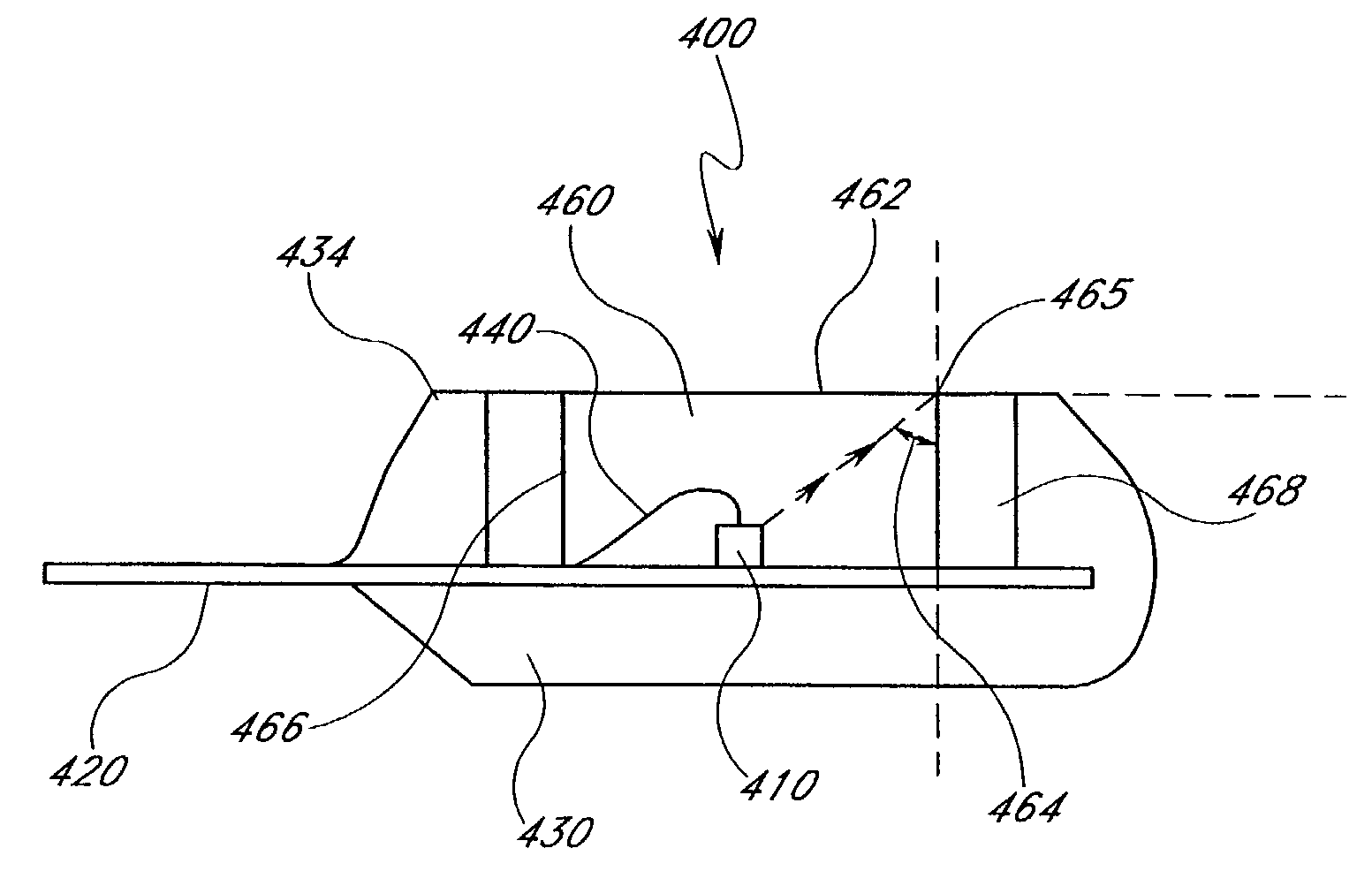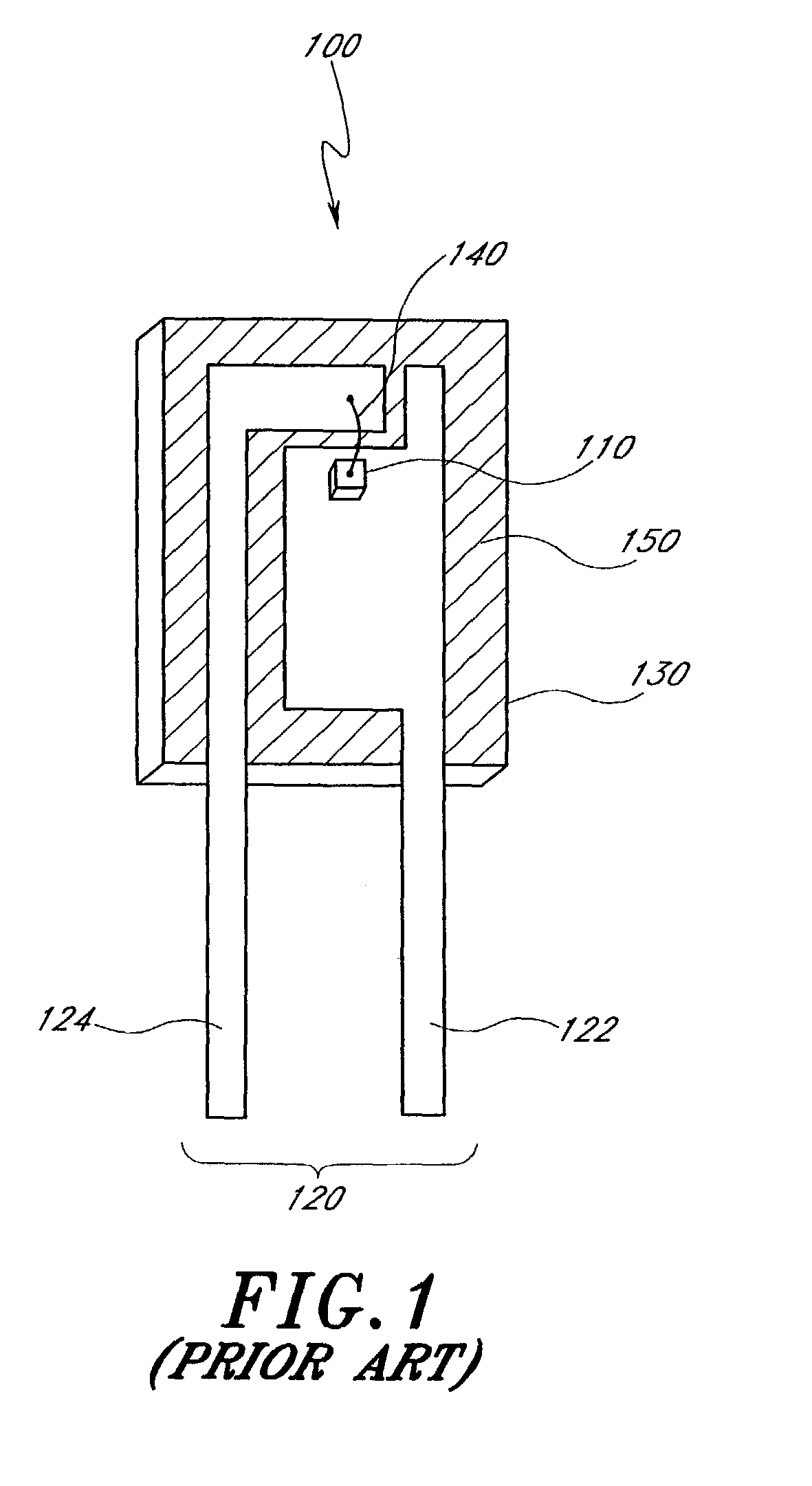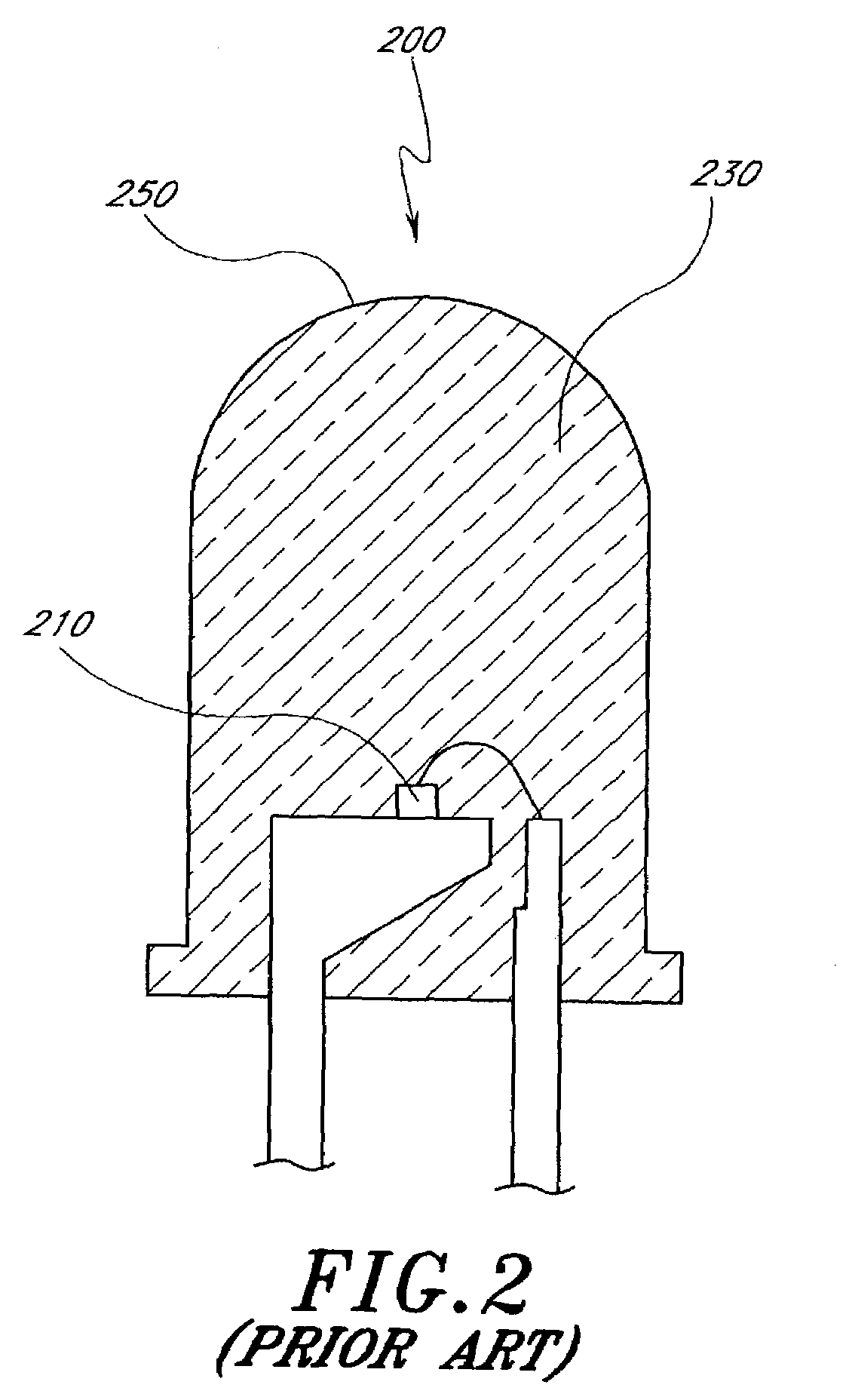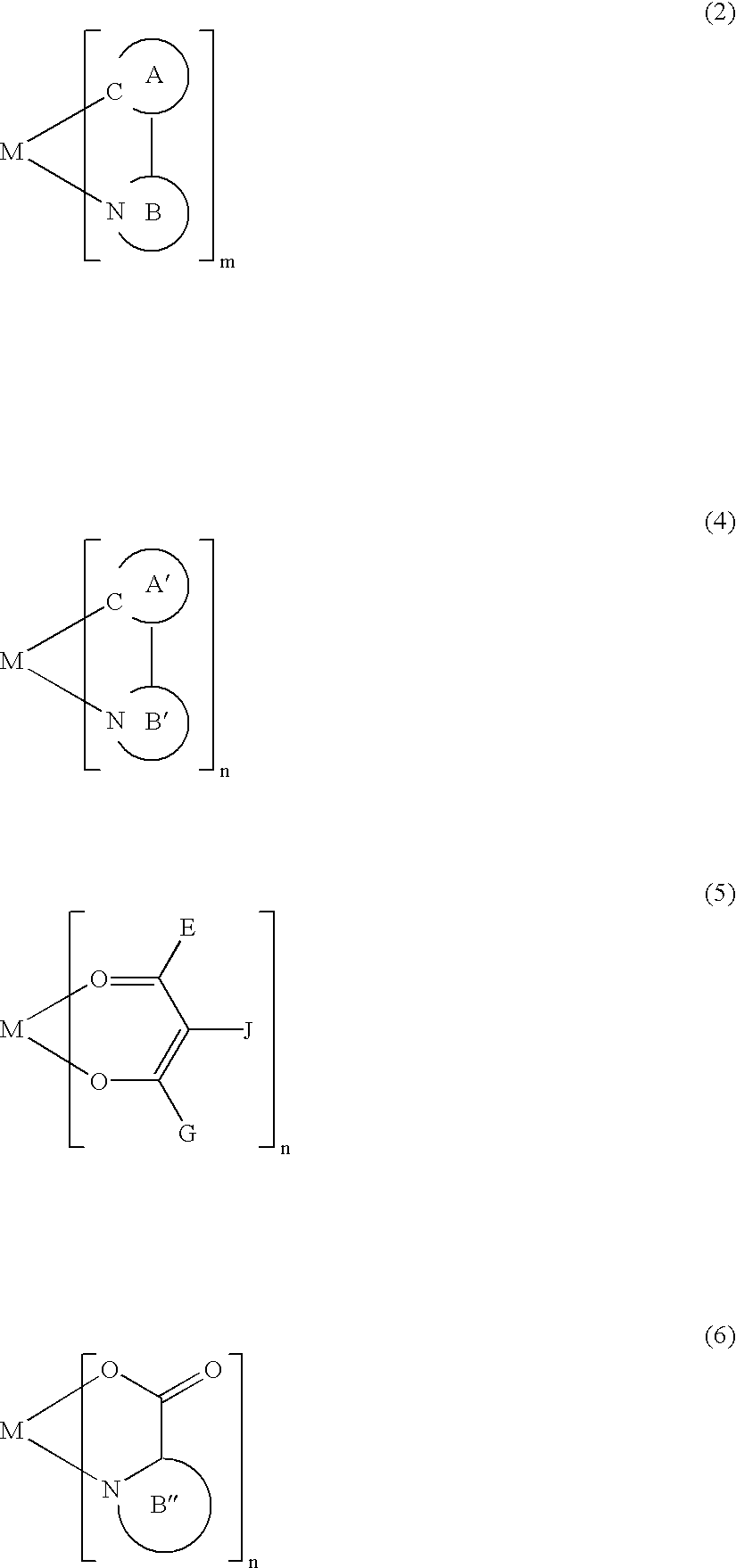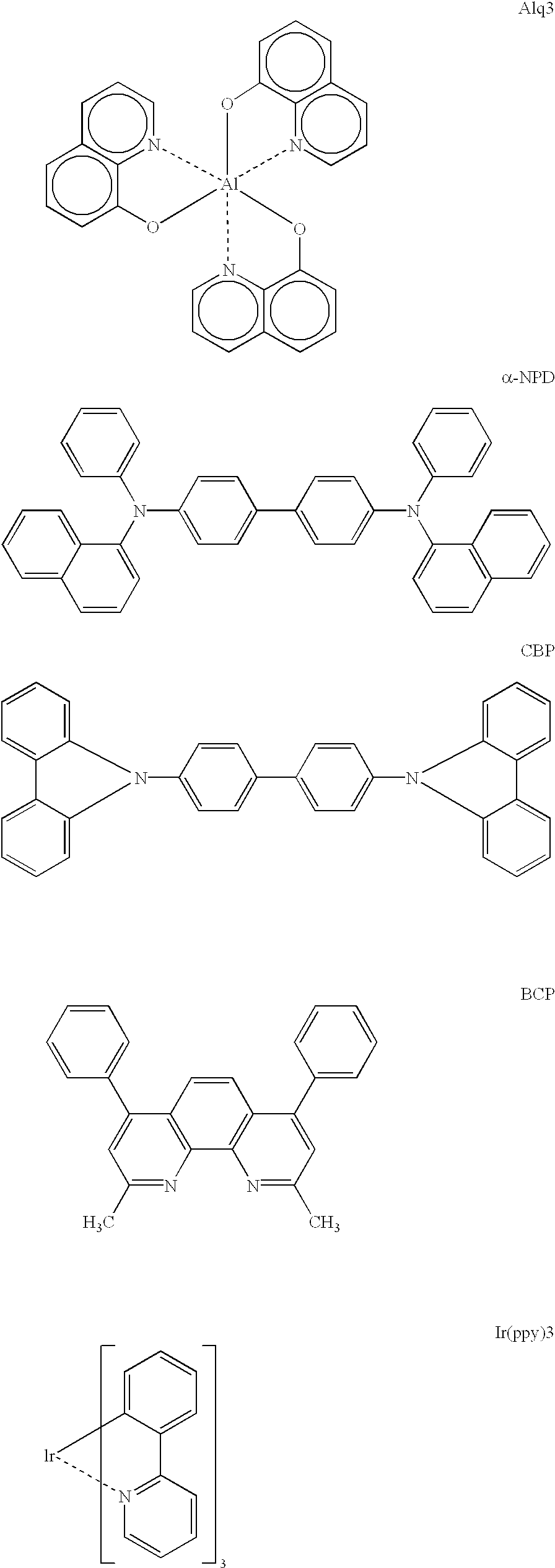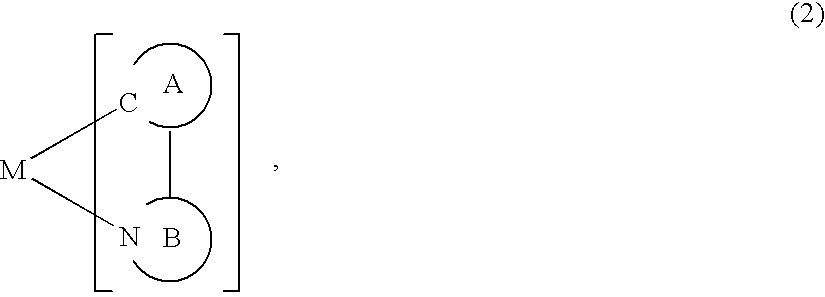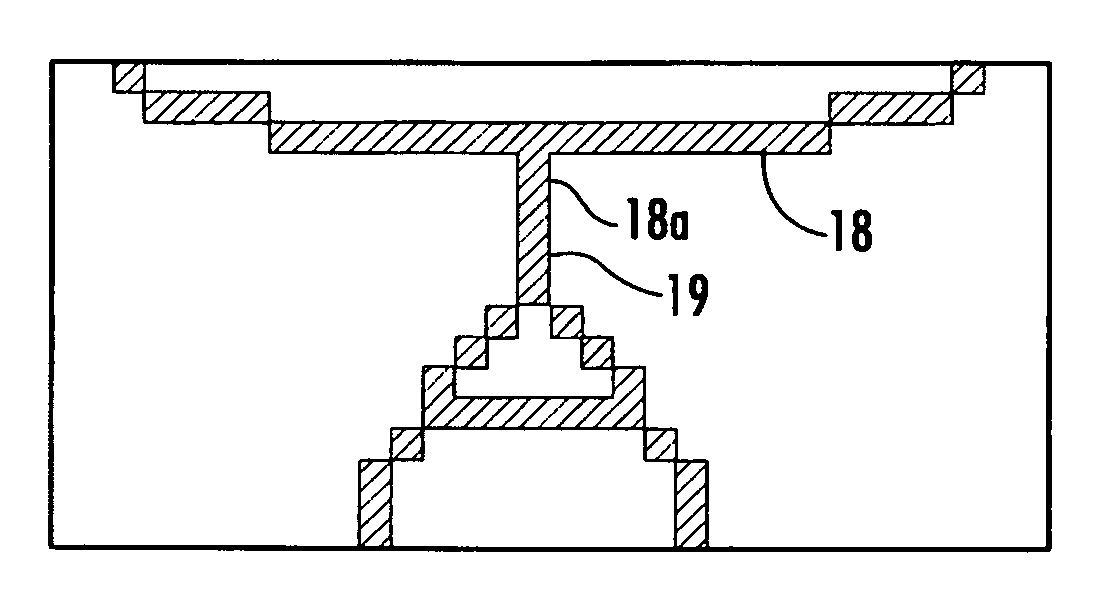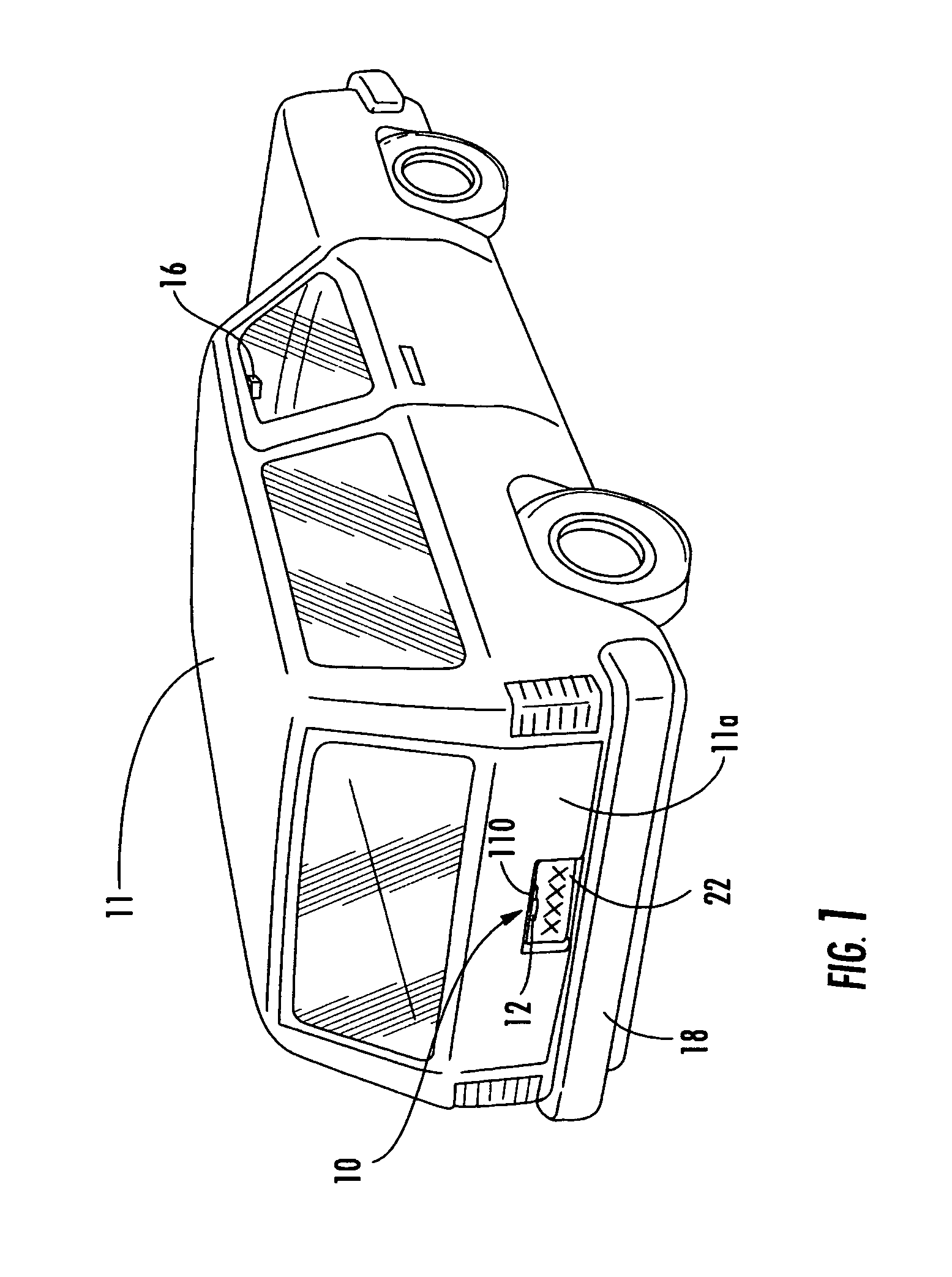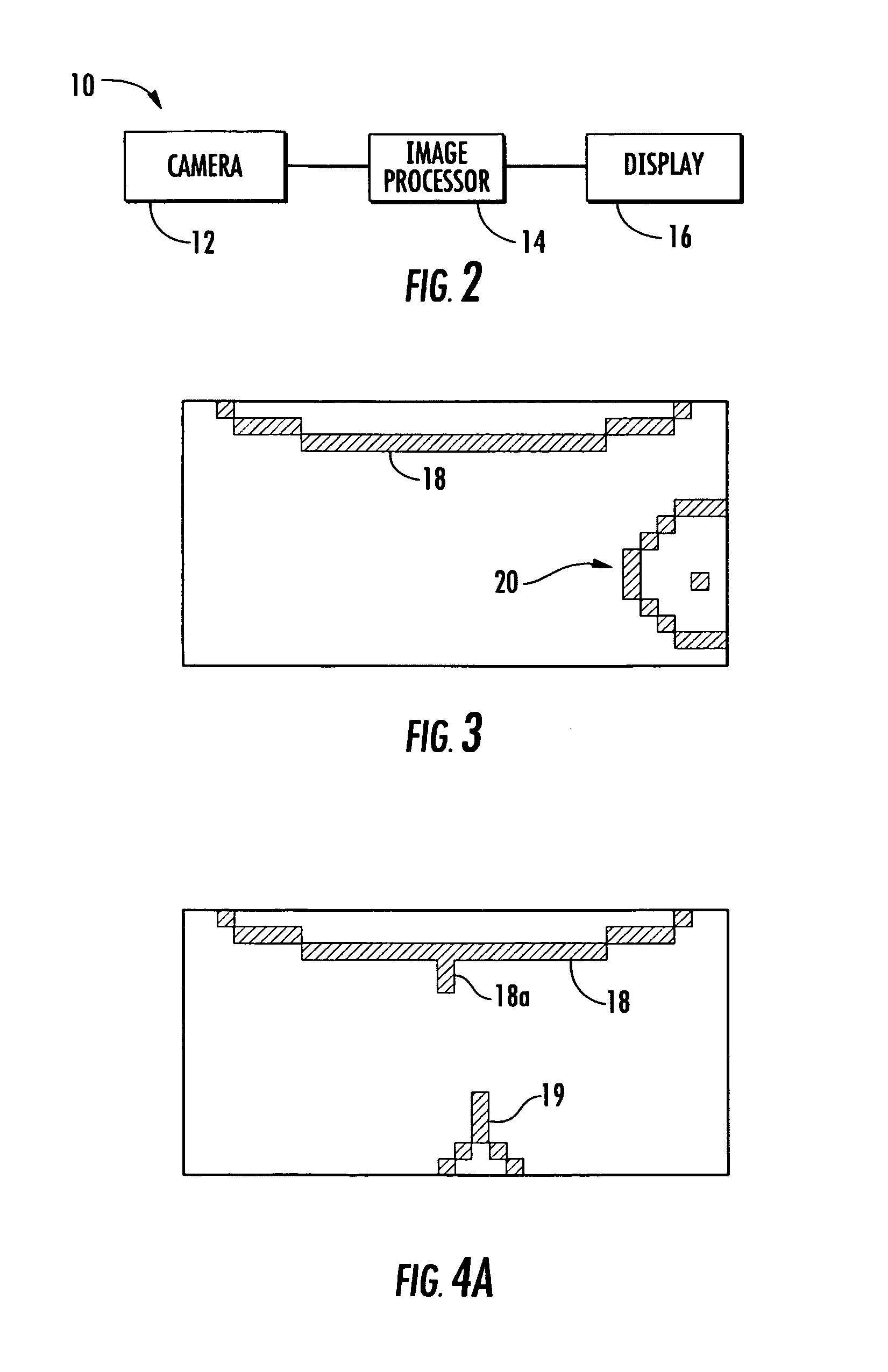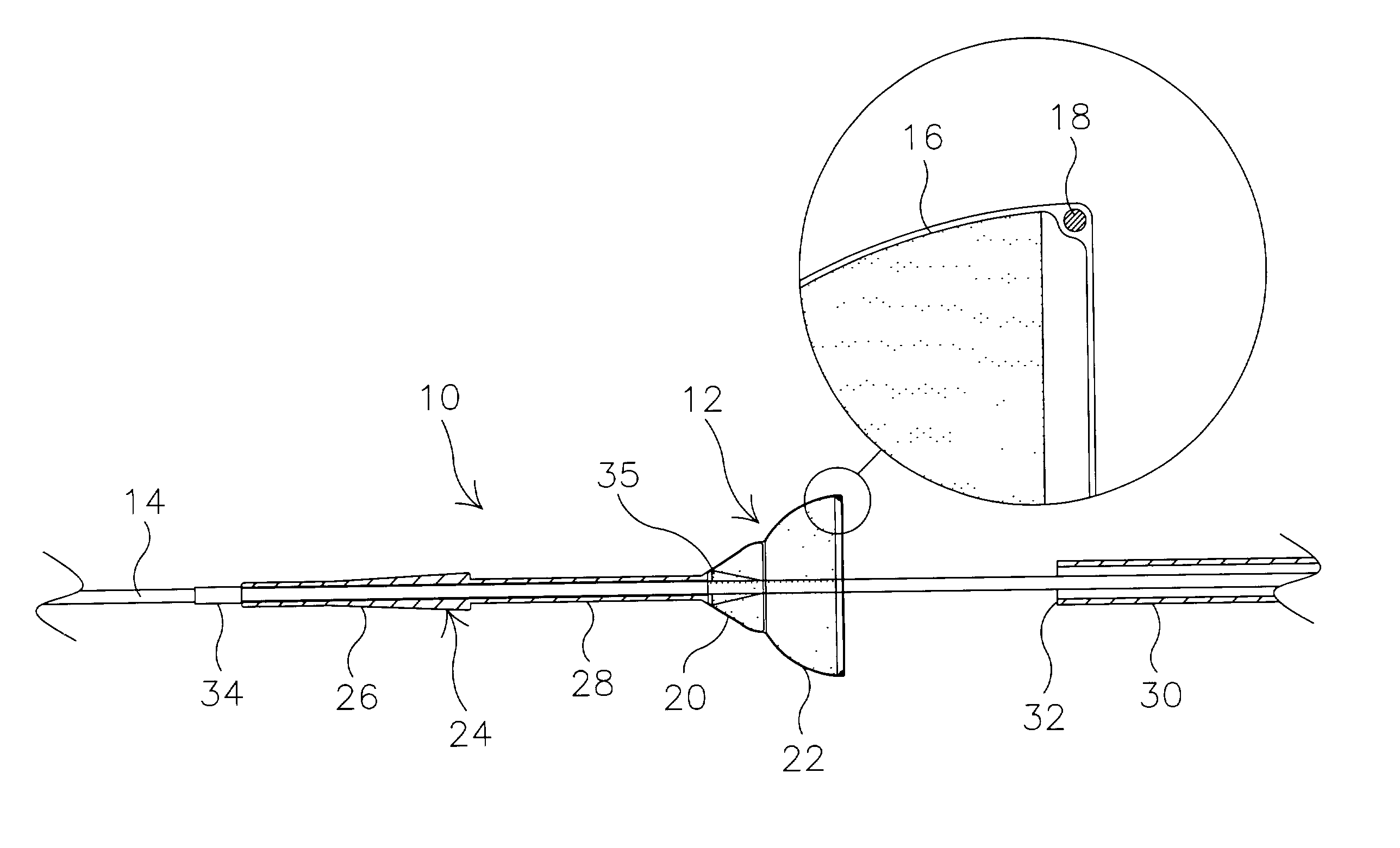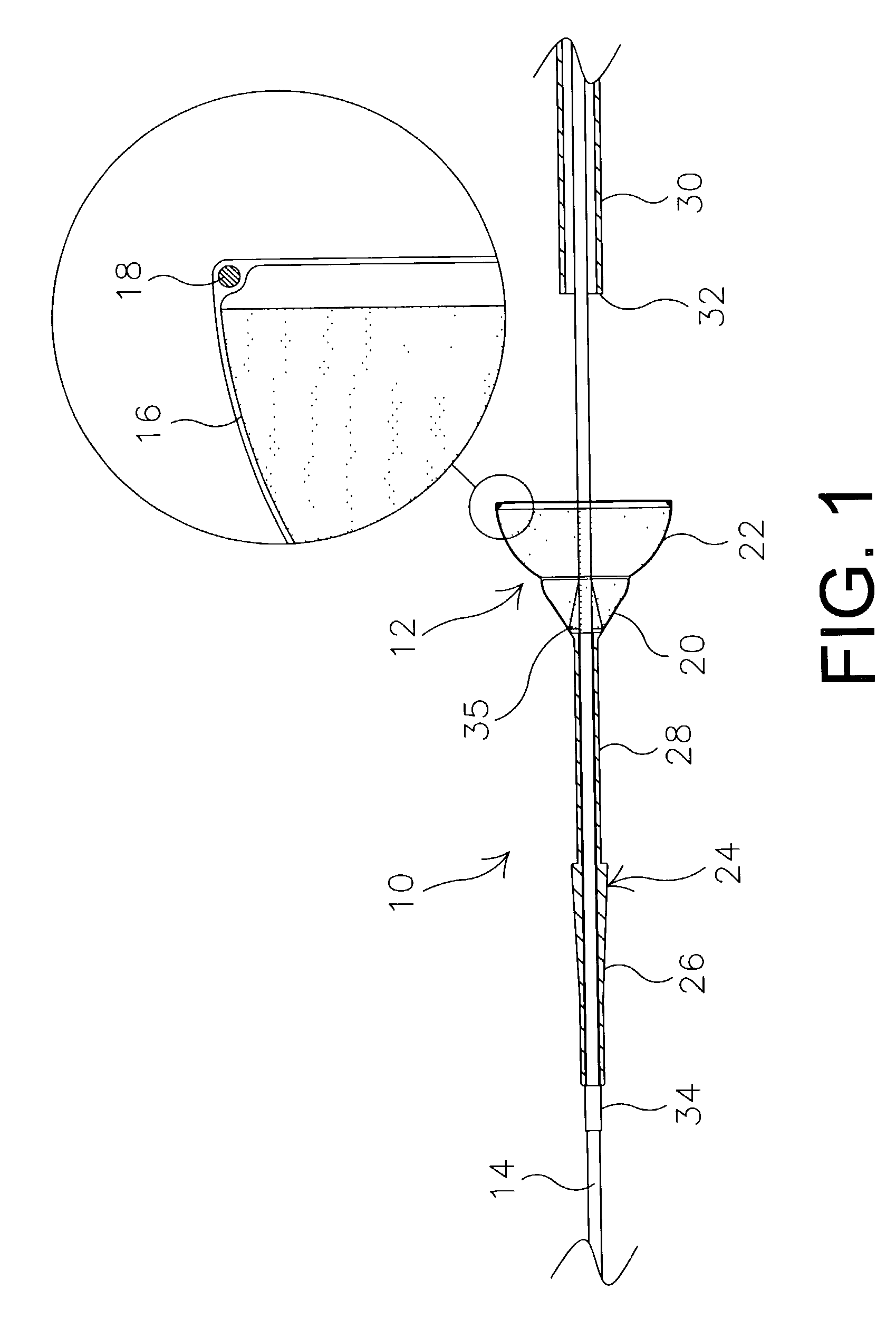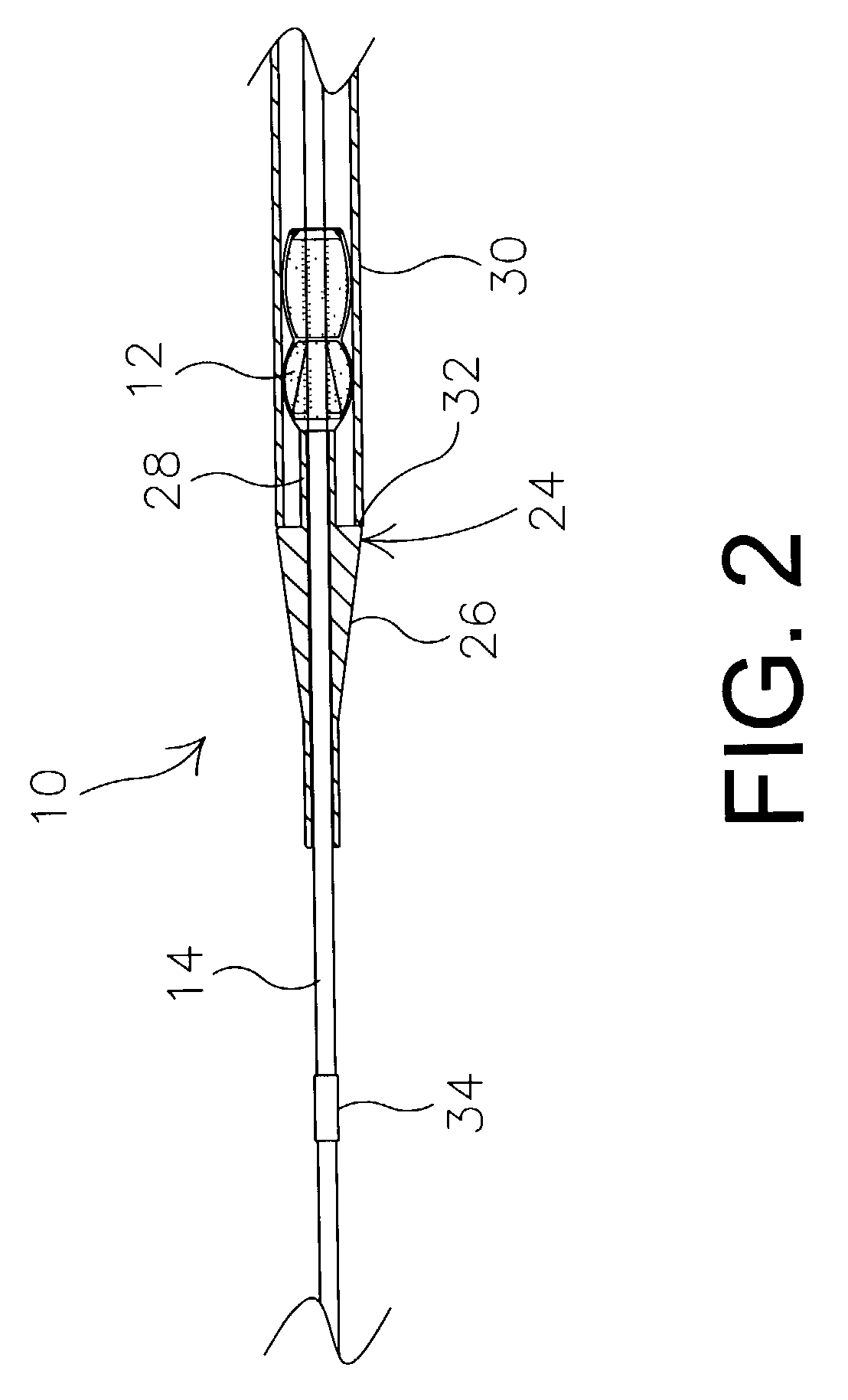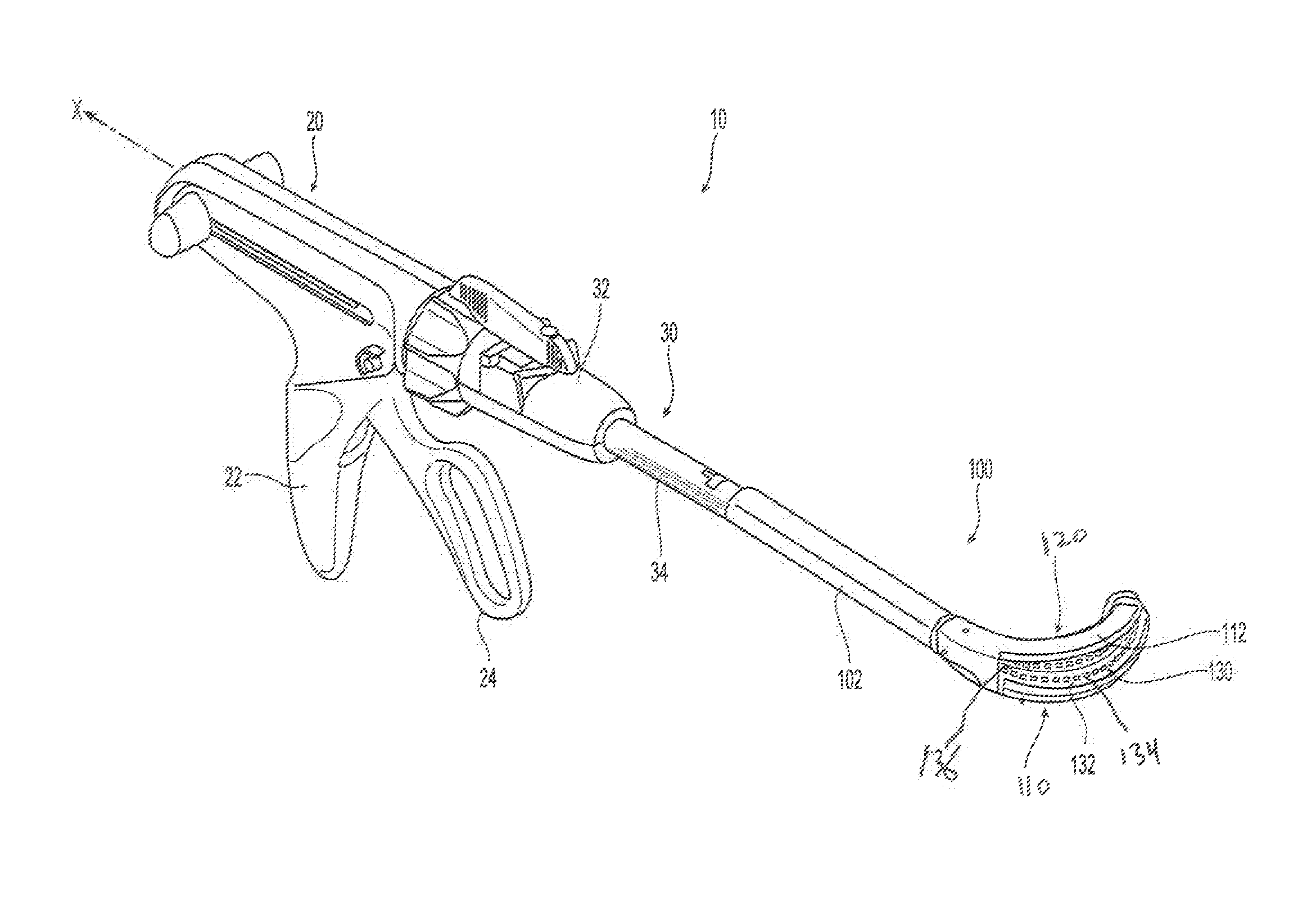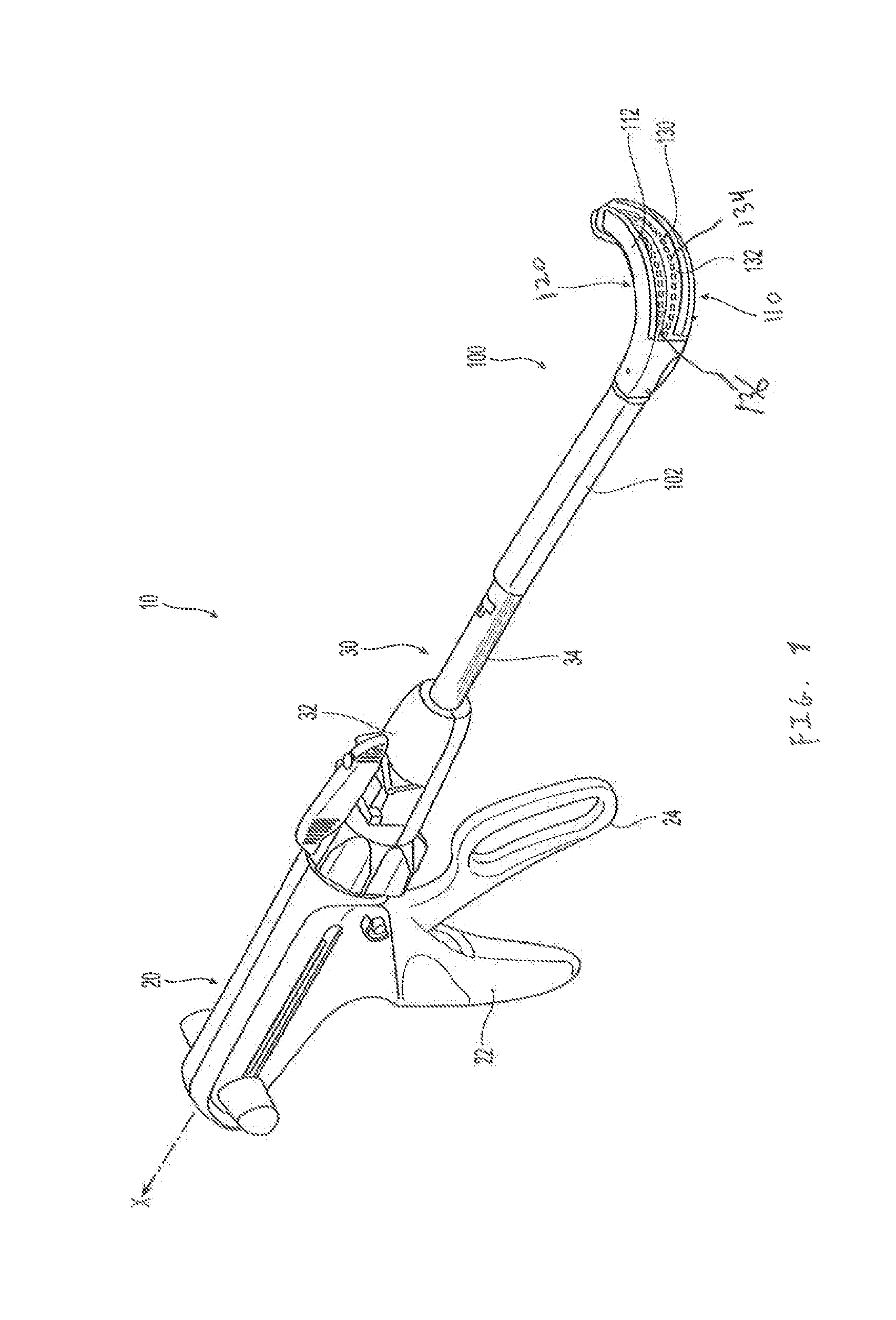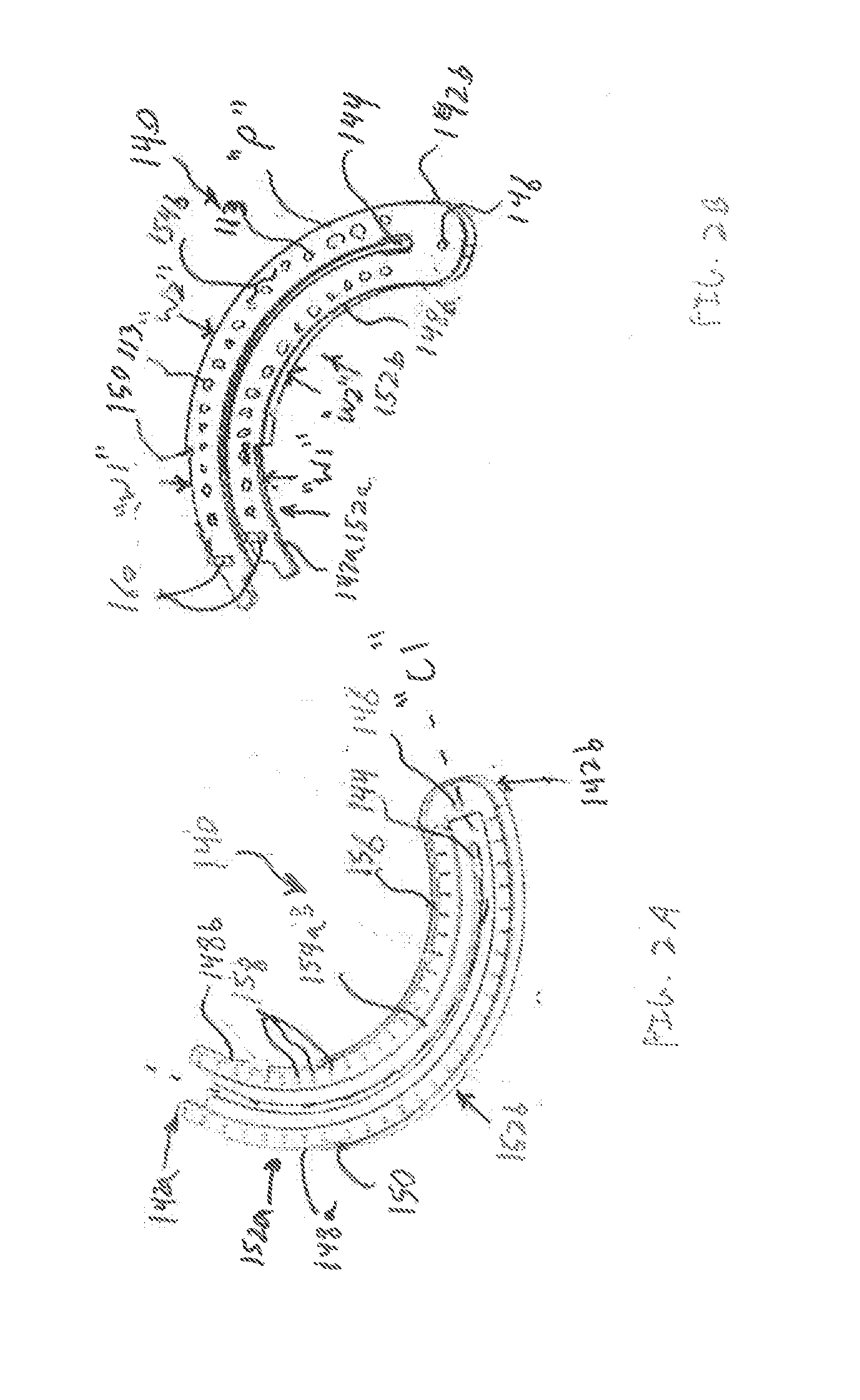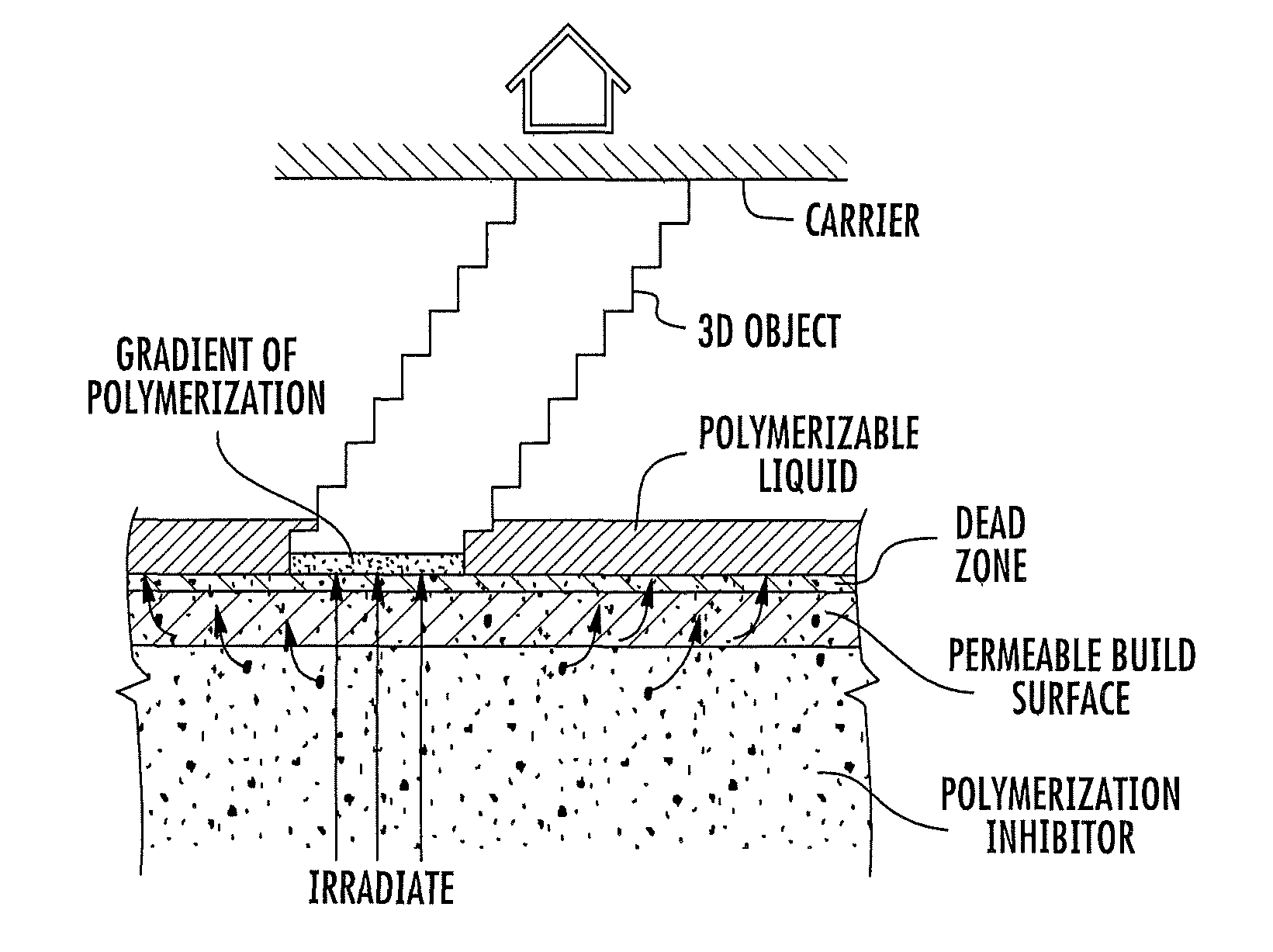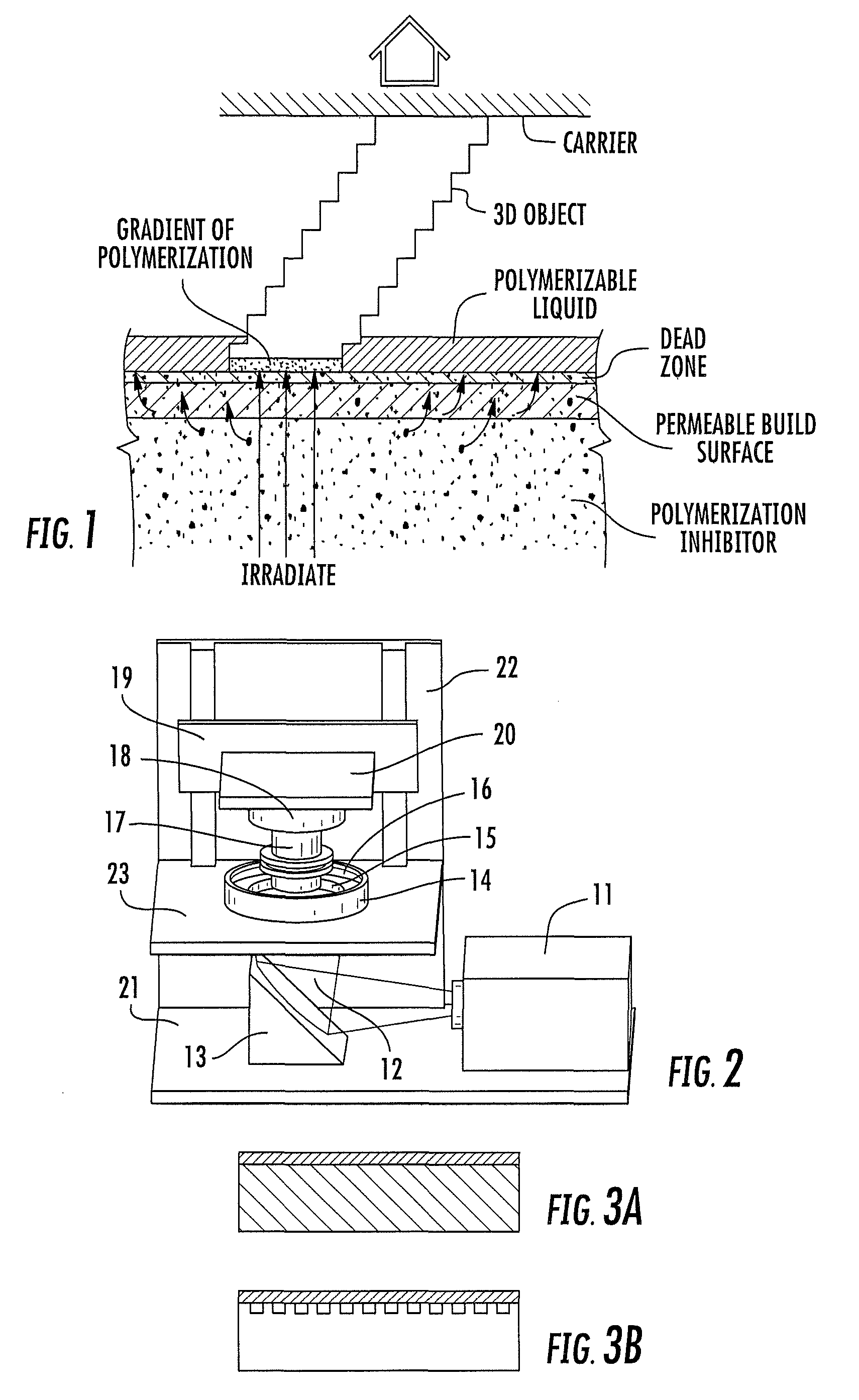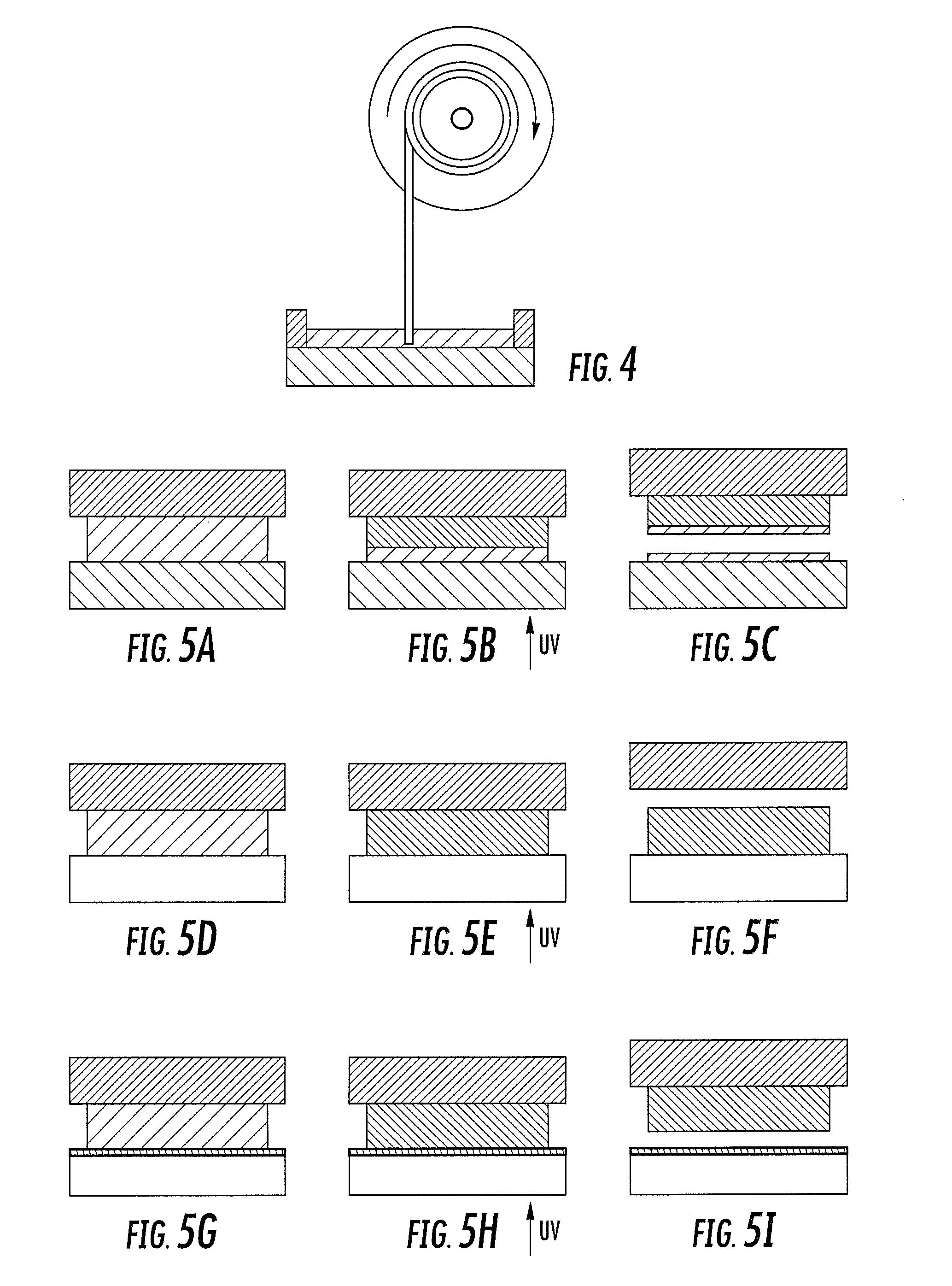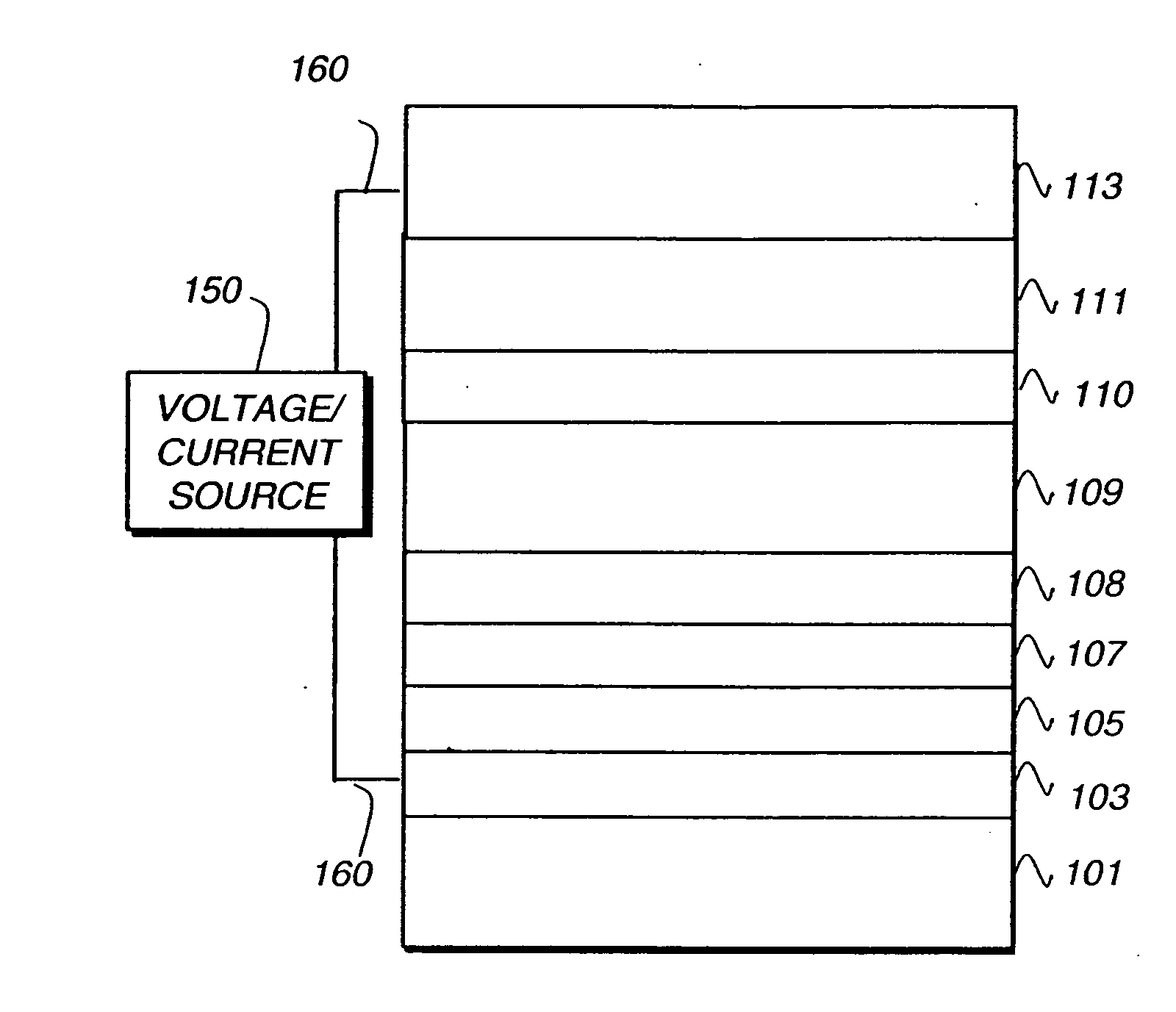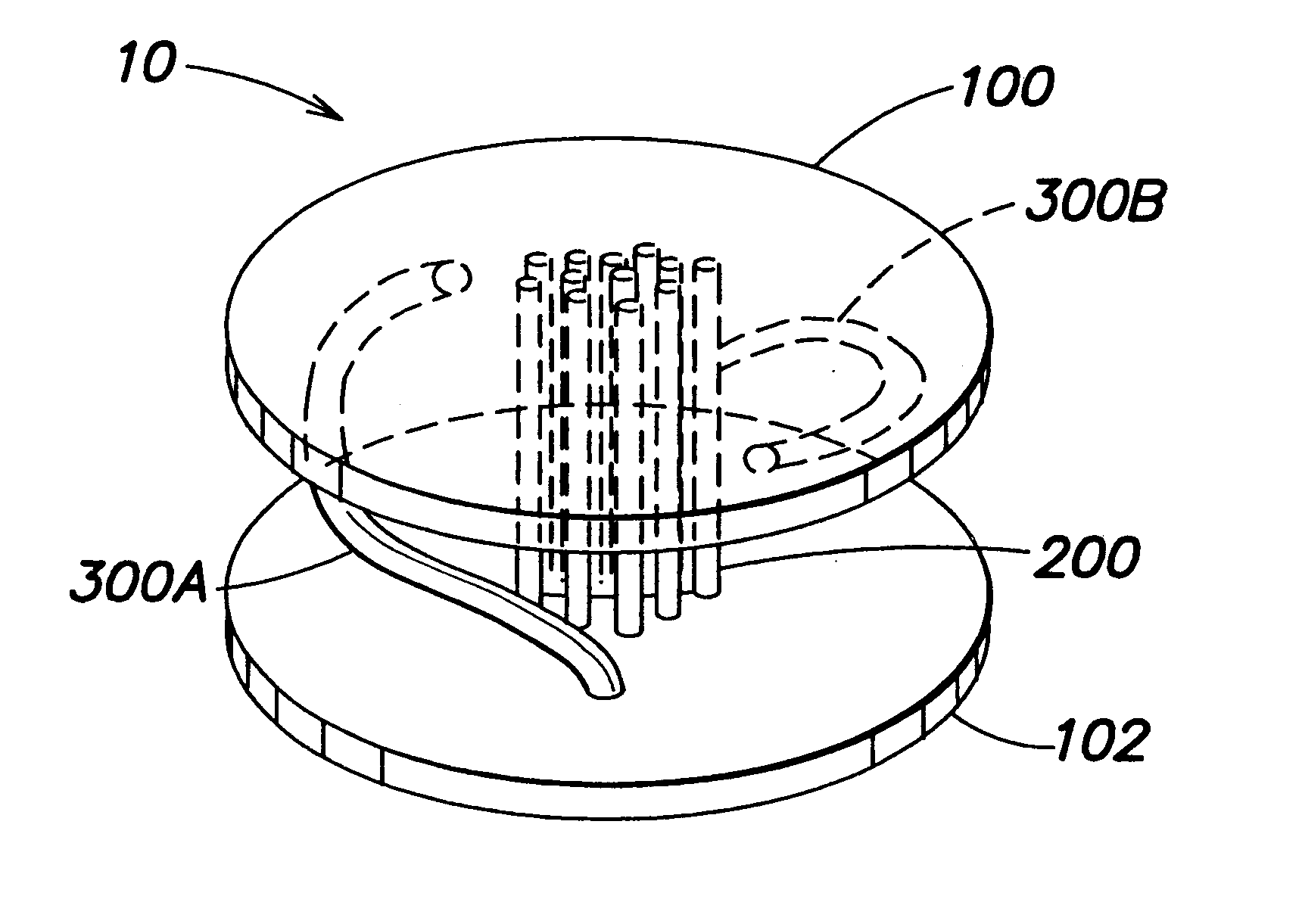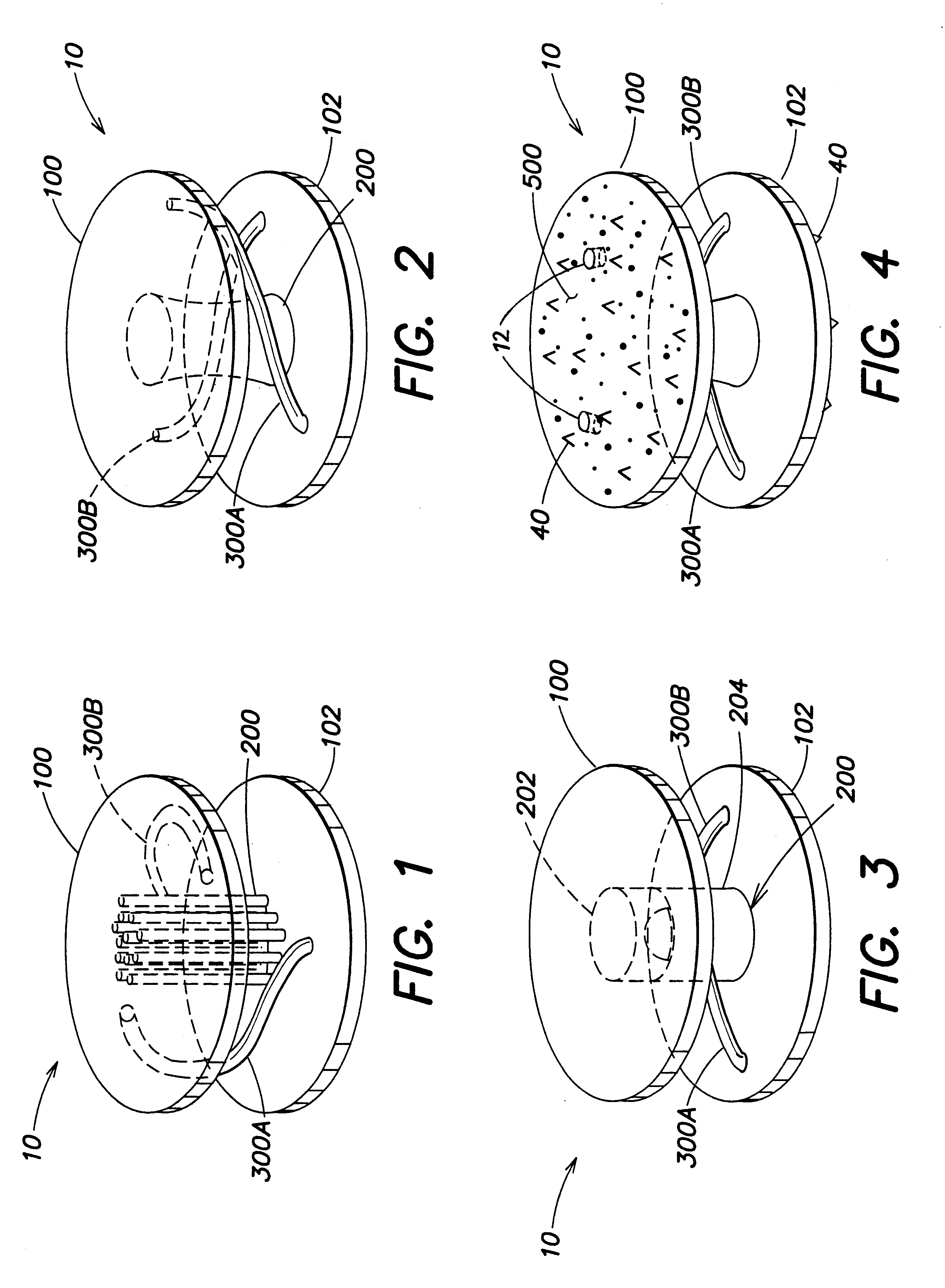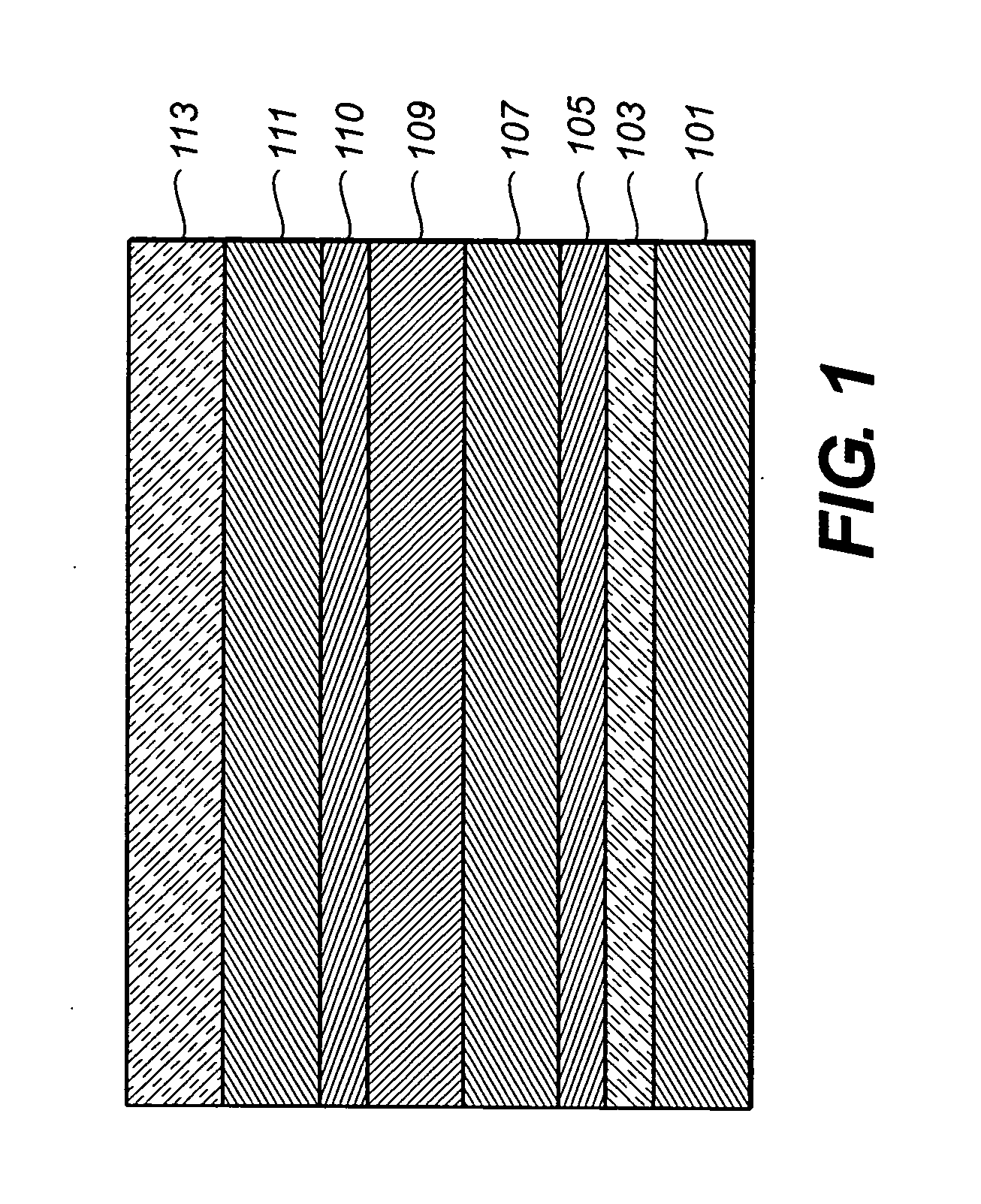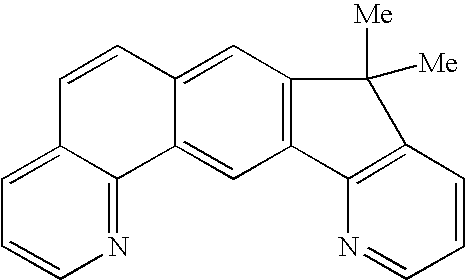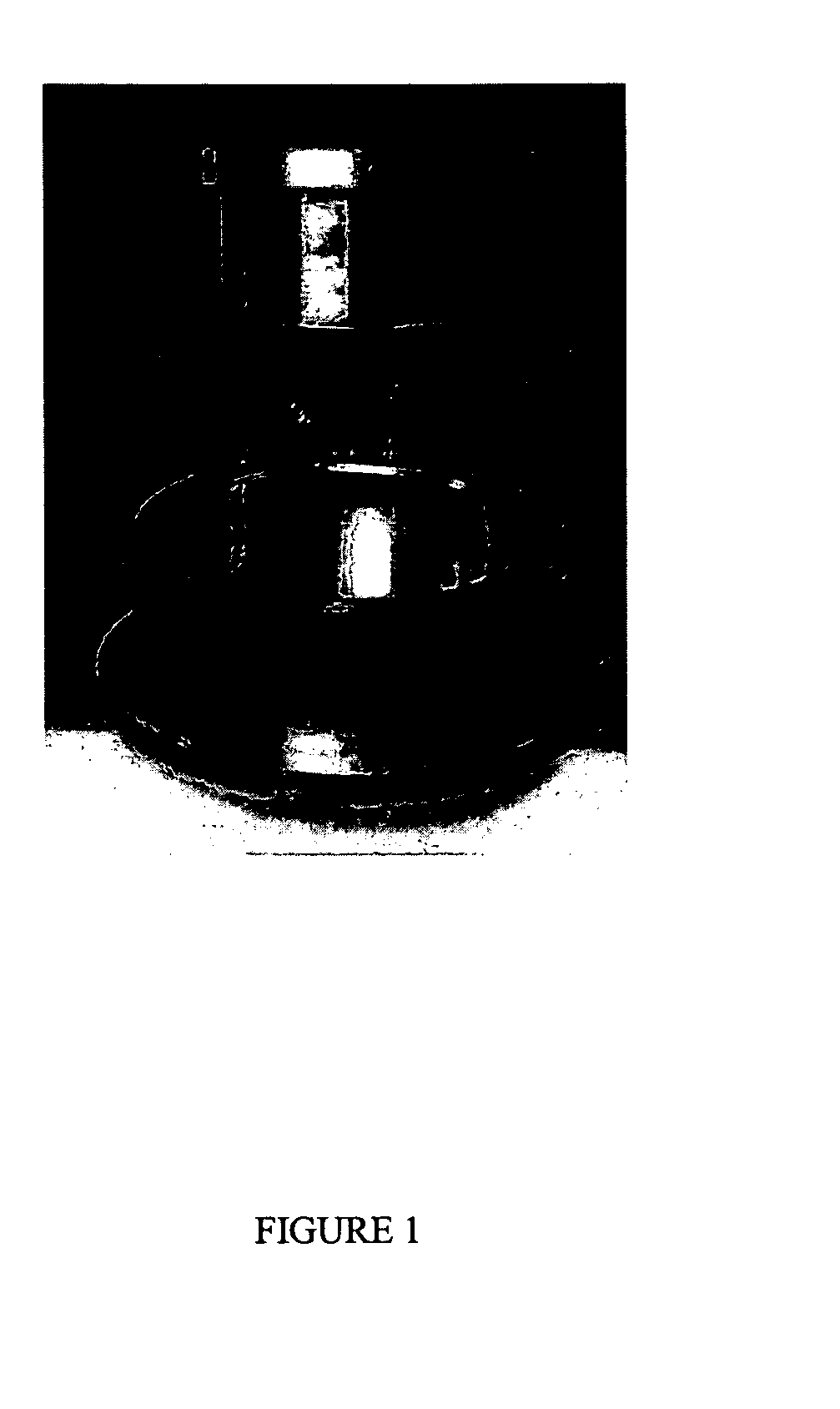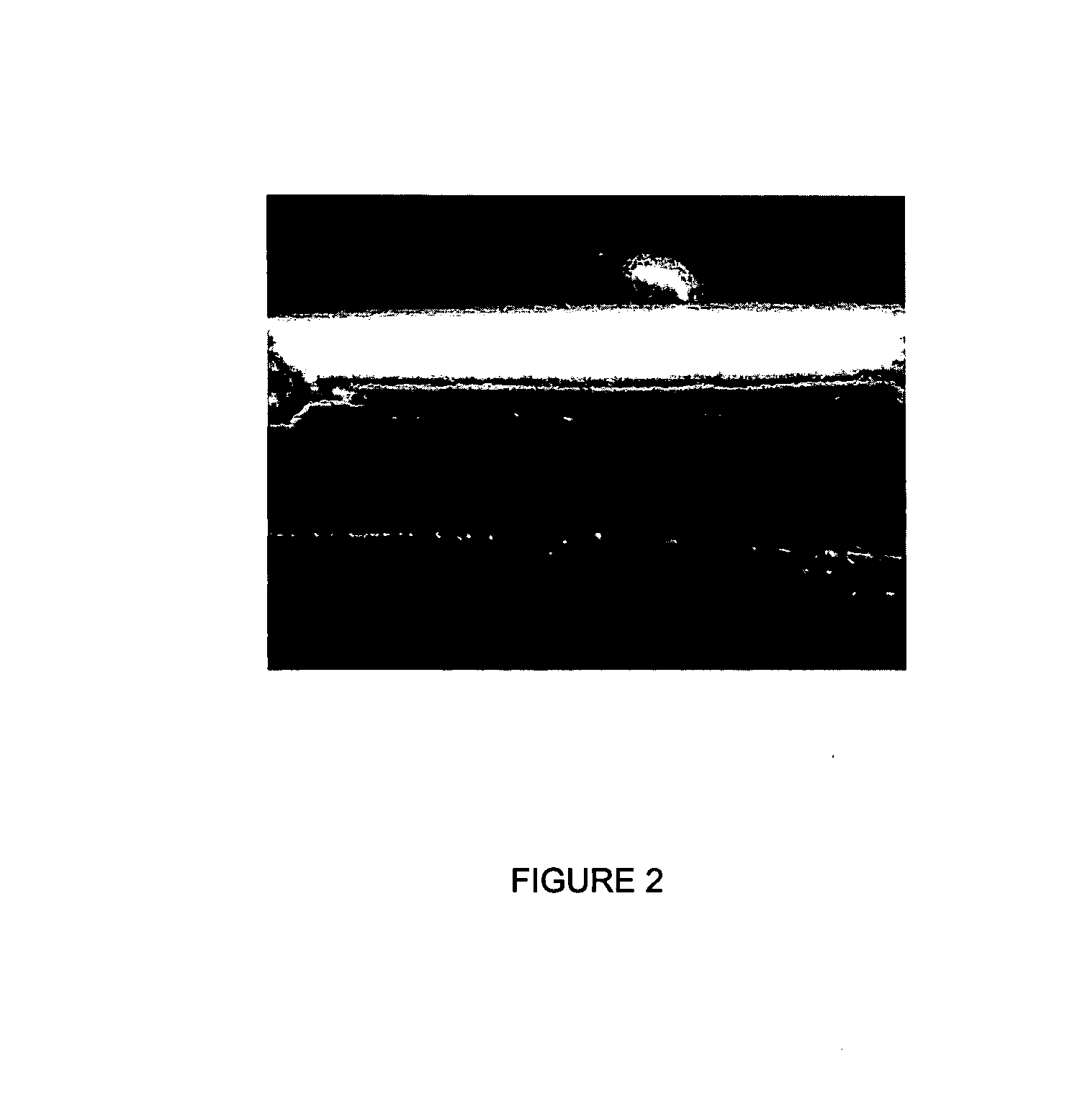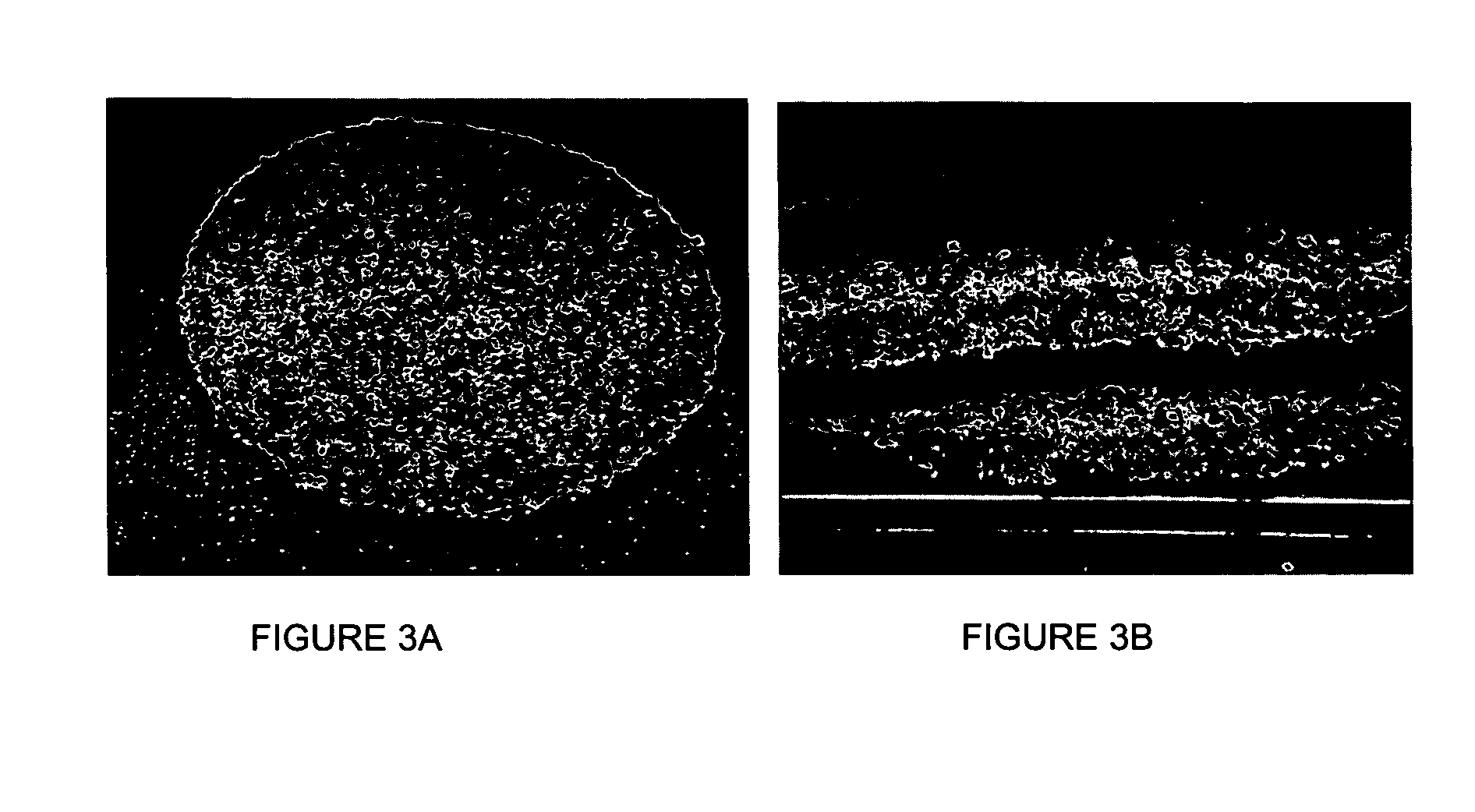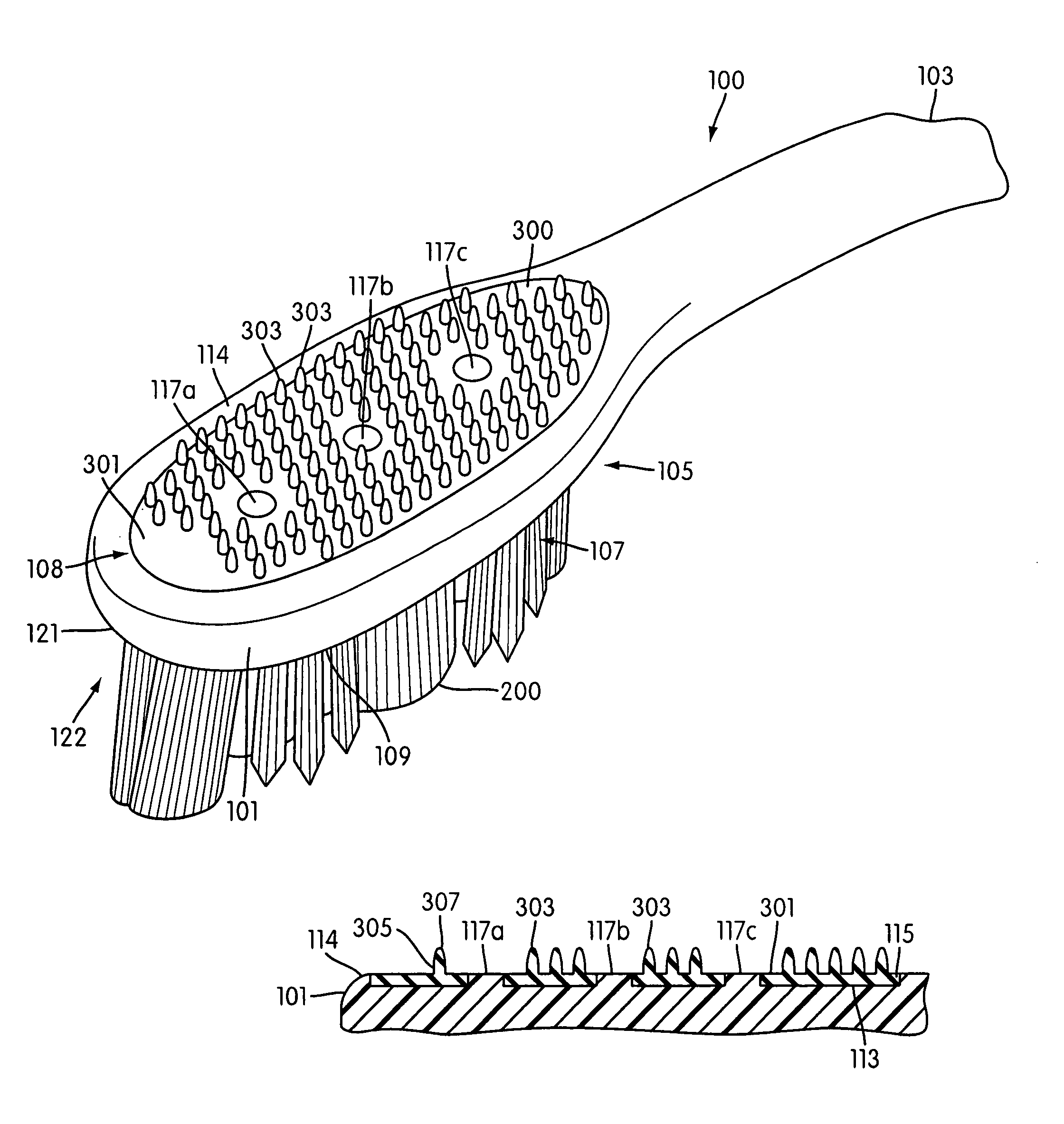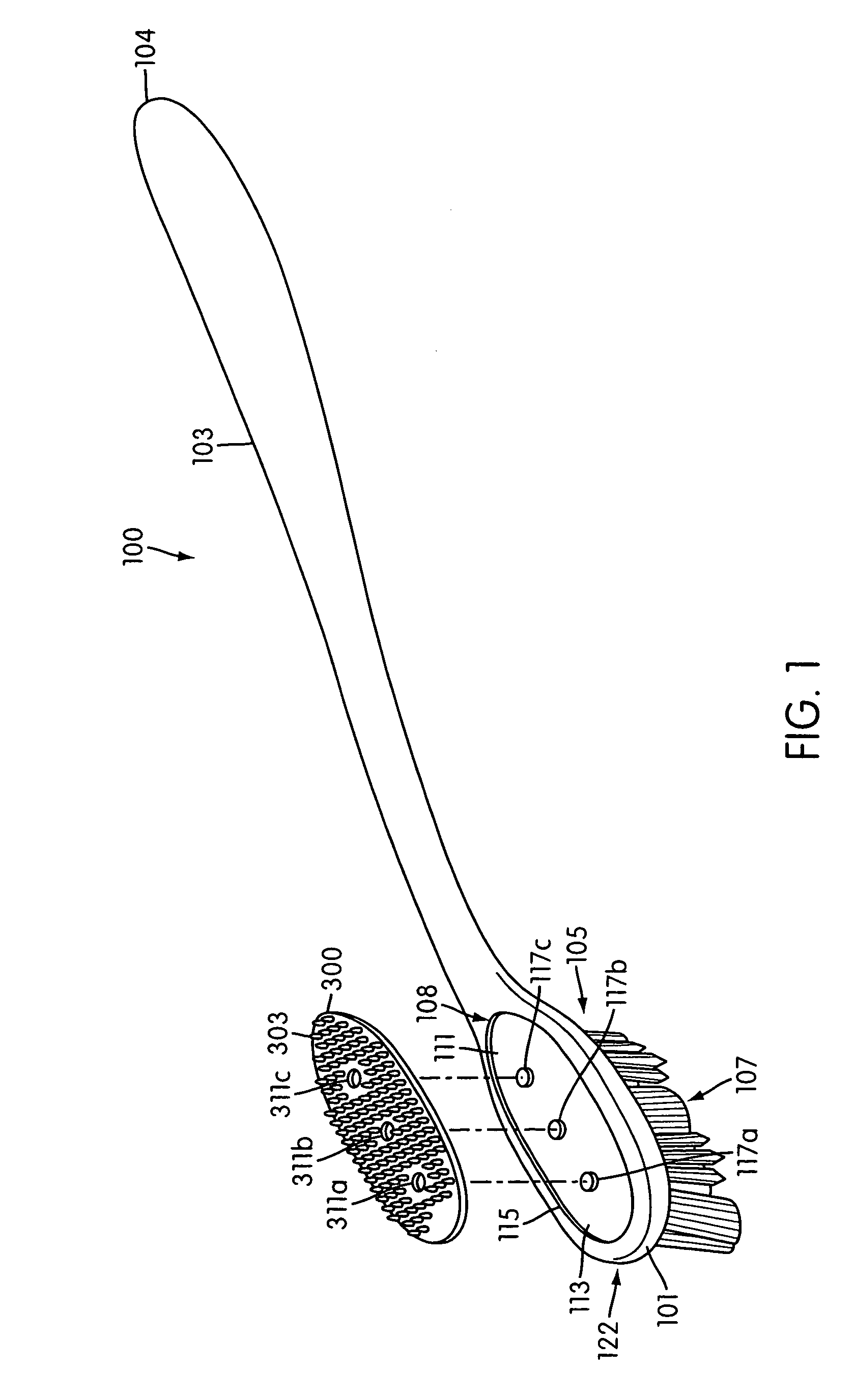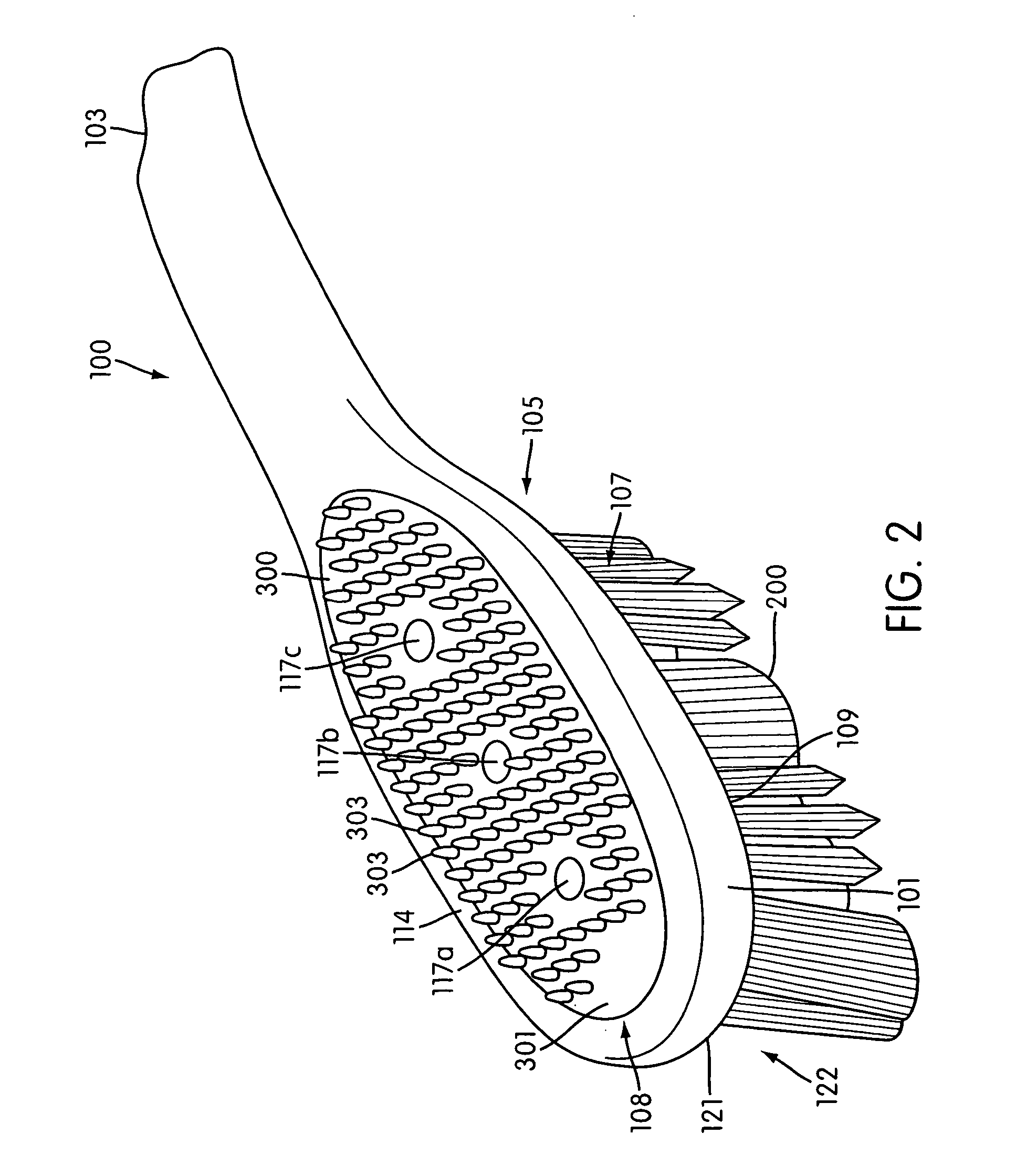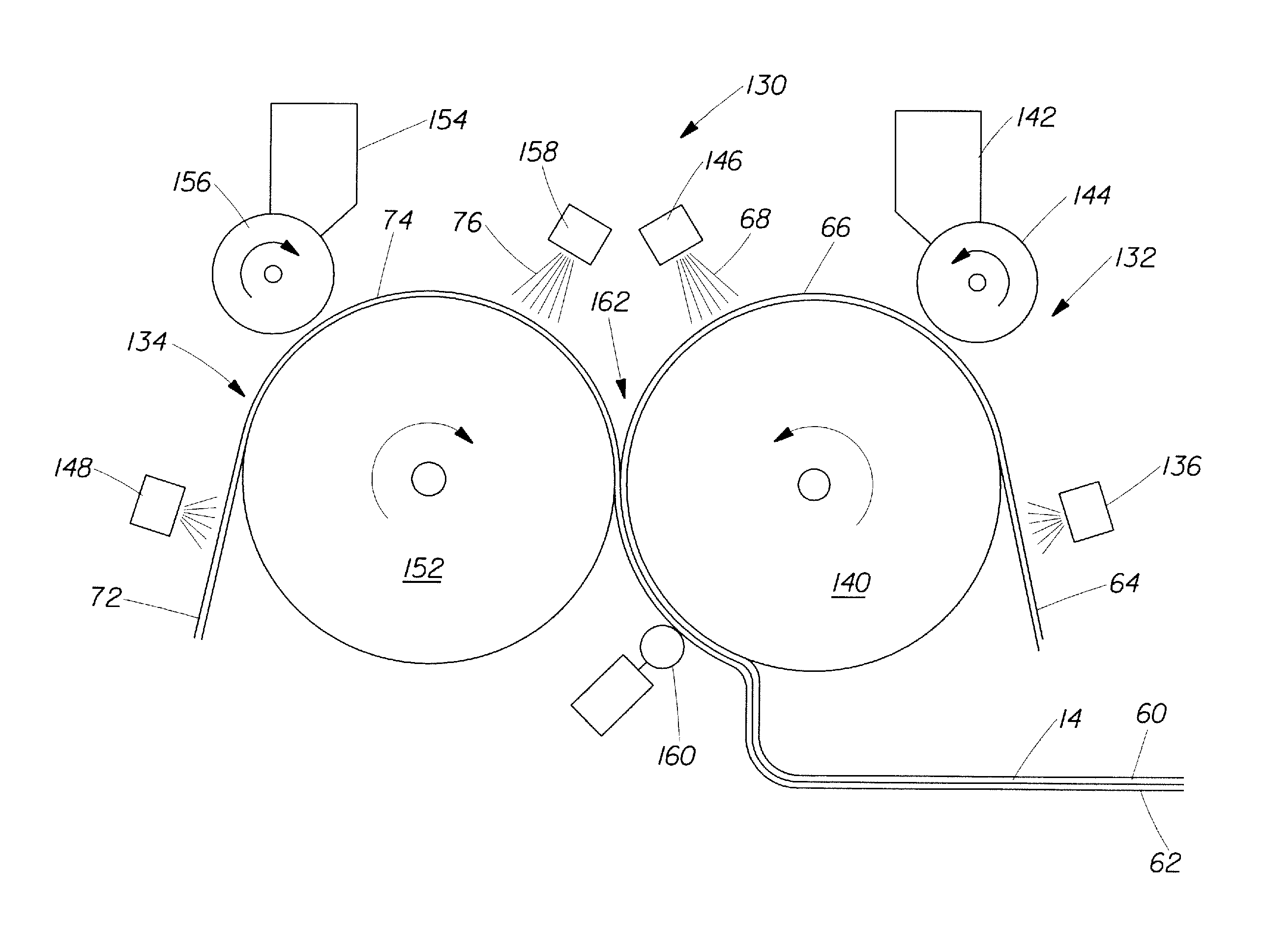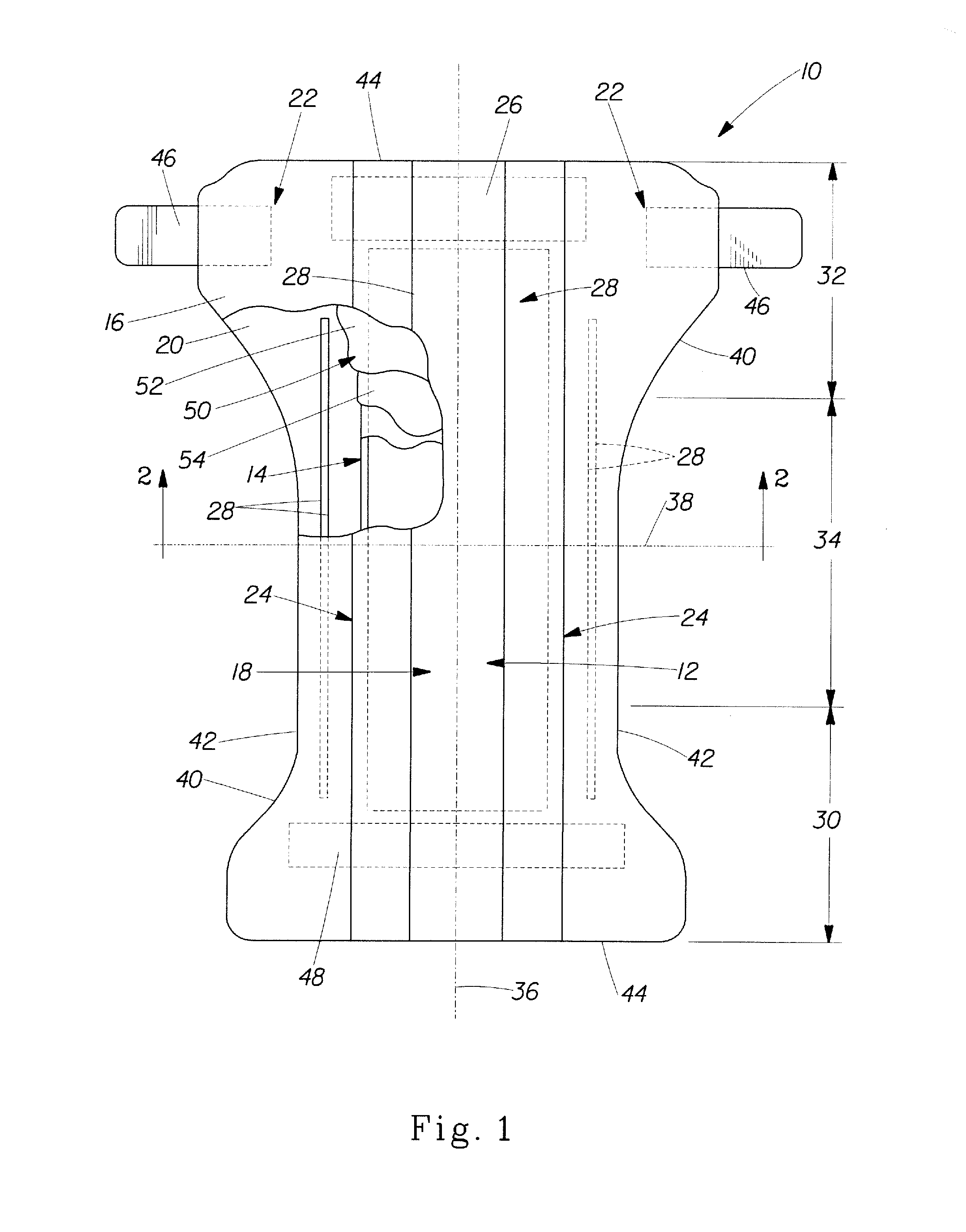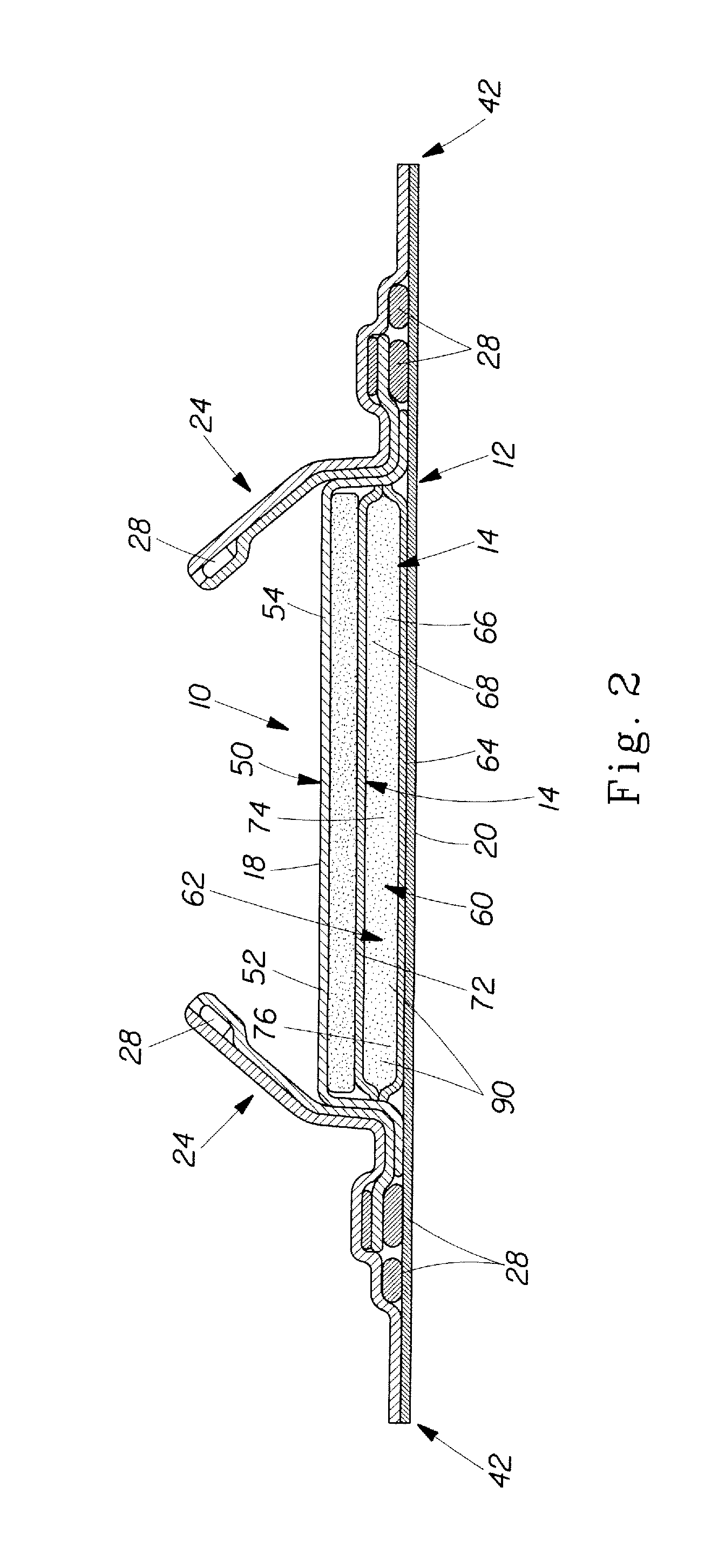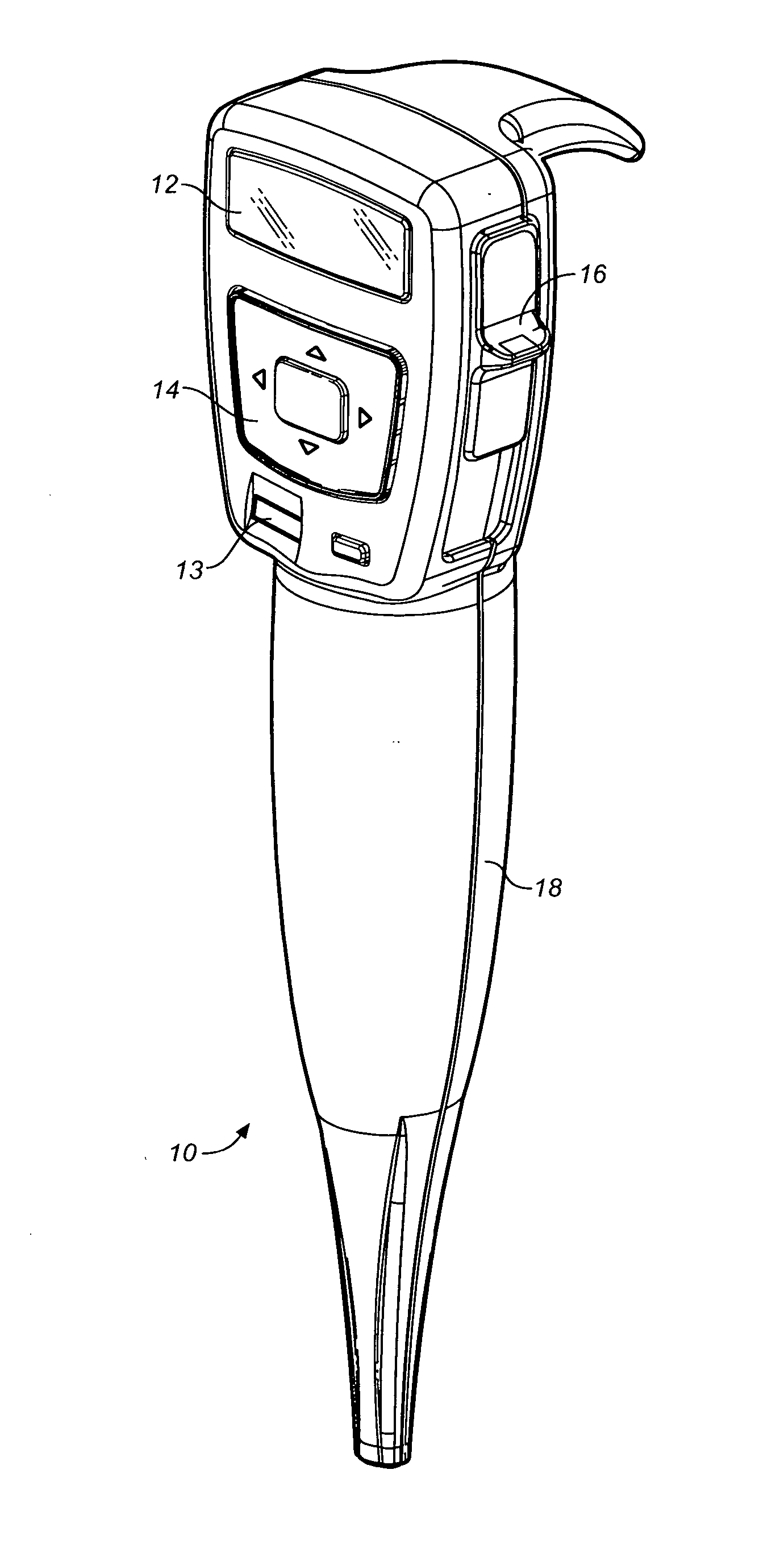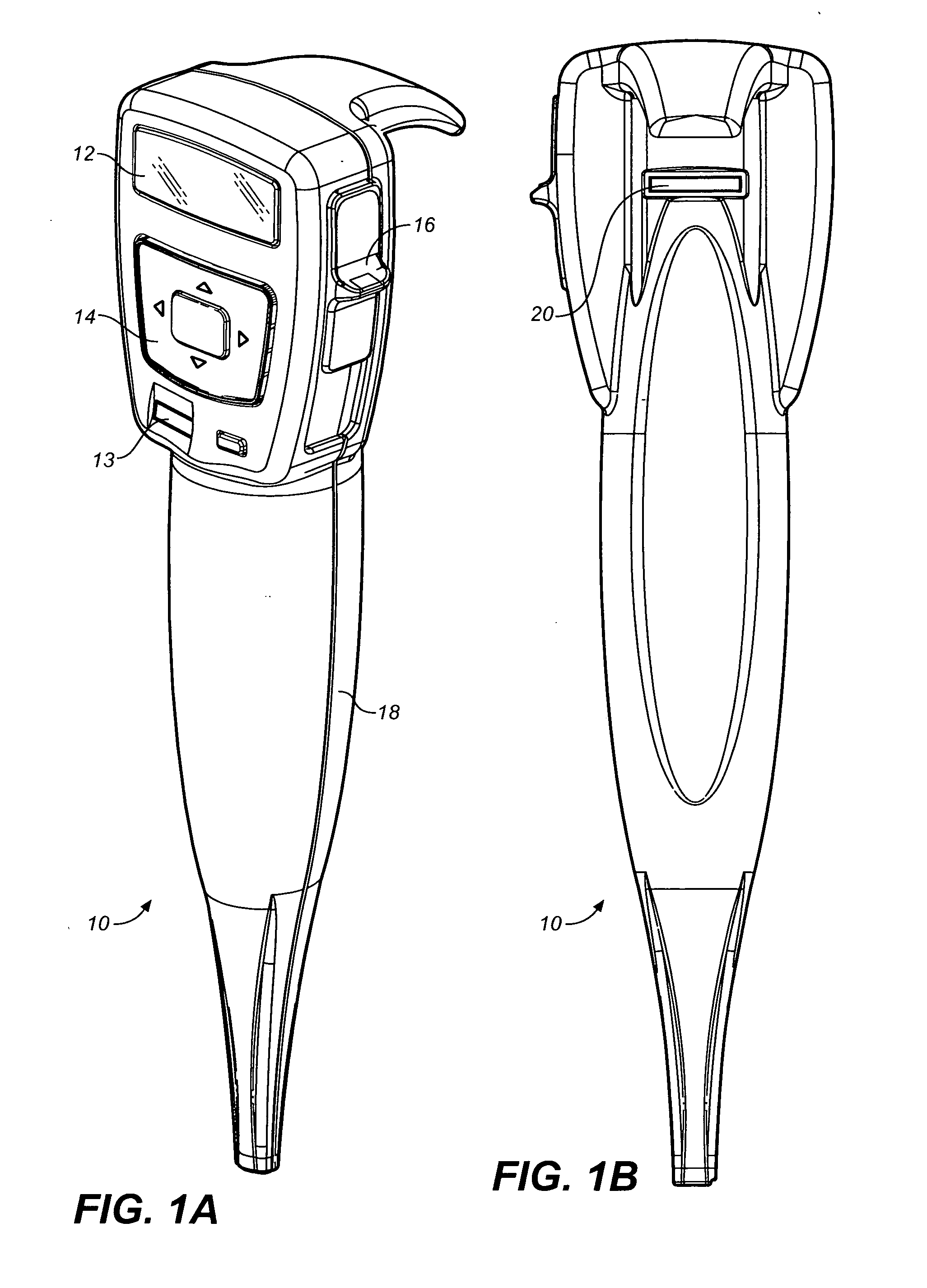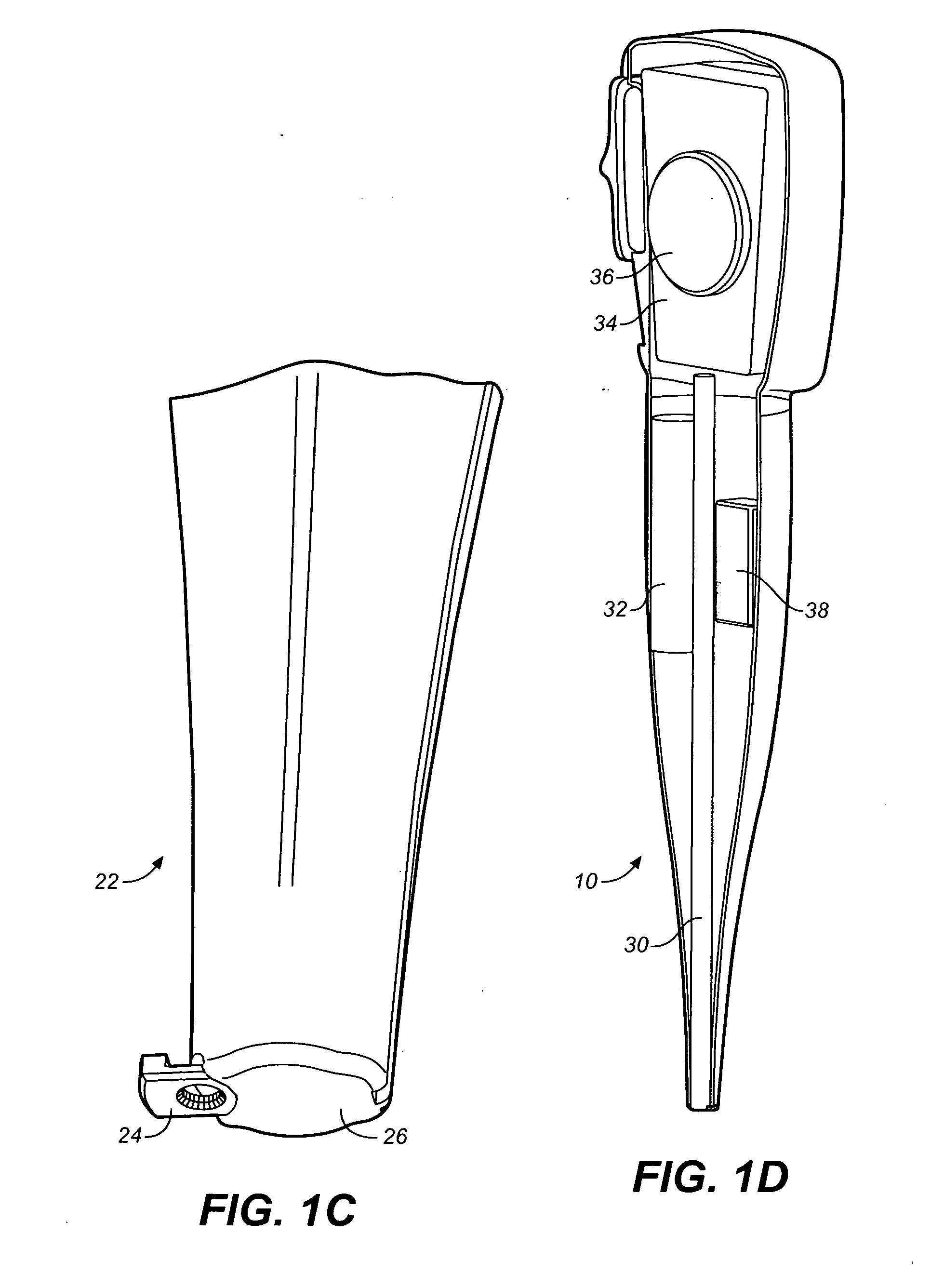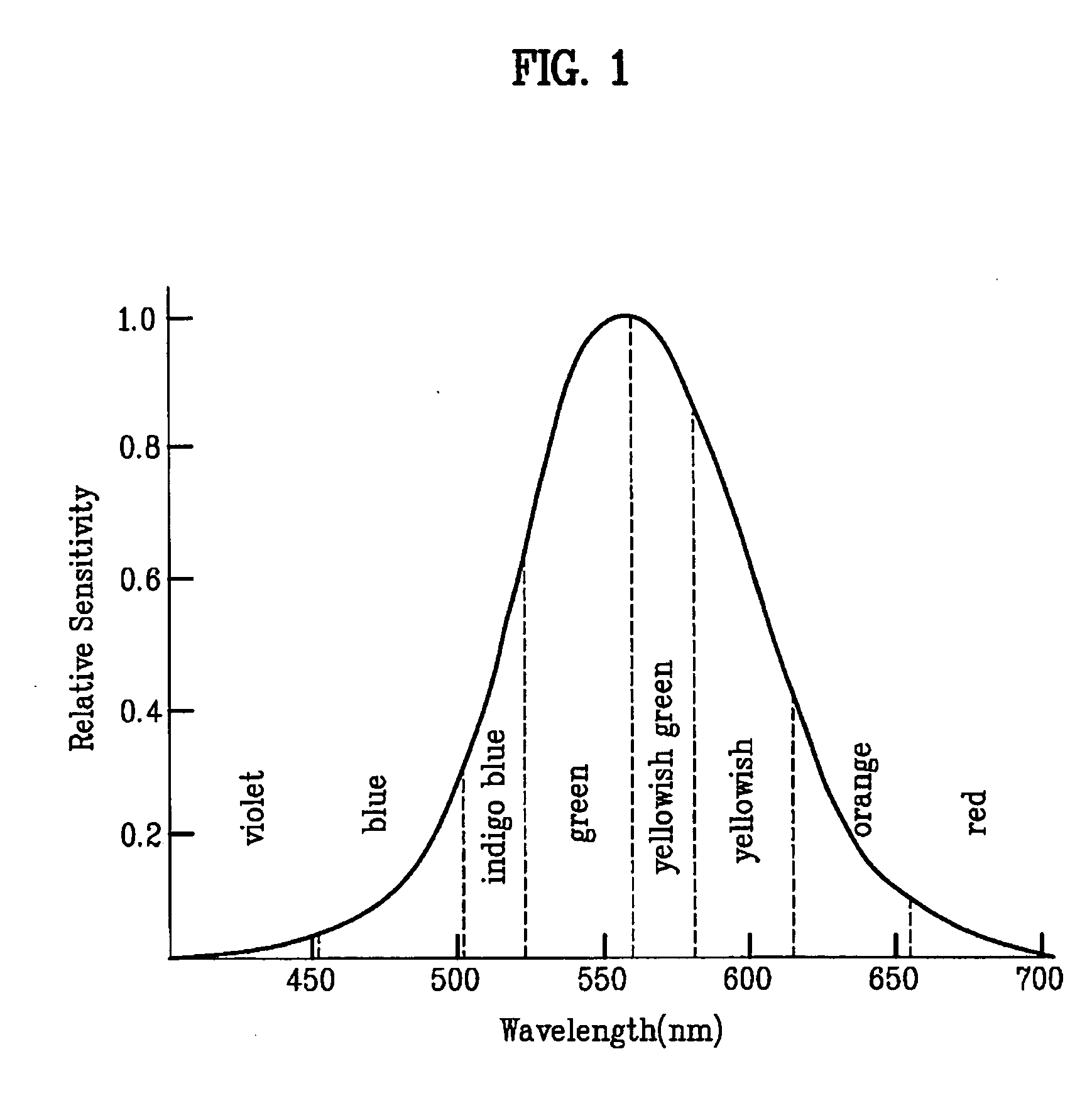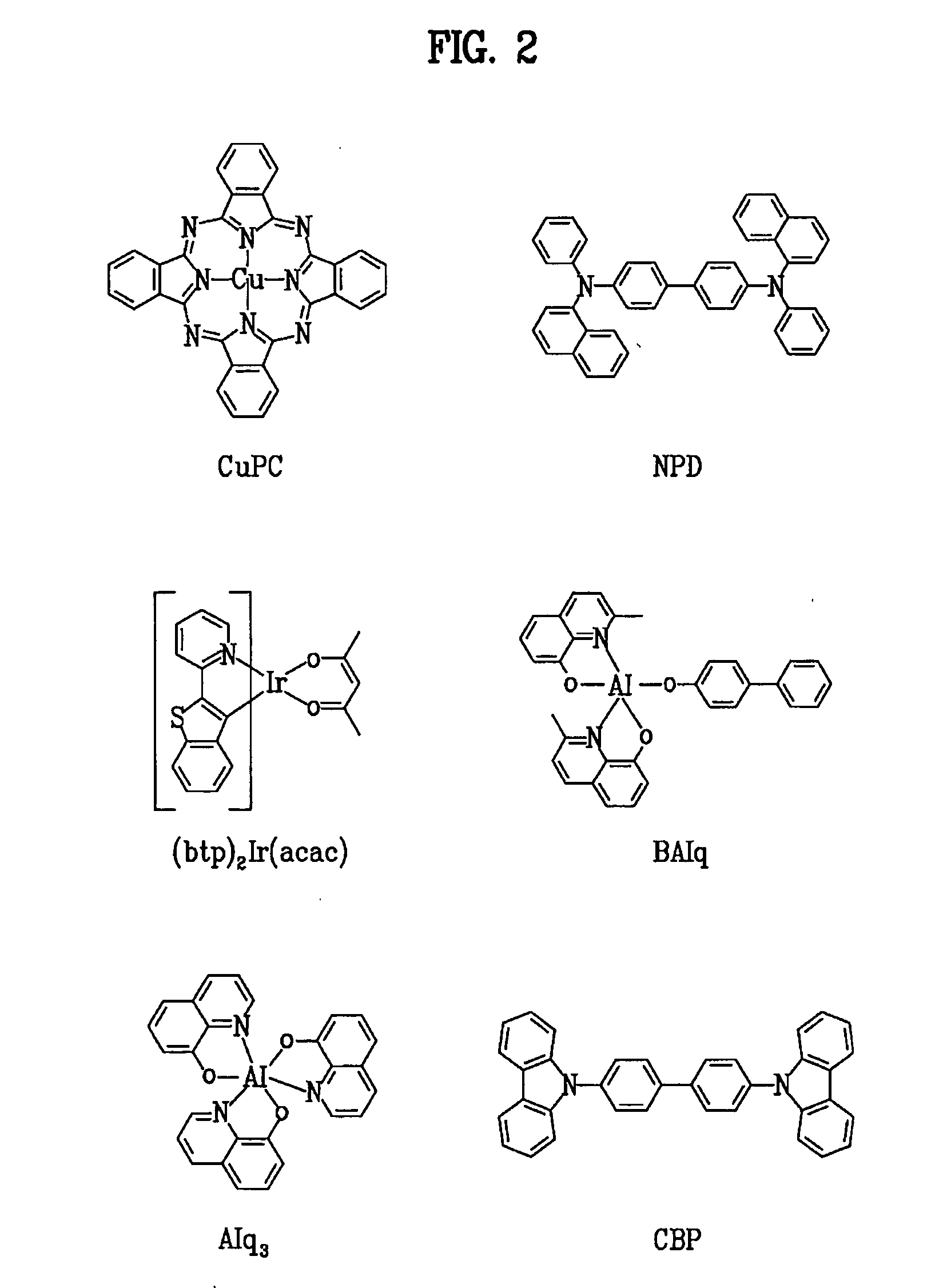Patents
Literature
Hiro is an intelligent assistant for R&D personnel, combined with Patent DNA, to facilitate innovative research.
104093results about "Domestic articles" patented technology
Efficacy Topic
Property
Owner
Technical Advancement
Application Domain
Technology Topic
Technology Field Word
Patent Country/Region
Patent Type
Patent Status
Application Year
Inventor
Organic electroluminescent element, illuminator, display and compound
InactiveUS20050069729A1Improve emission efficiencySolution to short lifeMethine/polymethine dyesSolid-state devicesOrganic electroluminescenceBoron
An organic electroluminescent element comprising a light emission layer and a hole blocking layer adjacent to the light emission layer, wherein, (i) the light emission layer contains a compound having a specified partial structure and having a molecular weight of not more than 1700; and (ii) the hole blocking layer contains a derivative selected from the group consisting of a styryl derivative, a boron derivative and a carboline derivative.
Owner:KONICA MINOLTA INC
Aromatic amine derivative and electroluminescence device using the same
ActiveUS20070278938A1Improved in yield in producingLong life-timeOrganic chemistryDischarge tube luminescnet screensOrganic electroluminescencePerylene derivatives
Provided are a novel aromatic amine derivative having a specific structure and an organic electroluminescence device in which an organic thin layer comprising a single layer or plural layers including a light emitting layer is interposed between a cathode and an anode, wherein at leas one layer of the above organic thin layer contains the aromatic amine derivative described above in the form of a single component or a mixed component. Thus, the organic electroluminescence device is less liable to be crystallized in molecules, improved in a yield in producing the organic electroluminescence device and extended in a lifetime.
Owner:IDEMITSU KOSAN CO LTD
Organometallic compounds for use in electroluminescent devices
ActiveUS7534505B2Discharge tube luminescnet screensGroup 8/9/10/18 element organic compoundsOrganic light emitting deviceOrganic layer
An organic light emitting device having an anode, a cathode and an organic layer between the anode and the cathode is provided. The organic layer comprises a carbene-metal complex having the structure:
Owner:UNIVERSAL DISPLAY +1
Aromatic amine derivative and organic electroluminescence device using the same
ActiveUS20080124572A1Improve efficiencyImprove recombination efficiencyOrganic chemistrySolid-state devicesArylCarbazole
An aromatic amine derivative with a specific structure having a carbazole skeleton to which a diarylamino group bonds via a bonding group. An organic electroluminescence device which is composed of one or more organic thin film layers including at least one light emitting layer sandwiched between a cathode and an anode, wherein at least one of the organic thin film layers contains the aromatic amine derivative singly or as its mixture component. Organic electroluminescence devices with enhanced efficiency of light emission and a compound realizing the devices are provided.
Owner:IDEMITSU KOSAN CO LTD
System and method for managing the operation of a battery powered surgical tool and the battery used to power the tool
A surgical power tool system including a cordless powered surgical tool, a battery for energizing the tool and a charger for charging the battery. The battery includes a memory. When the battery is attached to the tool, a processor integral with the tool writes data to the memory regarding the operation of the tool. When the battery is attached to the charger, the data are read out the battery memory. These data are then evaluated to determine the operational state of the tool.
Owner:STRYKER CORP
Organic electroluminescent device having an azatriphenylene derivative
ActiveUS20090115316A1Promote resultsReduce the driving voltageOrganic chemistryDischarge tube luminescnet screensElectricityEngineering
Azatriphenylene derivatives and their use in the electron-transporting layer of an electroluminescent device that comprises an anode, a spaced-apart cathode, and at least one electron-transporting layer disposed between the spaced-apart anode and cathode. Such EL devices provide lower drive voltage, improved power efficiency, and longer operational lifetime.
Owner:GLOBAL OLED TECH
Wound closure material
Articles are provided having no orientation or a multi-directional orientation. Such articles may be in the form of films, ribbons, sheets, and / or tapes and may be utilized as buttresses with a surgical stapling apparatus or as reinforcing means for suture lines.
Owner:COVIDIEN LP
Process for making unitary fibrous structure comprising randomly distributed cellulosic fibers and non-randomly distributed synthetic fibers
InactiveUS7067038B2High densityNon-fibrous pulp additionNatural cellulose pulp/paperPolymer scienceRepeat pattern
Owner:THE PROCTER & GAMBLE COMPANY
Surgical apparatus including surgical buttress
ActiveUS9433420B2Facilitated releaseImprove securityDomestic articlesSurgical staplesButtressActuator
Owner:TYCO HEALTHCARE GRP LP
Phosphorescent compound, a phosphorescent composition and an organic light-emitting device
InactiveUS7250226B2Improve efficiencyDischarge tube luminescnet screensLamp detailsOrganic light emitting deviceCharge carrier
An organic polymeric phosphorescent compound and an organic light-emitting device employing the organic polymeric phosphorescent compound. The phosphorescent compound is a neutral organic polymeric phosphorescent compound emitting phosphorescence and used in an organic light-emitting device, and includes a phosphorescent unit and a carrier transporting unit.
Owner:NIPPON HOSO KYOKAI +1
Organic electroluminescent device
ActiveUS20060263635A1Group 5/15 element organic compoundsGroup 8/9/10/18 element organic compoundsPlatinumNitrogen
An organic electroluminescent device having a pair of electrodes and at least one organic layer interposed between the pair of electrodes, in which the at least one organic layer contains at least one compound represented by formula (I): wherein, Z1 and Z2 each independently represent a nitrogen-containing aromatic six-membered ring coordinated to the platinum through a nitrogen atom; Q1 represents a group of atoms necessary for forming, together with the —C—C—, a nitrogen-containing aromatic five-membered ring; L1 represents a single bond or a divalent linking group; and n is 0 or 1.
Owner:UDC IRELAND +1
Droplet-based assay system
ActiveUS20100173394A1Easy CalibrationImprove accuracy and reliabilityBioreactor/fermenter combinationsBiological substance pretreatmentsAssayBiology
Owner:LAWRENCE LIVERMORE NAT SECURITY LLC
Light emitting material and organic light-emitting device
InactiveUS7396598B2High efficiency of light emissionKeep energy smallDischarge tube luminescnet screensGroup 8/9/10/18 element organic compoundsFluorescenceTriplet state
Owner:SAMSUNG ELECTRONICS CO LTD
Actuation sled having a curved guide member and method
An apparatus for injection molding includes at least one mold part having at least one surface. The mold part includes at least one mold part having at least one substantially central, sloping, non-linear surface, the at least one mold part including at least one shaped portion. The mold part further includes at least one substantially closed cavity region disposed within the at least one substantially central, sloping, non-linear surface. The mold part further includes at least one gate disposed on a base portion of the mold part for providing fluid communication to the at least one cavity region, the base portion having a plurality of recesses / depressions extending longitudinally along the length of the mold part. Additionally, at least one flow restrictor may be positioned on the mold part for initially directing flow of injected fluid to the at least one shaped portion.
Owner:COVIDIEN LP
Cationic metal-carbene complexes
ActiveUS7445855B2Solid-state devicesSemiconductor/solid-state device manufacturingOrganic light emitting deviceCarbene
Owner:UNIVERSAL DISPLAY +1
Optoelectronic element with a non-protruding lens
InactiveUS7067893B2Improve component performanceReduce reflectionSolid-state devicesDiagnostic recording/measuringCamera lensReduced size
An optoelectronic component has a lens that is formed in the surface of an encapsulant surrounding a semiconductor diode element. With respect to emitters, the lens reduces internal reflection and reduces dispersion to increase overall efficiency. With respect to detectors, the lens focuses photons on the active area of the detector, increasing detector sensitivity, which allows a detector having a reduced size and reduced cost for a given application. The lens portion of the encapsulant is generally nonprotruding from the surrounding portions of the encapsulant reducing contact surface pressure caused by the optoelectronic component. This non-protruding lens is particularly useful in pulse oximetry sensor applications. The lens is advantageously formed with a contoured-tip ejector pin incorporated into the encapsulant transfer mold, and the lens shape facilitates mold release.
Owner:JPMORGAN CHASE BANK NA
Luminescence device and display apparatus
InactiveUS20030068526A1High efficiency luminescenceExtend device lifeIndium organic compoundsDischarge tube luminescnet screensHigh luminanceLight emitting device
A luminescence device having a layer containing a metal coordination compound which has a partial structure MLm of formula (2) below and is preferably entirely represented by formula (3) below:MLmL'n (3),wherein M denotes a metal atom of Ir, Pt, Rh or Pd; represent mutually different bidentate ligands; m is 1 or 2 or 3; n is 0 or 1 or 2 with the proviso that m+n=2 or 3; the partial structure MLm is represented by formula (2) below (wherein B is an isoquinolyl group bonded to the metal M with its N and including a position-1 carbon atom bonded to a cyclic group A which includes the C bonded to the metal M), and the partial structure ML'n is represented by formula (4), (5) or (6) shown below. There is provided a luminescence device capable of high-efficiency luminescence and long-term high luminance and adapted to red luminescence.
Owner:CANON KK
Vehicle imaging system
InactiveUS7005974B2Low costElectric signal transmission systemsTelemetry/telecontrol selection arrangementsDisplay deviceField of view
A vehicle imaging system includes an imaging sensor having a field of view exterior of a vehicle, an image processor and a display. The imaging sensor generates a signal indicative of an image representative of a scene occurring within the field of view. The image processor receives the signal from the imaging sensor and processes the signal to detect at least one relevant object within the image. The display is operable to display at least one iconistic representation of the at least one detected relevant object in response to an output signal generated by the image processor. The display is positionable within the vehicle and is viewable by a driver or passenger or occupant of the vehicle. The imaging sensor may be mounted to a mounting bracket mounted at a license plate area of the vehicle.
Owner:MAGNA ELECTRONICS
Method of making an embolic filter
Embolic protection filters and methods of making and using such devices are disclosed. An illustrative method of making a device for filtering embolic debris from a body may include the steps of molding a filter assembly that includes a distal tip and a filter portion, forming a plurality of apertures within the filter portion, and coupling a support member to the filter assembly that is adapted to shift the filter portion between a collapsed configuration and an expanded configuration.
Owner:BOSTON SCI SCIMED INC
Jaw members and methods of manufacture
InactiveUS20160256159A1Domestic articlesSurgical staplesBiomedical engineeringThermoplastic materials
An anvil assembly for use with a surgical stapling instrument includes an anvil plate and an anvil cover each being fabricated from a thermoplastic material. The anvil plate includes a first surface and a second surface opposite the first surface. The first surface has a plurality of beads disposed along a periphery thereof. The anvil cover is configured to be coupled to a distal end of the surgical stapling instrument. The anvil cover includes a surface having at least one elongate surface feature disposed along a periphery thereof. The beads of the anvil plate and the elongate surface feature of the anvil cover are configured for abutting engagement upon assembly thereof.
Owner:TYCO HEALTHCARE GRP LP
Continuous liquid interphase printing
A method of forming a three-dimensional object, comprises providing a carrier and an optically transparent member having a build surface, the carrier and the build surface defining a build region therebetween; filling the build region with a polymerizable liquid; irradiating the build region through the optically transparent member to form a solid polymer from the polymerizable liquid while concurrently advancing the carrier away from the build surface to form the three-dimensional object from the solid polymer, while also concurrently: (i) continuously maintaining a dead zone of polymerizable liquid in contact with the build surface, and (ii) continuously maintaining a gradient of polymerization zone between the dead zone and the solid polymer and in contact with each thereof, the gradient of polymerization zone comprising the polymerizable liquid in partially cured form. Apparatus for carrying out the method is also described.
Owner:CARBON INC
Oled devices with dinuclear copper compounds
ActiveUS20070111026A1Discharge tube luminescnet screensElectroluminescent light sourcesCompound (substance)Copper
An OLED device comprises an anode, a cathode and therebetween a light emitting layer containing a compound represented by Formula I below: wherein: each A is independently selected from N and P; each E is independently selected from N, P, and As; each Z is a radical independently selected from each R is an independently selected substituent; and each R′ is independently selected from H and a substituent; provided that two substituent groups can join to form a ring.
Owner:UNIVERSITY OF ROCHESTER +1
Orthopedic implant
Disclosed is an orthopedic implant suitable for arthroplasty procedures. The orthopedic implant includes a first plate, a second plate, an axial support between the first plate and the second plate and one or more torsional supports connecting the first plate and the second plate. The axial support may be, for example, one or more flexible struts, such as cables, or a ball and socket joint. The torsional supports connect the first and second plates and may be, for example, curved around the axial support. The torsional supports may be integrally formed with the first and second plates as a single unitary device, by, for example, a Laser Engineered Net Shape (LENS) process.
Owner:DEPUY ACROMED INC
Organic element for electroluminescent devices
ActiveUS20050123788A1Improve luminous efficiencySolid-state devicesSemiconductor/solid-state device manufacturingNitrogenDisplay device
Disclosed is an electroluminescent device comprising a light-emitting layer containing a light emitting material that contains an organometallic complex comprising a metal selected from the group consisting of Pt, Pd and Ir, and a tridentate (N{circumflex over ( )}C{circumflex over ( )}N) ligand, wherein the tridentate (N{circumflex over ( )}C{circumflex over ( )}N) ligand represents a ligand that coordinates to the metal through a nitrogen donor bond, a carbon-metal bond, and a nitrogen donor bond, in that order, wherein at least one of the nitrogen donors is part of an aromatic ring or an imine group. The invention also includes a display or room lighting device employing the device of the invention and a process of emitting light from the device of the invention. The device of the invention provides good luminance efficiency.
Owner:GLOBAL OLED TECH
Methods for making and using composites, polymer scaffolds, and composite scaffolds
InactiveUS20070187857A1Promote safe productionTime-consumeDomestic articlesProsthesisOrganic solventTissue repair
The present invention relates to methods of making and using composites and scaffolds as implantable devices useful for tissue repair, guided tissue regeneration, and tissue engineering. In particular, the present invention relates to methods of making and using compression molded resorbable thermoplastic polymer composites which can be subsequently processed with non-organic solvents to create porous, resorbable thermoplastic polymer scaffolds or composite scaffold with interconnected porosity. Furthermore, these composites or scaffolds can be coated with an organic and / or inorganic material.
Owner:LOREM VASCULAR PTE LTD
Oral care implement
An oral care implement with a handle includes a head with a tissue cleanser. The tissue cleanser may be a pad composed of an elastomeric material. The pad is disposed on the head on a surface opposite the tooth cleaning elements. The tissue cleanser may include a plurality of nubs extending for cleaning between the papillae of the tongue. The tissue cleanser may include a plurality of conically shaped nubs. A tissue cleanser can be used to reduce oral malodor problems and remove oral epithelial cells.
Owner:COLGATE PALMOLIVE CO
Method And Apparatus For Making Disposable Absorbent Article With Absorbent Particulate Polymer Material And Article Made Therewith
A method for making a disposable absorbent core comprises depositing absorbent particulate polymer material from a plurality of reservoirs in a printing roll onto a substrate disposed on a grid of a support which includes a plurality of cross bars extending substantially parallel to and spaced from one another so as to form channels extending between the plurality of cross bars. The plurality of reservoirs in the first peripheral surface are arranged in an array comprising rows extending substantially parallel to and spaced from one another. The support and printing roll are arranged such that the plurality of cross bars are substantially parallel to the rows of the plurality of reservoirs and the absorbent particulate polymer material is deposited on the substrate in a pattern such that the absorbent particulate polymer material collects in rows on the first substrate formed between the first plurality of cross bars. A thermoplastic adhesive material is deposited on the absorbent particulate polymer material and the substrate to cover the absorbent particulate polymer material on the substrate and form an absorbent layer. A disposable absorbent article and apparatus for making an absorbent article are also disclosed.
Owner:THE PROCTER & GAMBLE COMPANY
Aromatic amine derivative and organic electroluminescence device using the same
ActiveUS20090066235A1Long lastingIncrease productionOrganic chemistryDischarge tube luminescnet screensOrganic electroluminescenceLight-emitting diode
Provided are an organic electroluminescent device including an aromatic amine derivative formed of a specific structure having a thiophene structure and an organic thin film layer interposed between a cathode and an anode and formed of one layer or a plurality of layers including at least a light emitting layer, in which at least one layer of the organic thin film contains the aromatic amine derivative alone or as a component of a mixture, the organic electroluminescent device in which molecules hardly crystallize, and which decreases a driving voltage, can be produced with improved yields upon the production of the organic electroluminescent device, and has a long lifetime, and an aromatic amine derivative realizing the organic electroluminescent device.
Owner:IDEMITSU KOSAN CO LTD
Drug storage and dispensing devices and systems comprising the same
ActiveUS20070186923A1Minimizing saliva influxPowdered material dispensingDrug and medicationsDrug StorageBiomedical engineering
Drug storage and dispensing devices for dispensing a drug dosage form to a patient are disclosed. The dispensing device has a programmable lock-out feature for locking the dispensing device and is capable of detecting the identity of a user. The invention further provides a method for the treatment of subject, by administering to the subject a drug dosage form using a dispensing device of the invention.
Owner:ACEIRX PHARM INC
Red phosphorescent compounds and organic electroluminescent devices using the same
ActiveUS20070104980A1High color purityLong life-timeIndium organic compoundsDischarge tube luminescnet screensDopantHydrogen
Disclosed herein are red phosphorescent compounds of the following Formulas 1 to 4: wherein is R1, R2 and R3 are independently a C1-C4 alkyl group, R4, R5, R6 and R7 are independently selected from hydrogen, C1-C4 alkyl groups and C1-C4 alkoxy groups, and is selected from 2,4-pentanedione, 2,2,6,6,-tetramethylheptane-3,5-dione, 1,3-propanedione, 1,3-butanedione, 3,5-heptanedione, 1,1,1-trifluoro-2,4-pentanedione, 1,1,1,5,5,5-hexafluoro-2,4-pentanedione, and 2,2-dimethyl-3,5-hexanedione; wherein is R1 and R2 are independently selected from C1-C4 alkyl groups and C1-C4 alkoxy groups, R3, R4, R5 and R6 are independently selected from hydrogen, C1-C4 alkyl groups and C1-C4 alkoxy groups, and is selected from 2,4-pentanedione, 2,2,6,6,-tetramethylheptane-3,5-dione, 1,3-propanedione, 1,3-butanedione, 3,5-heptanedione, 1,1,1-trifluoro-2,4-pentanedione, 1,1,1,5,5,5-hexafluoro-2,4-pentanedione and 2,2-dimethyl-3,5-hexanedione; wherein is R1 and R2 are independently selected from C1-C4 alkyl groups and C1-C4 alkoxy groups, R3, R4, R5 and R6 are independently selected from hydrogen, C1-C4 alkyl groups and C1-C4 alkoxy groups, and is selected from 2,4-pentanedione, 2,2,6,6,-tetramethylheptane-3,5-dione, 1,3-propanedione, 1,3-butanedione, 3,5-heptanedione, 1,1,1-trifluoro-2,4-pentanedione, 1,1,1,5,5,5-hexafluoro-2,4-pentanedione and 2,2-dimethyl-3,5-hexanedione; and wherein is R1 and R2 are independently selected from C1-C4 alkyl groups and C1-C4 alkoxy groups, R3, R4, R5 and R6 are independently selected from hydrogen, C1-C4 alkyl groups and C1-C4 alkoxy groups, and is selected from 2,4-pentanedione, 2,2,6,6,-tetramethylheptane-3,5-dione, 1,3-propanedione, 1,3-butanedione, 3,5-heptanedione, 1,1,1-trifluoro-2,4-pentanedione, 1,1,1,5,5,5-hexafluoro-2,4-pentanedione and 2,2-dimethyl-3,5-hexanedione. Further disclosed herein is an organic electroluminescent (EL) device comprising an anode, a hole injecting layer, a hole transport layer, a light-emitting layer, an electron transport layer, an electron injecting layer, and a cathode laminated in this order wherein one of the red phosphorescent compounds is used as a dopant of the light-emitting layer.
Owner:LG DISPLAY CO LTD
Features
- R&D
- Intellectual Property
- Life Sciences
- Materials
- Tech Scout
Why Patsnap Eureka
- Unparalleled Data Quality
- Higher Quality Content
- 60% Fewer Hallucinations
Social media
Patsnap Eureka Blog
Learn More Browse by: Latest US Patents, China's latest patents, Technical Efficacy Thesaurus, Application Domain, Technology Topic, Popular Technical Reports.
© 2025 PatSnap. All rights reserved.Legal|Privacy policy|Modern Slavery Act Transparency Statement|Sitemap|About US| Contact US: help@patsnap.com
